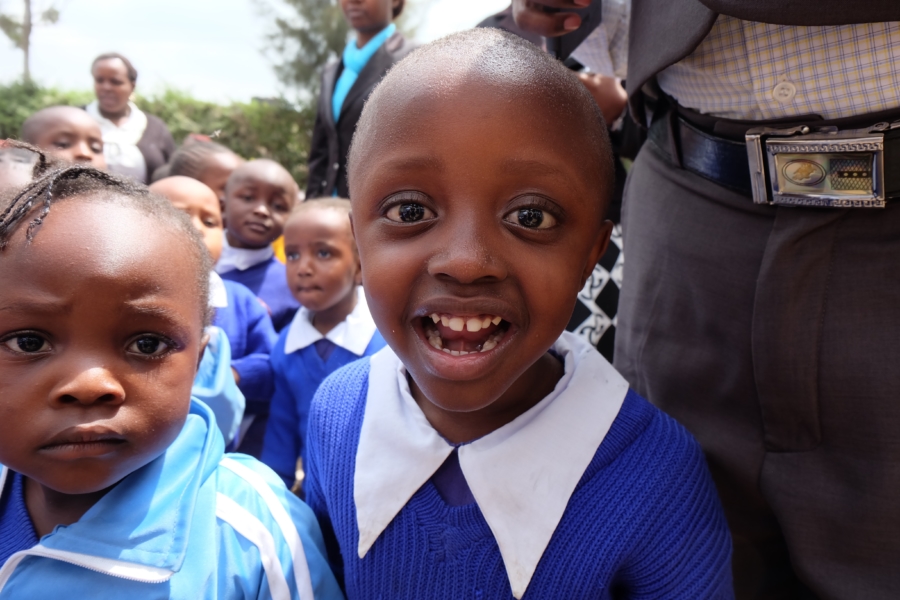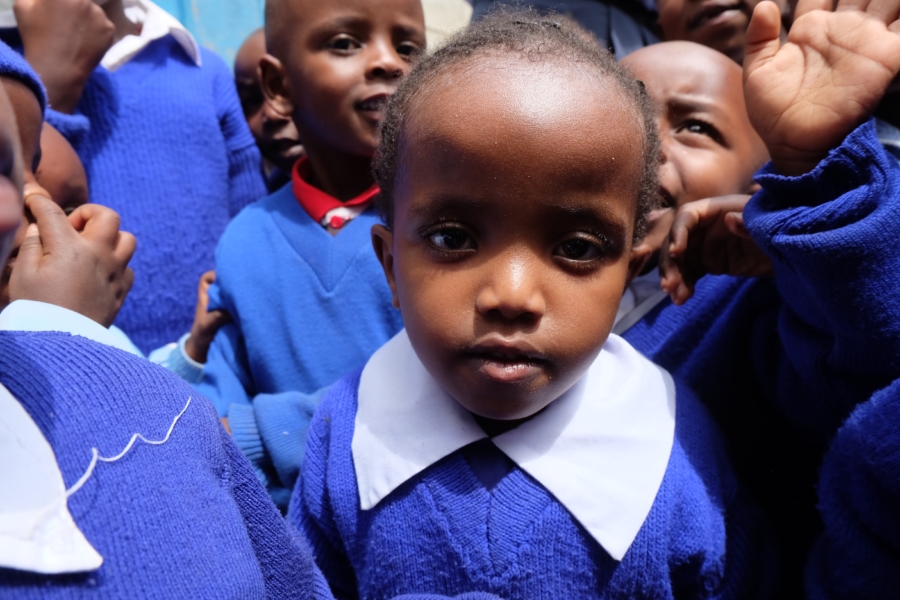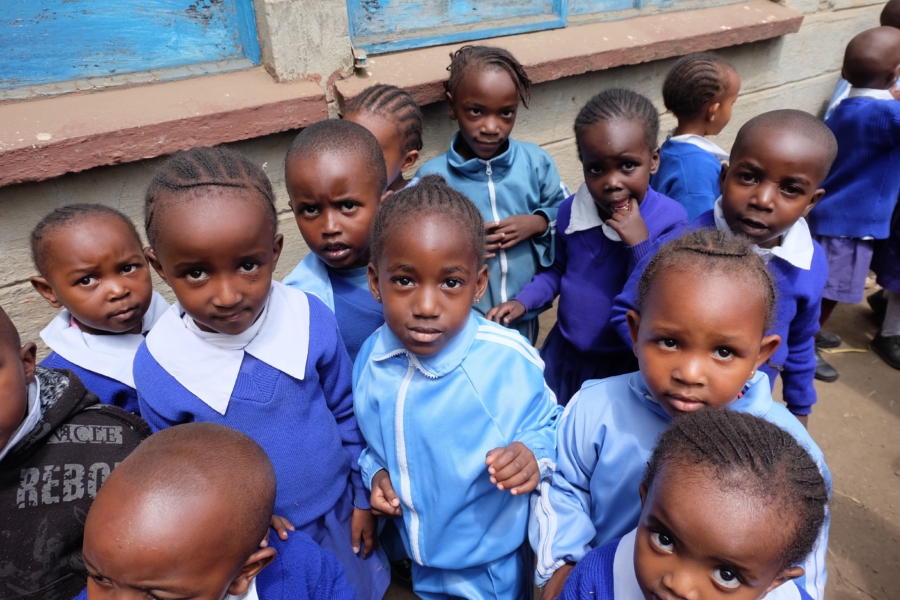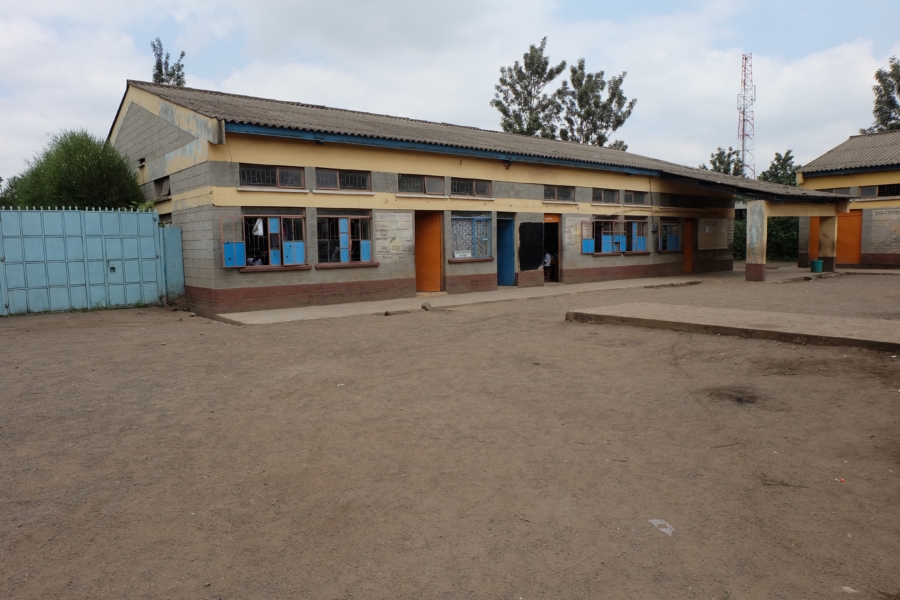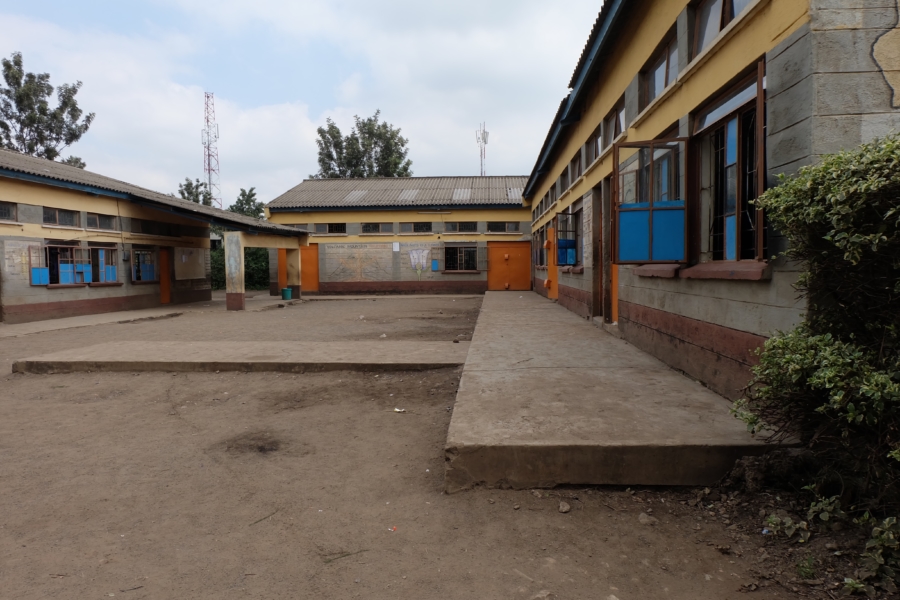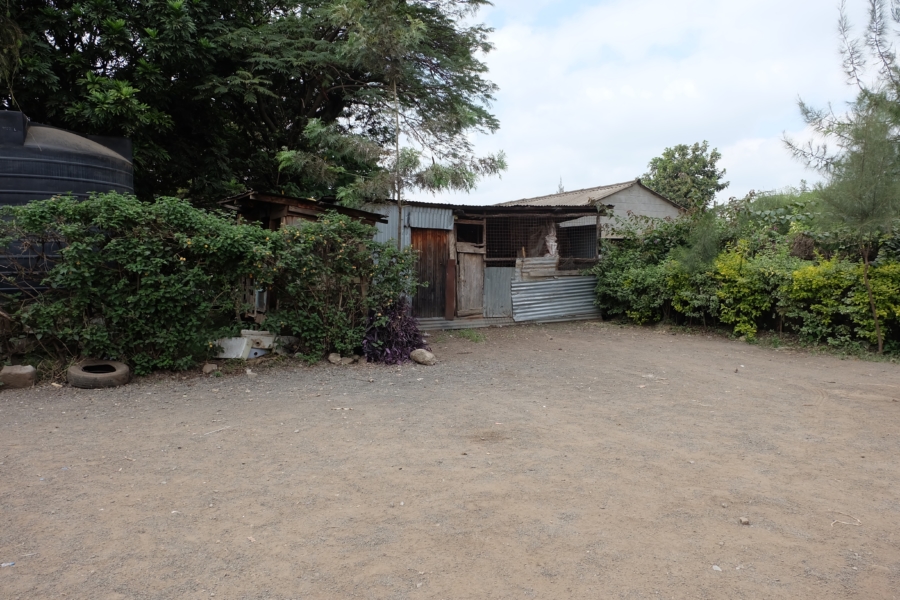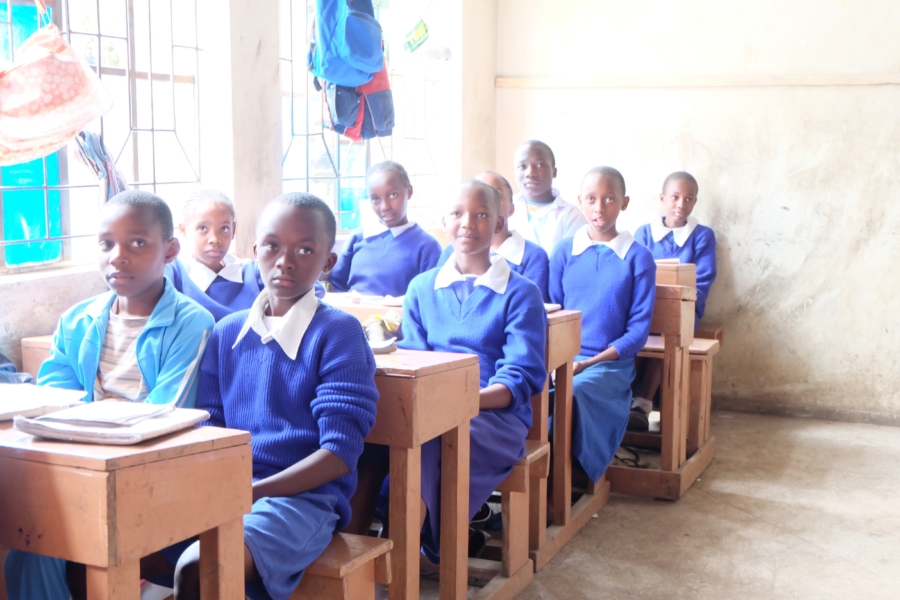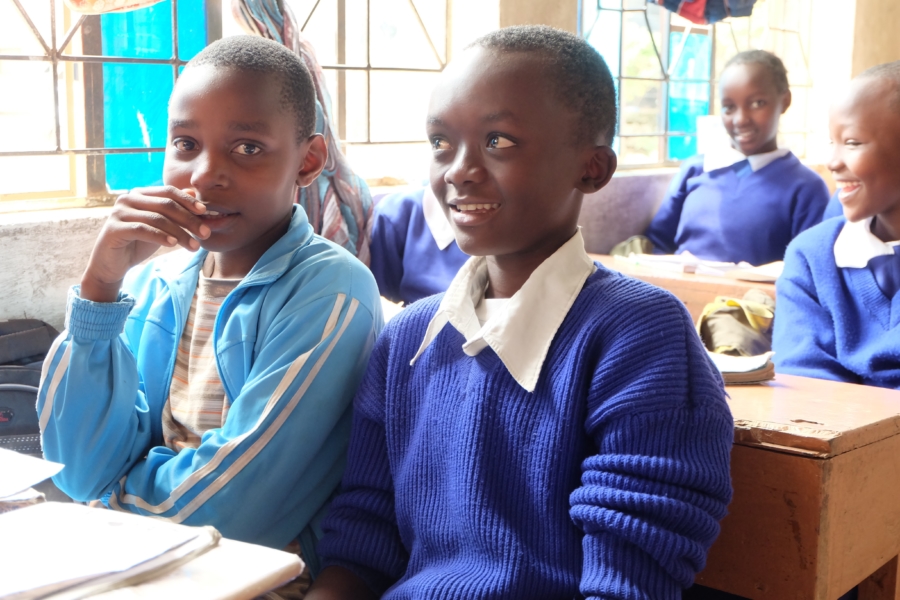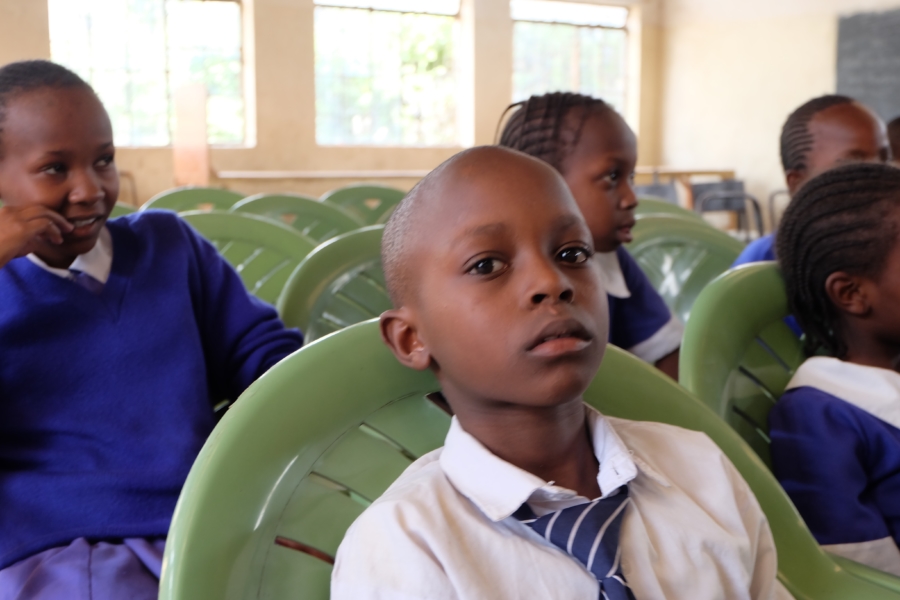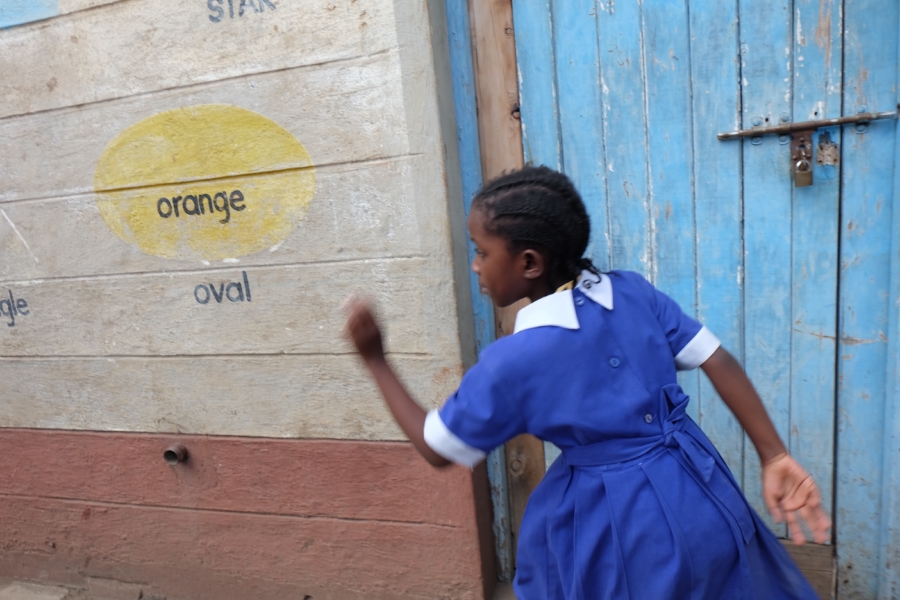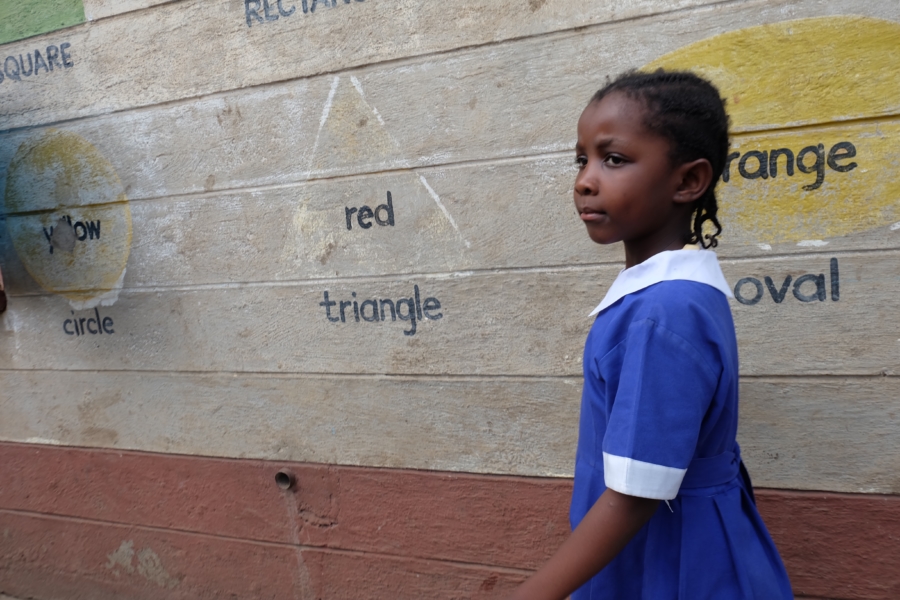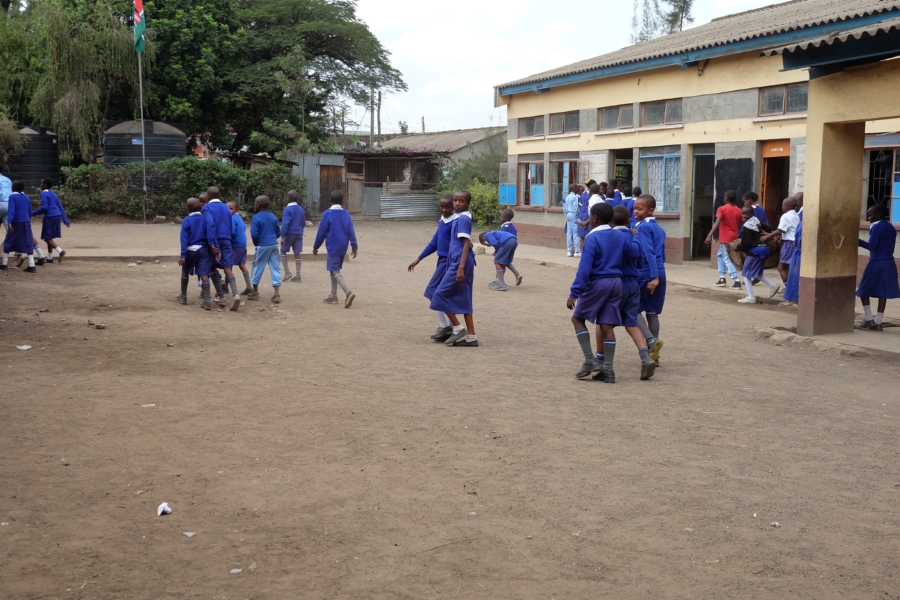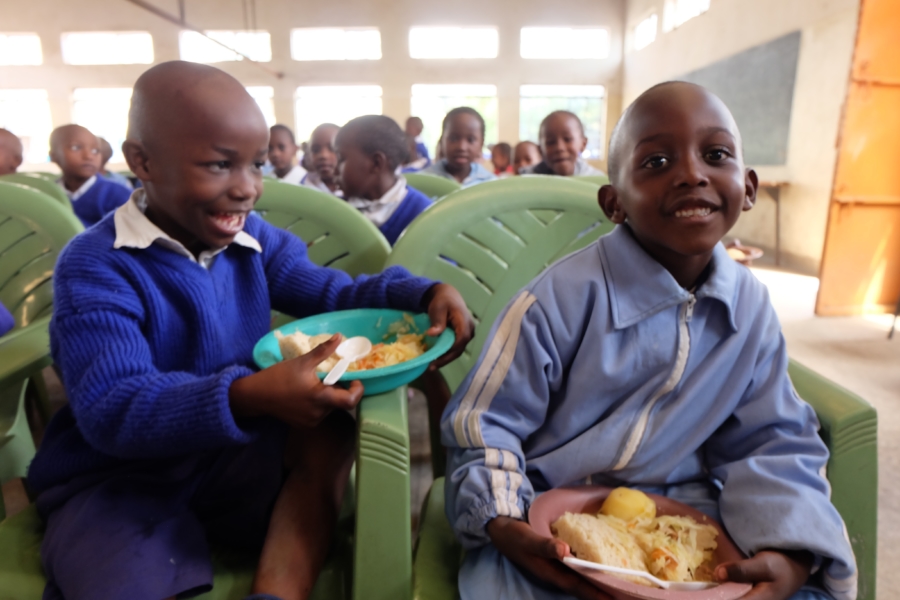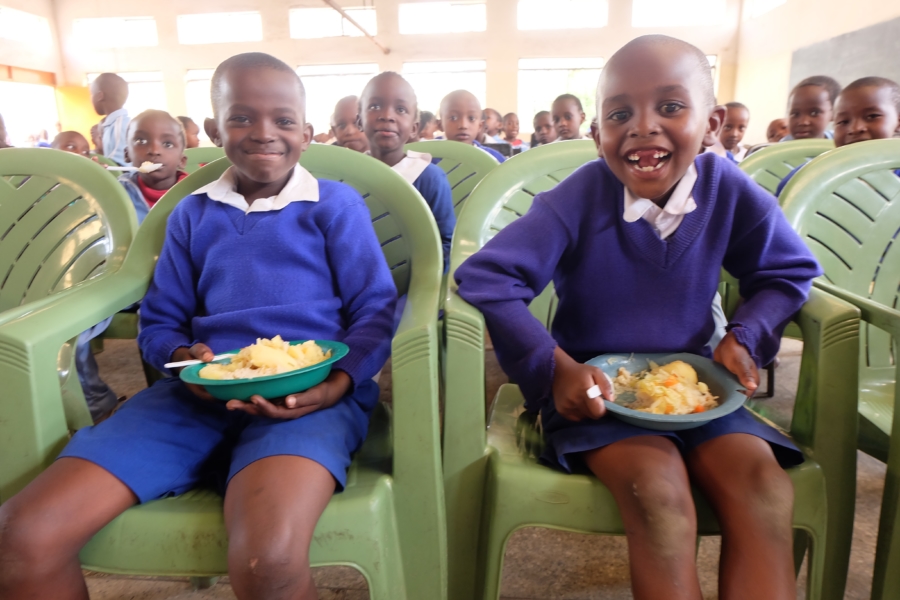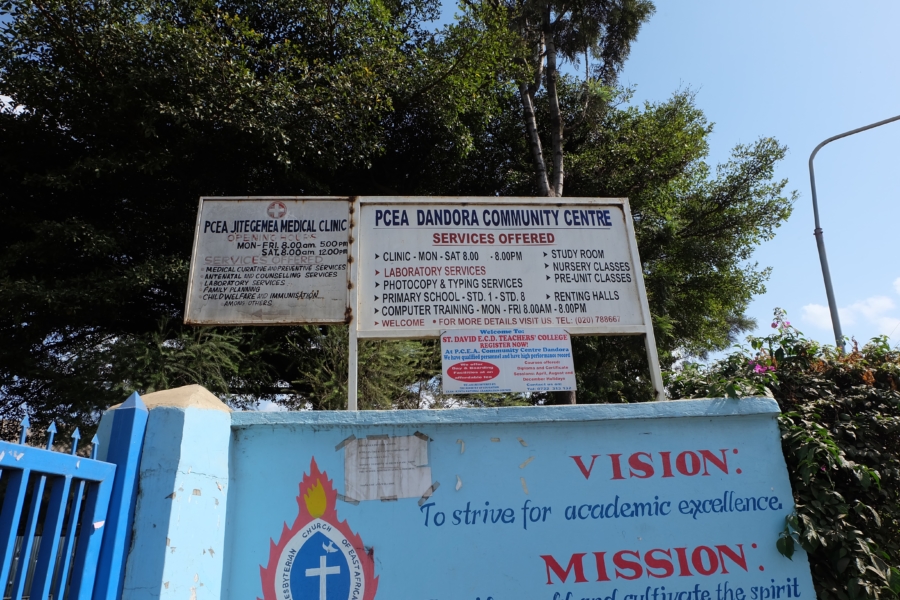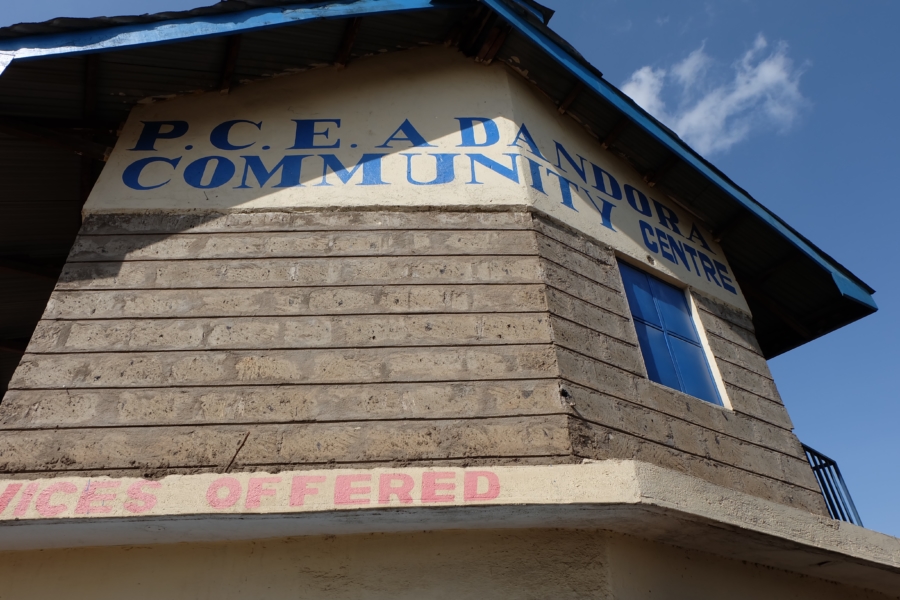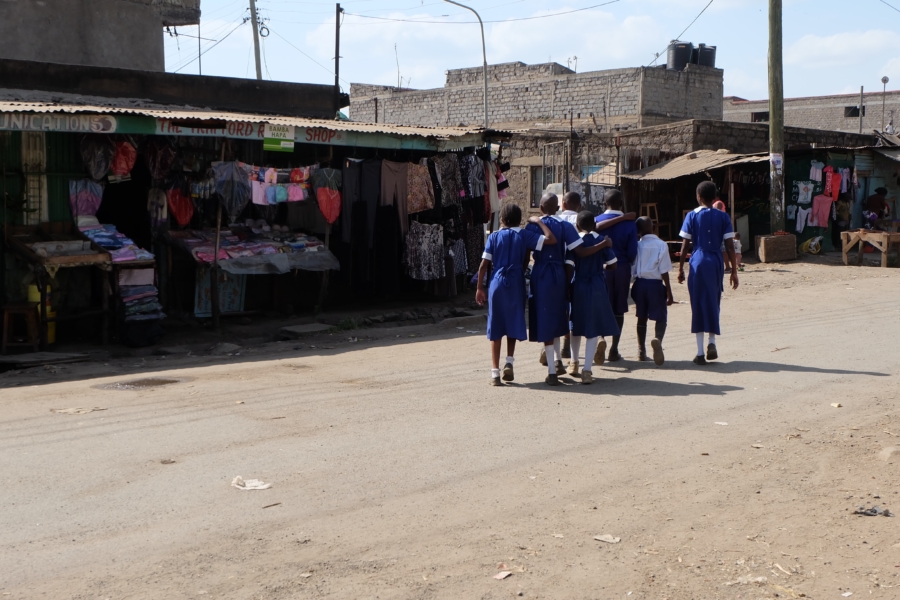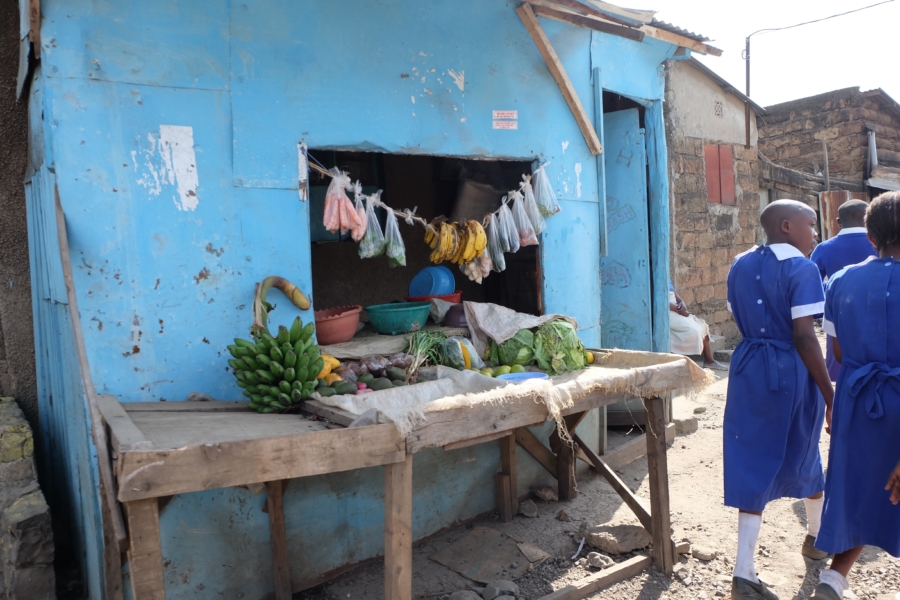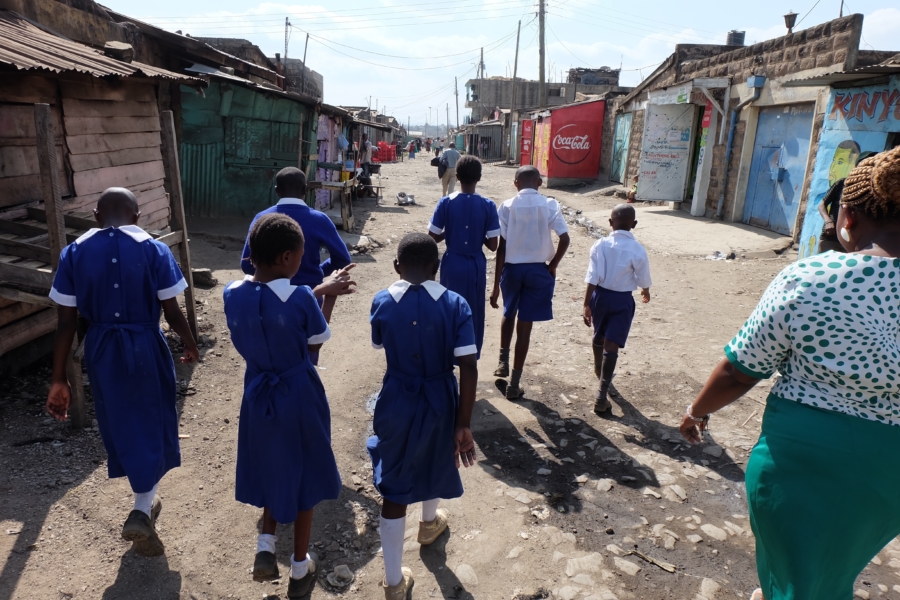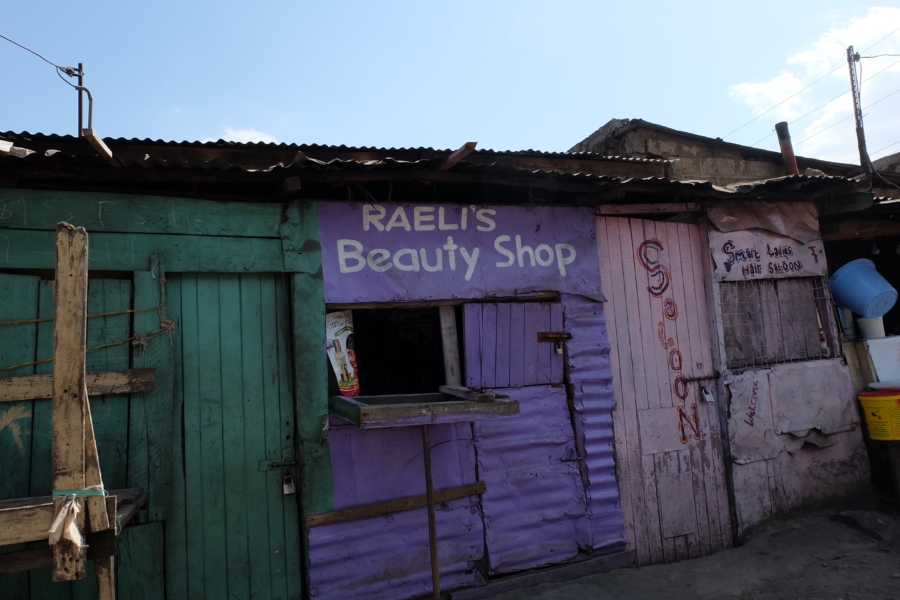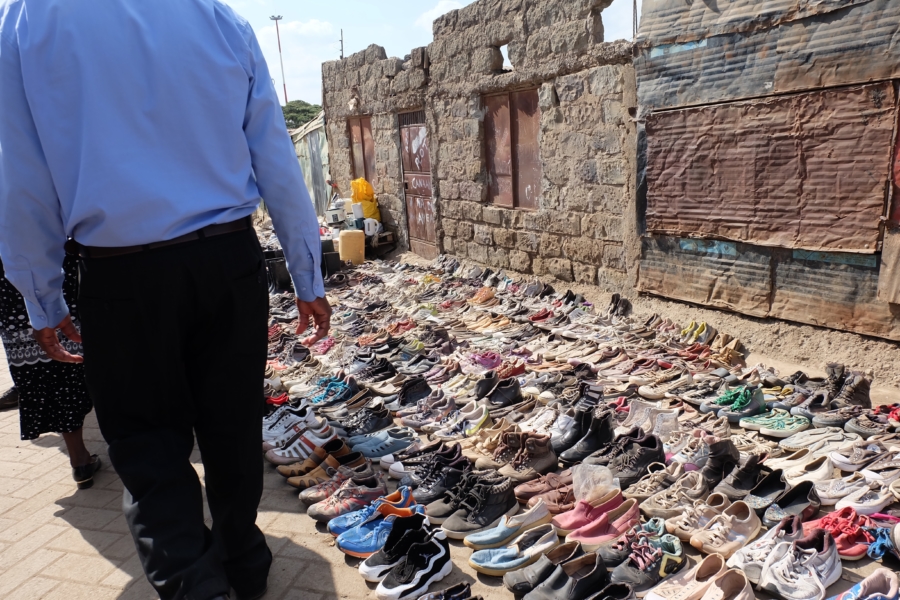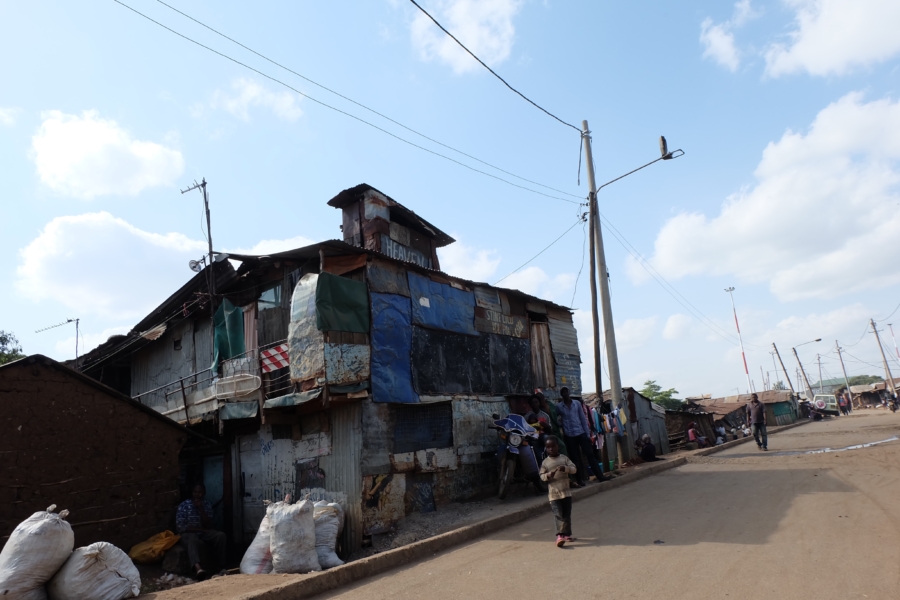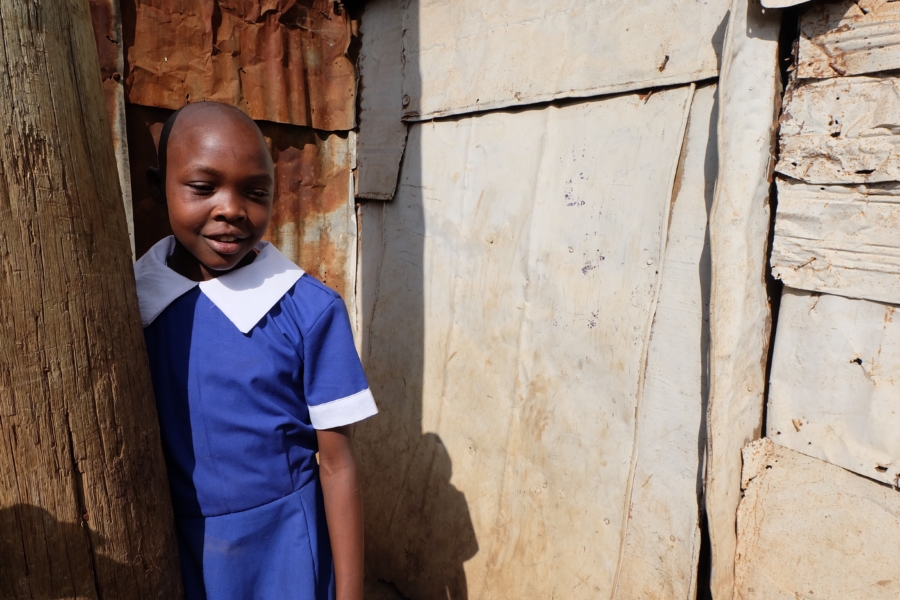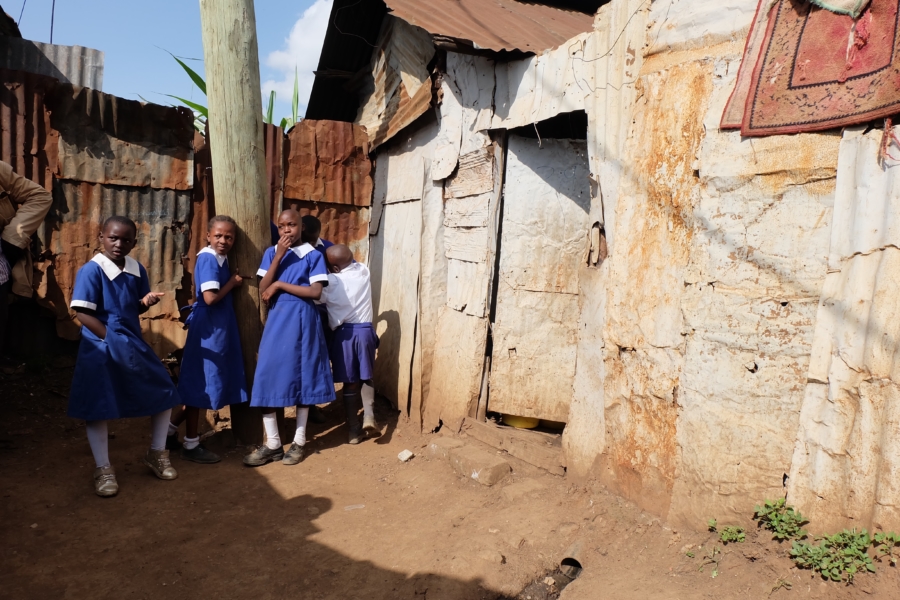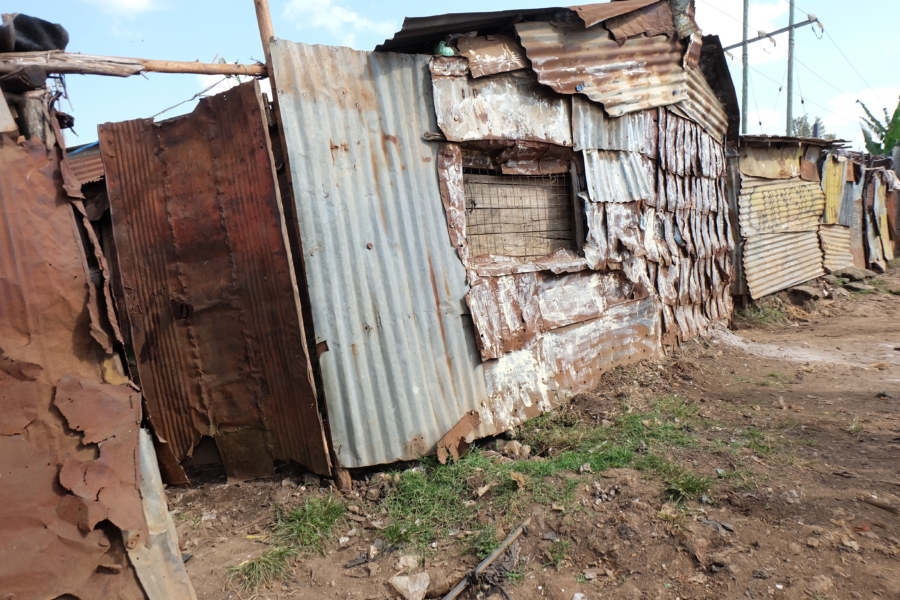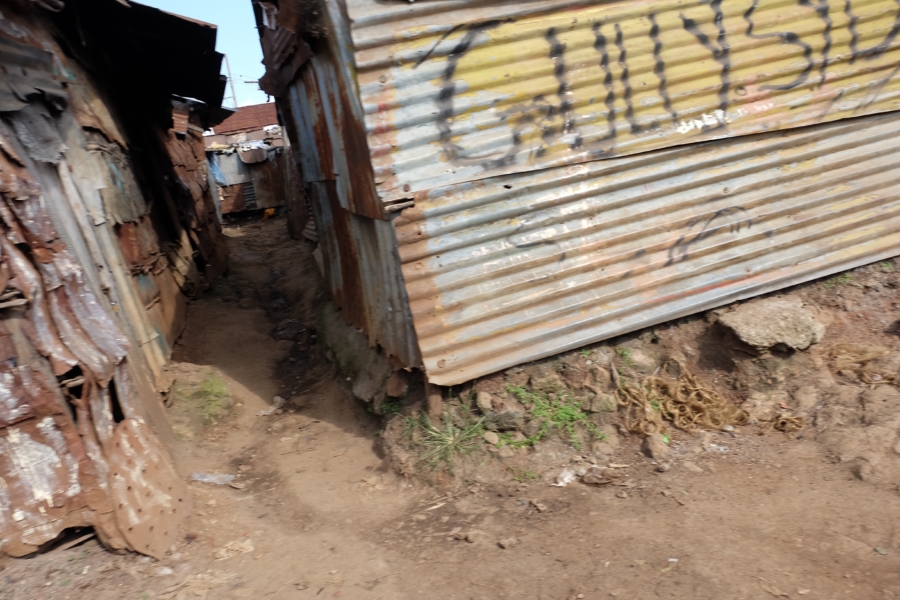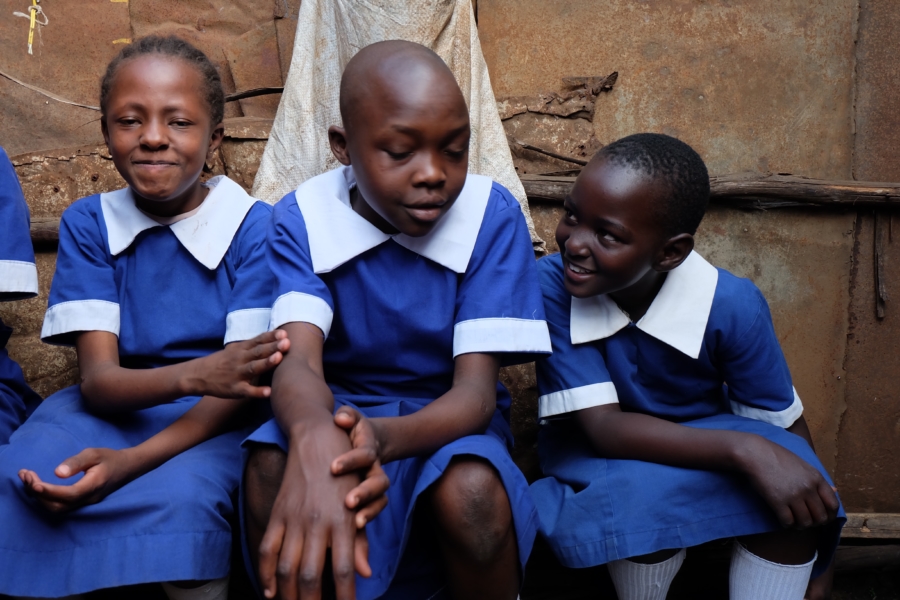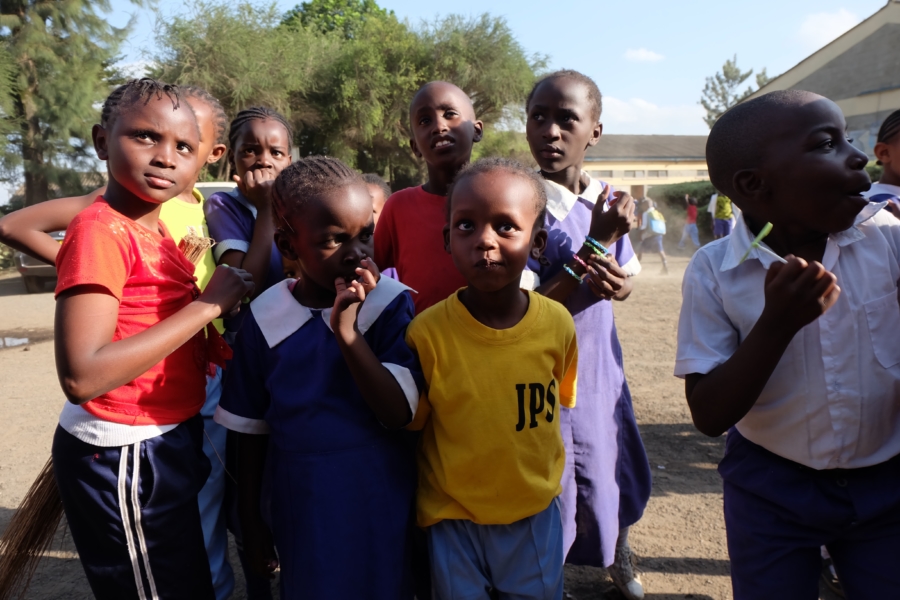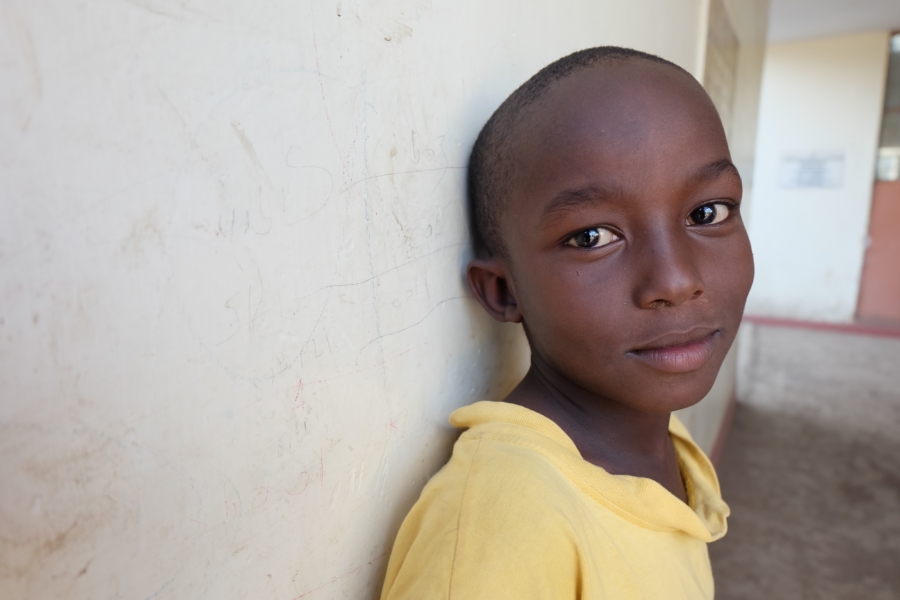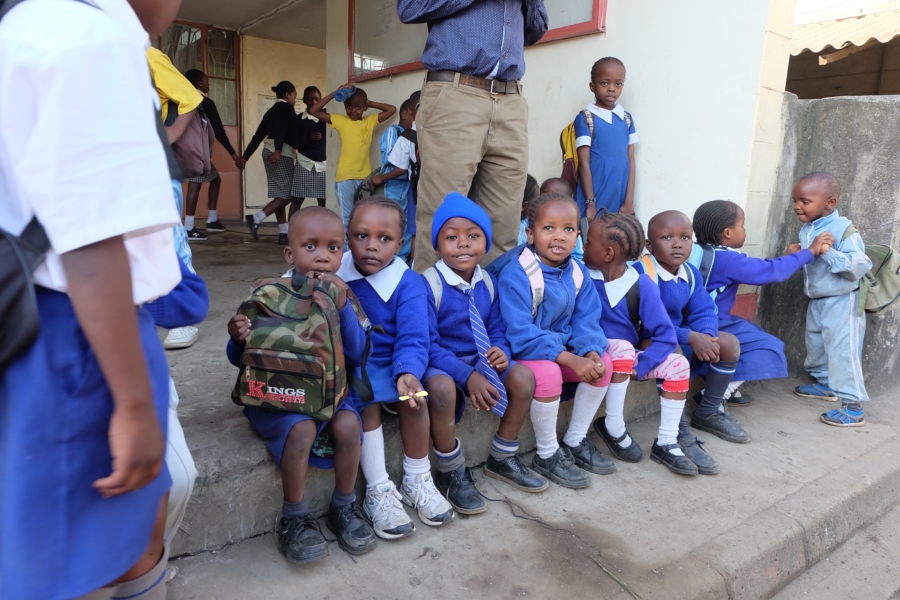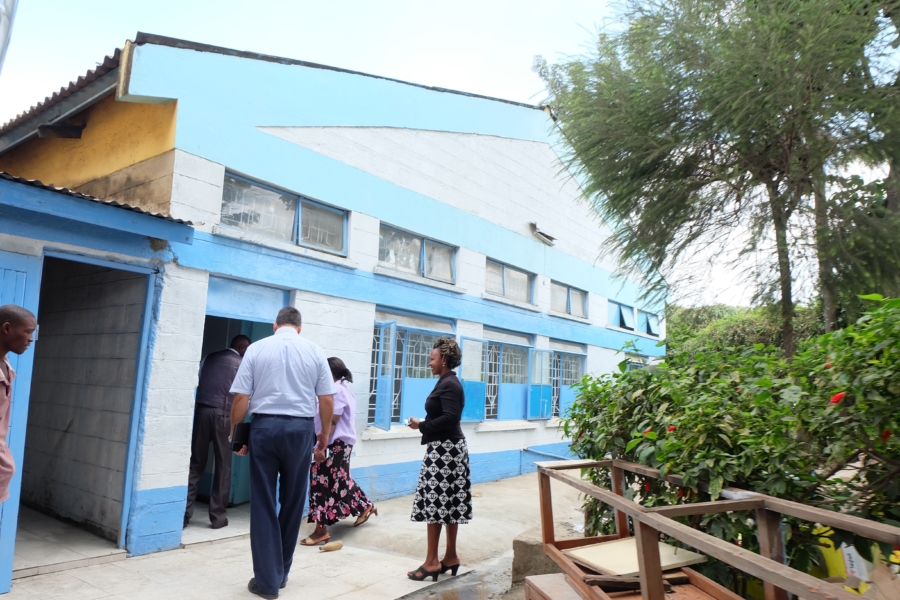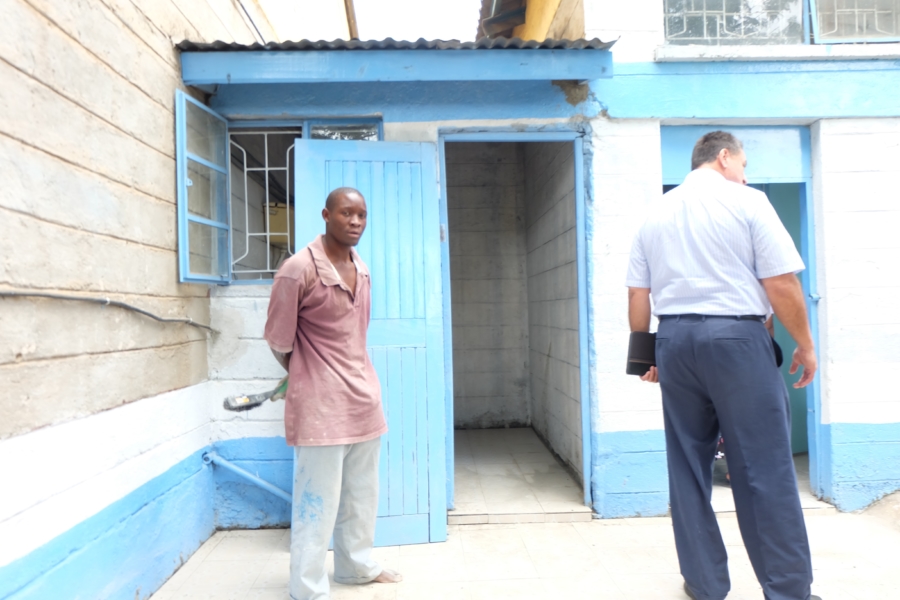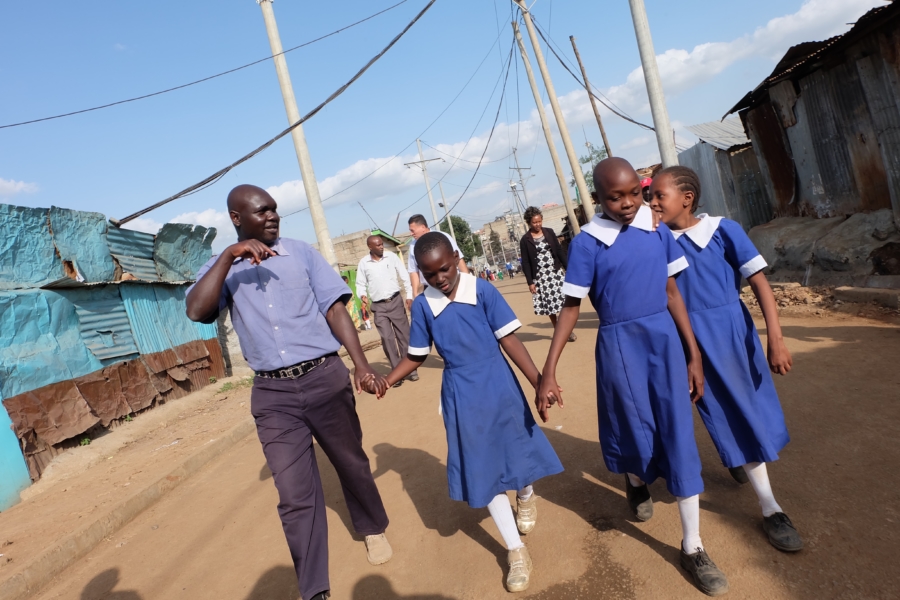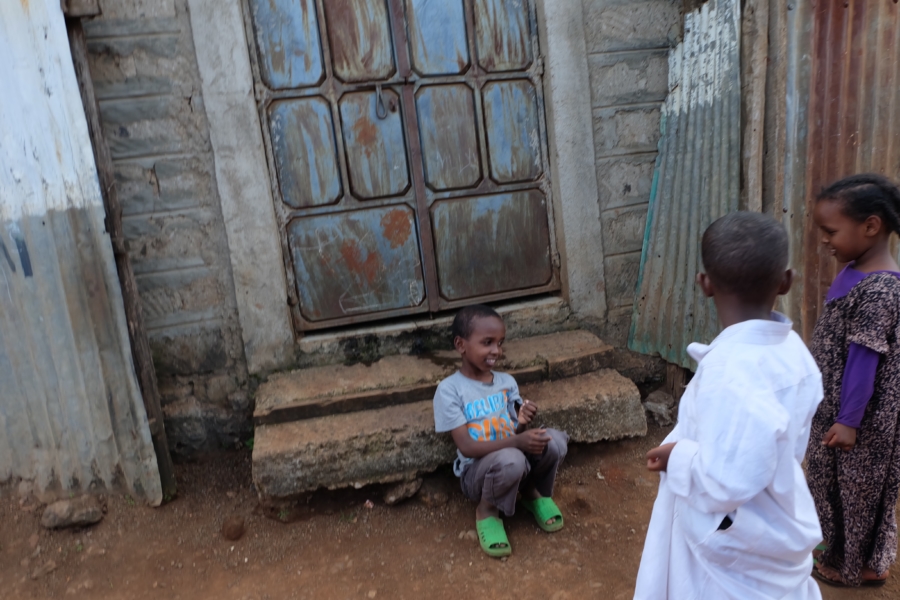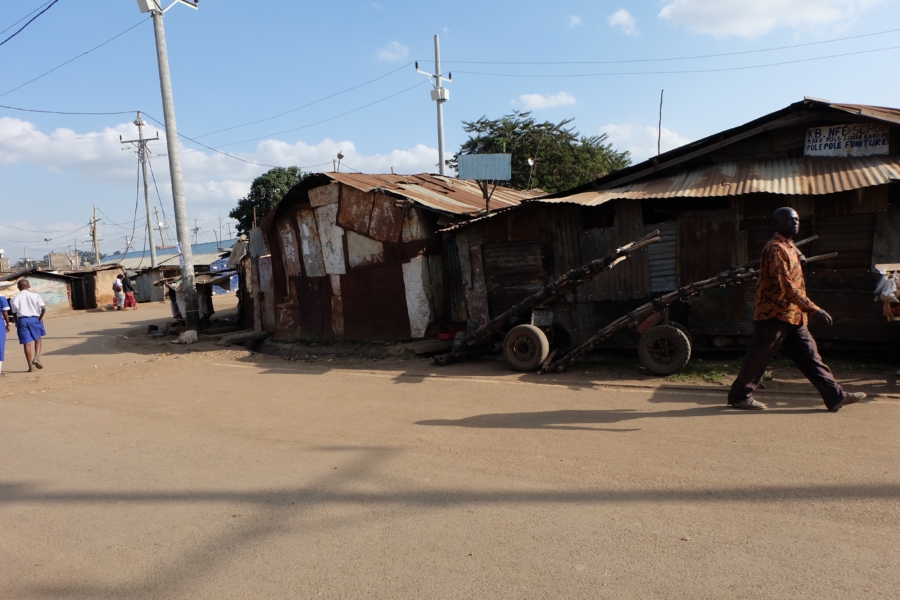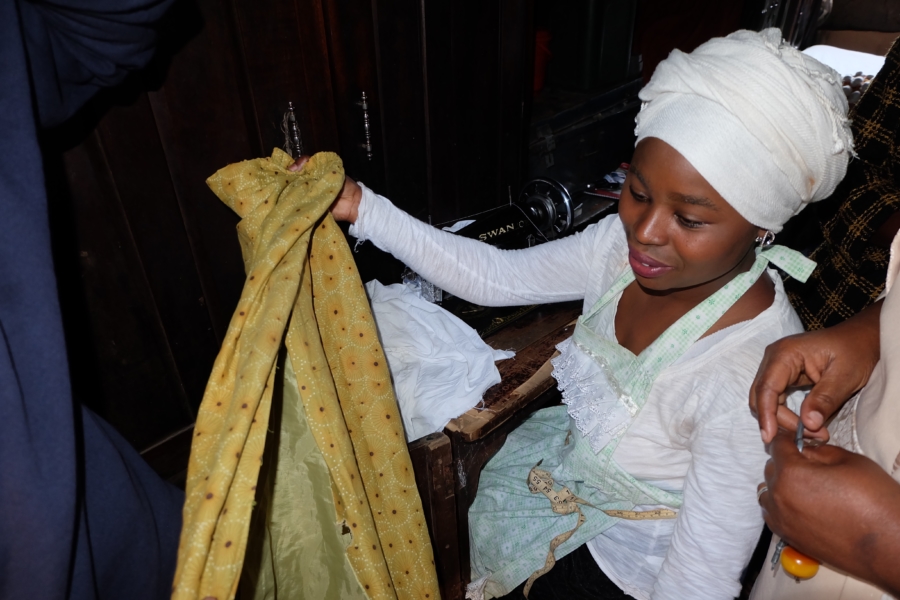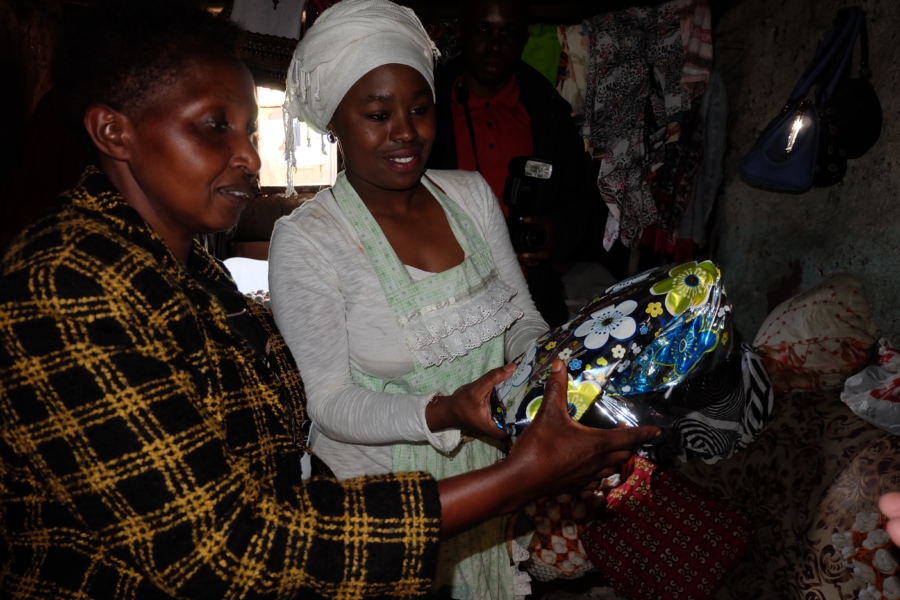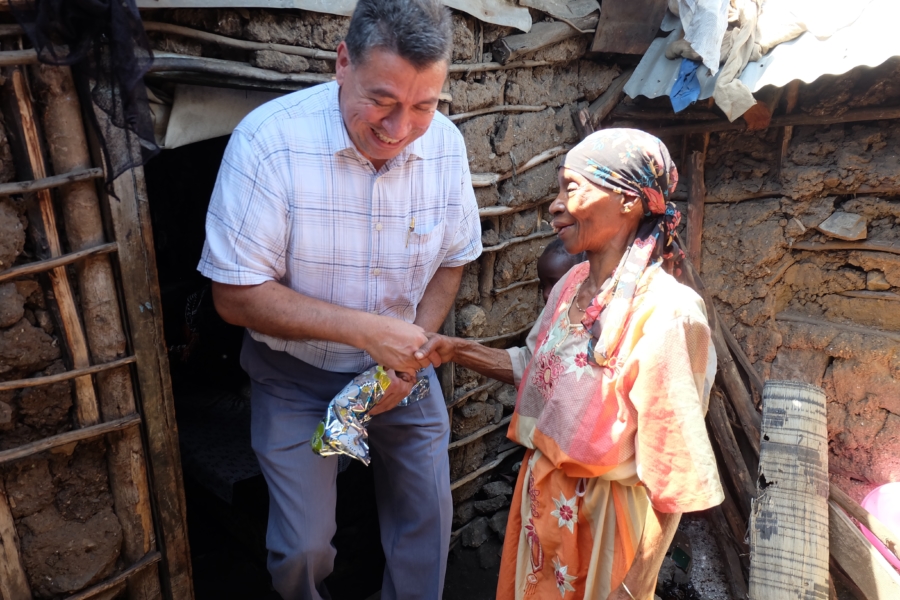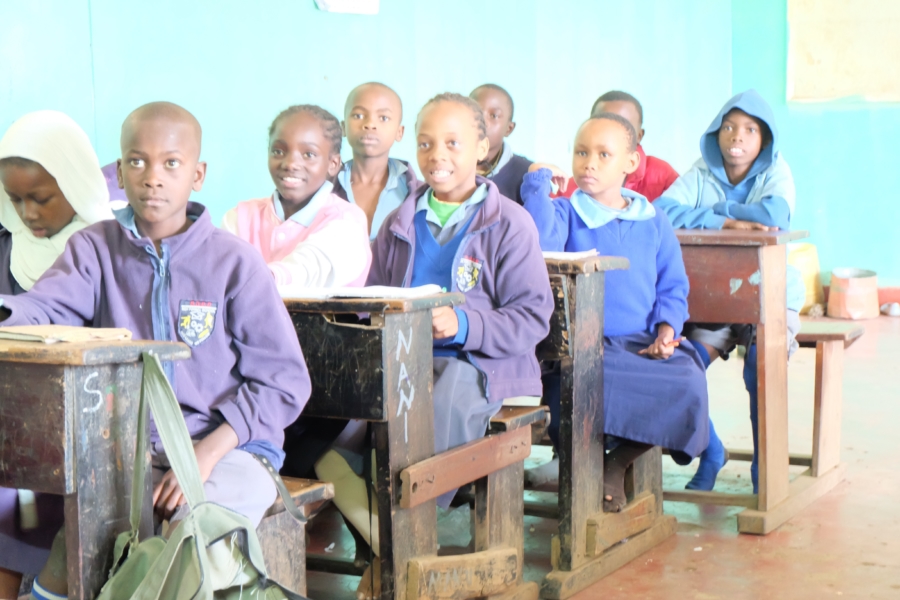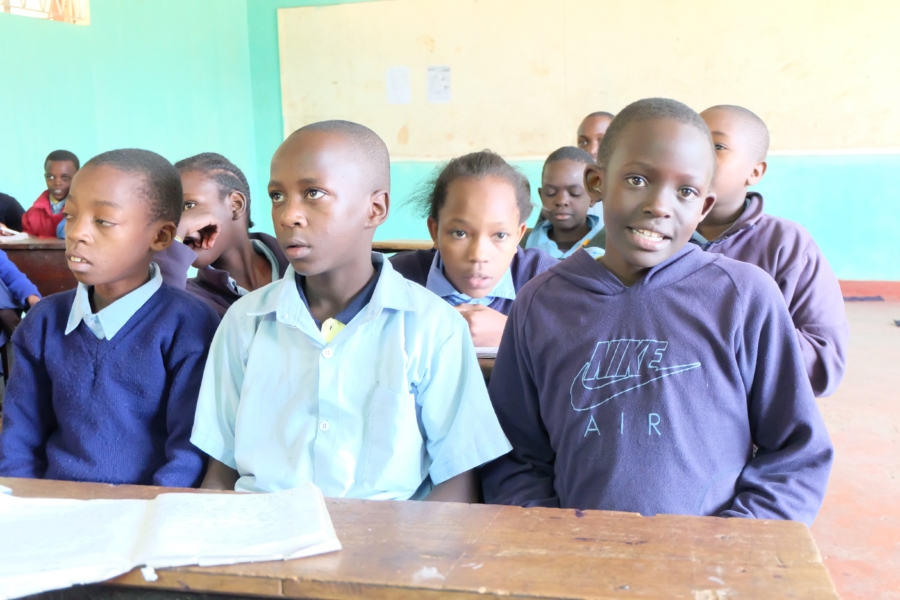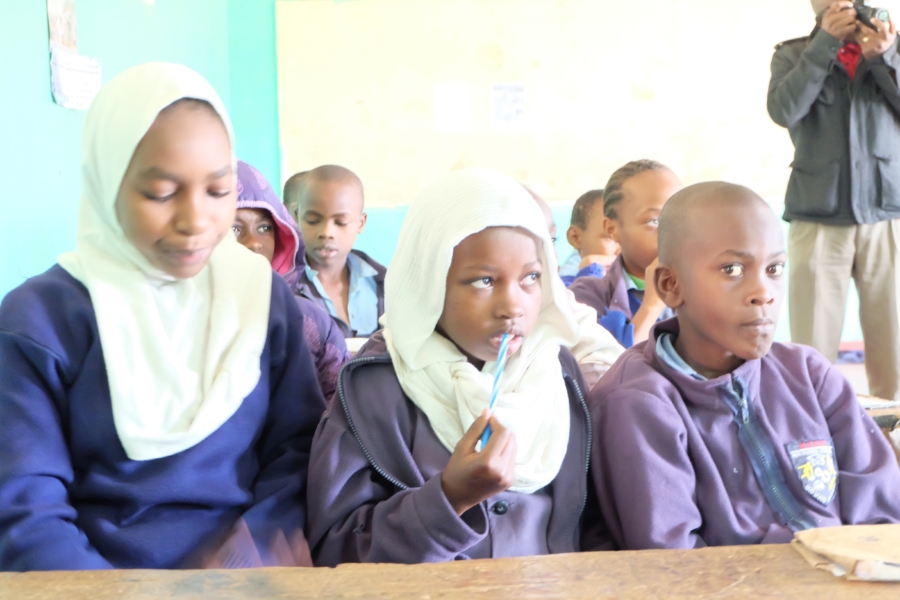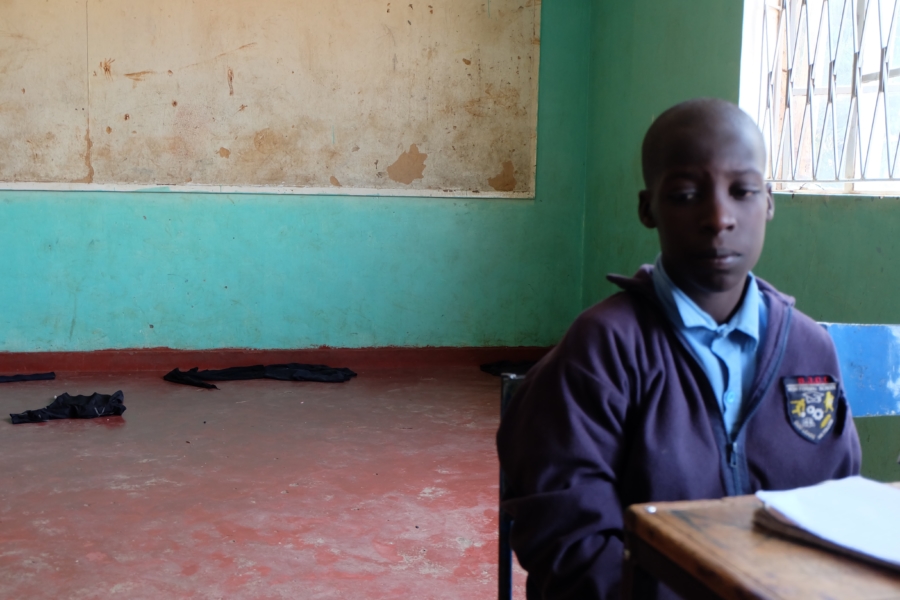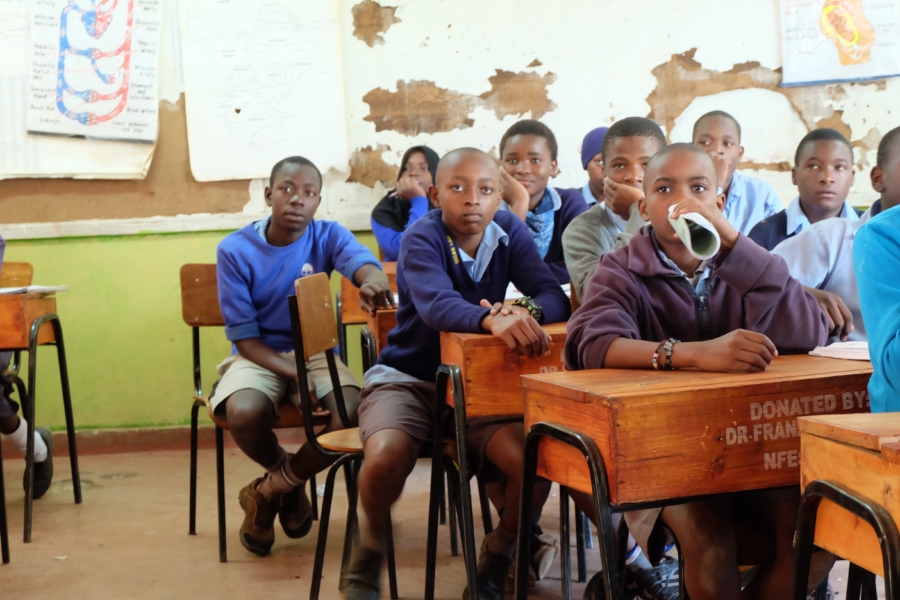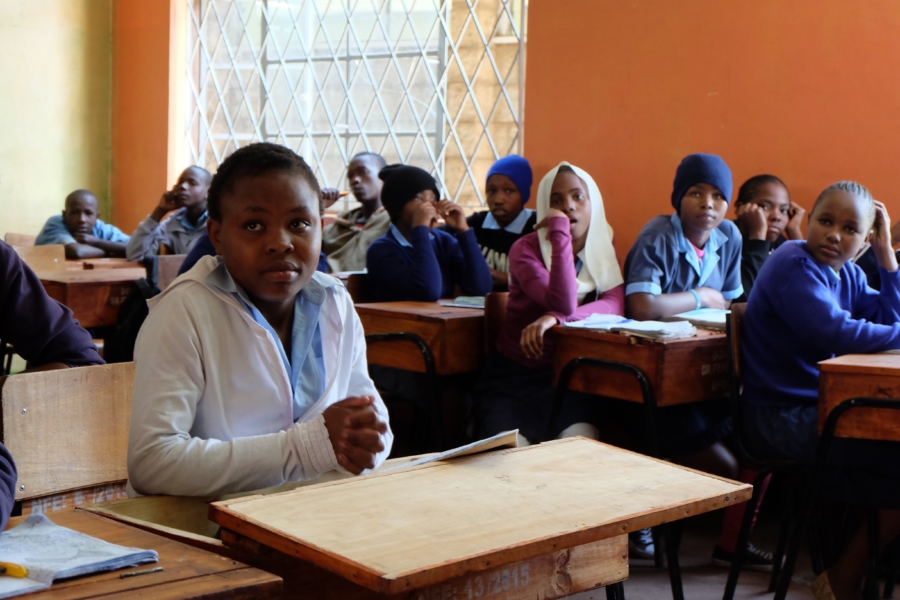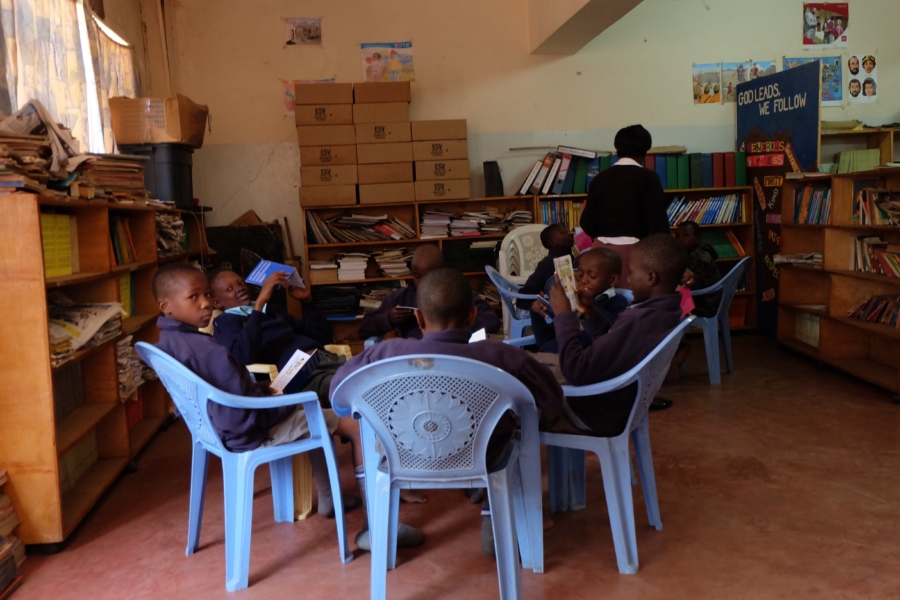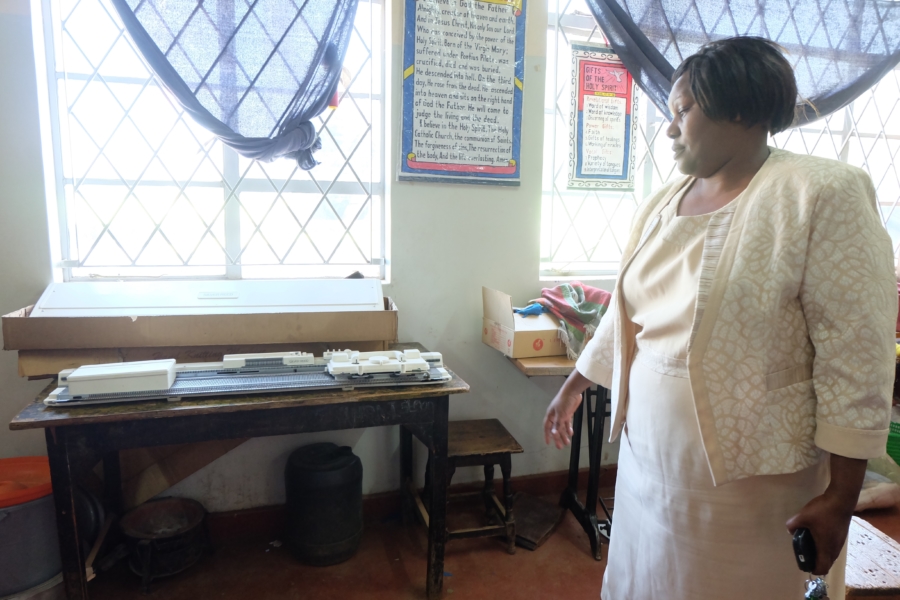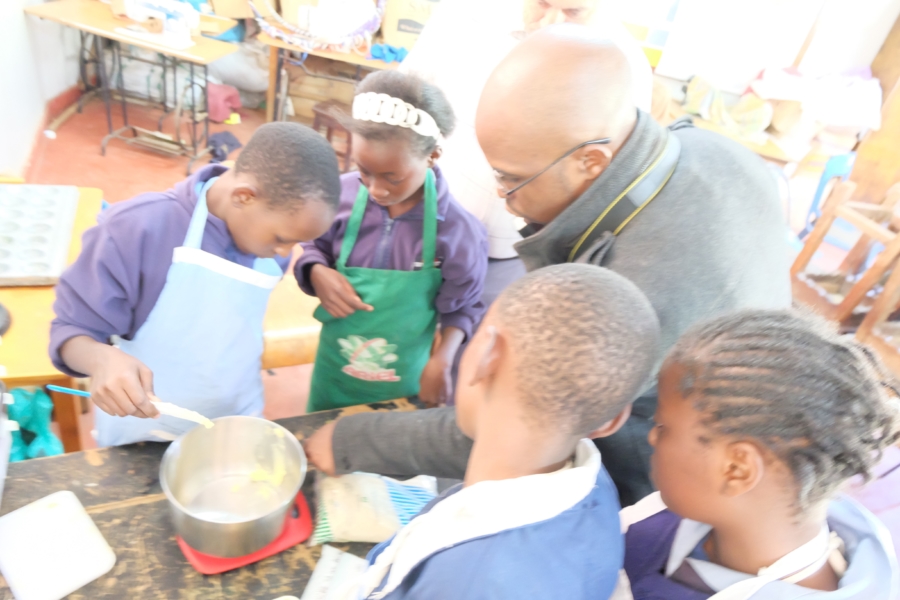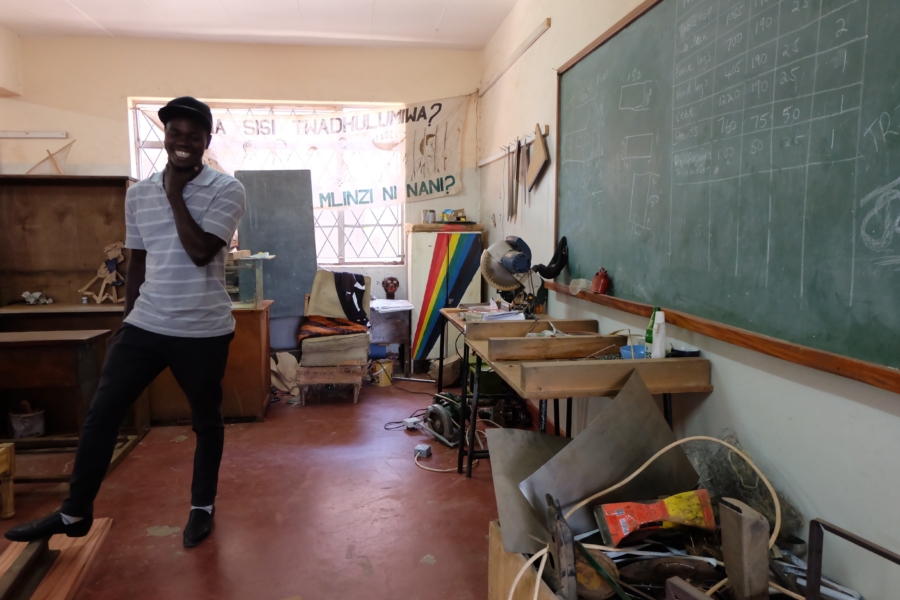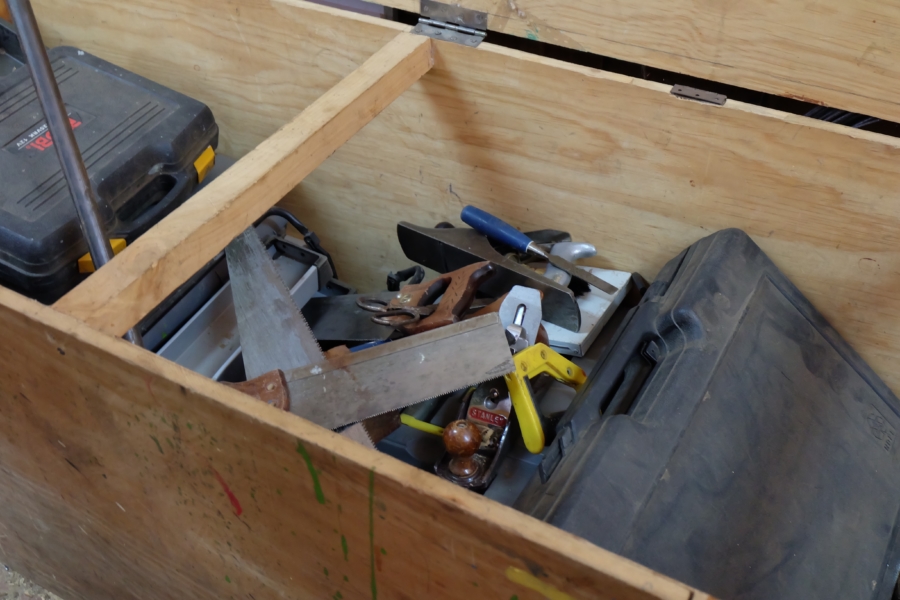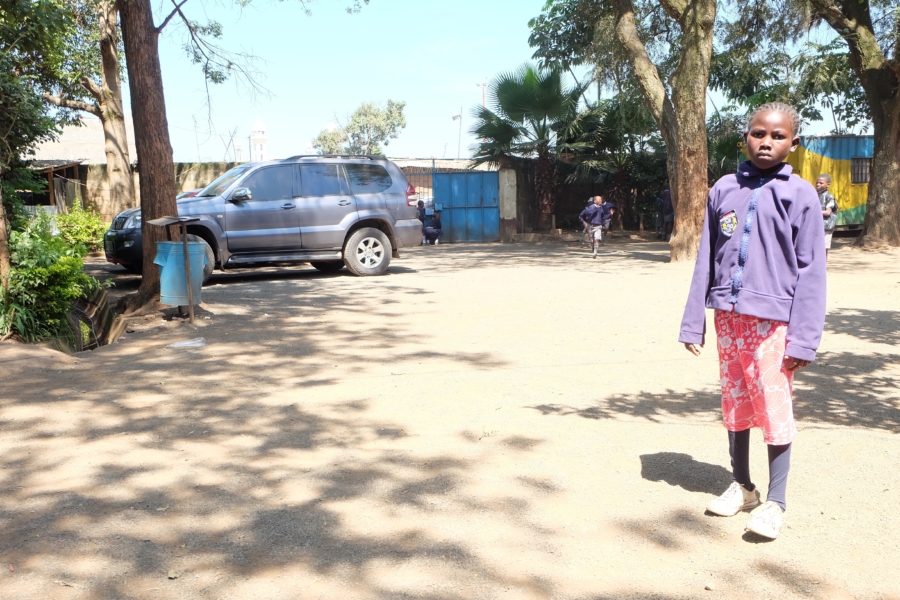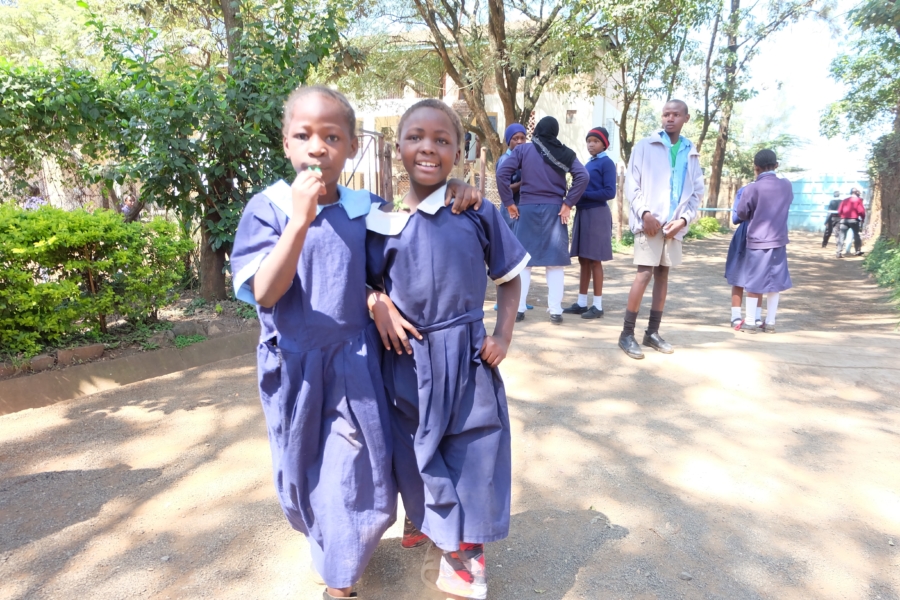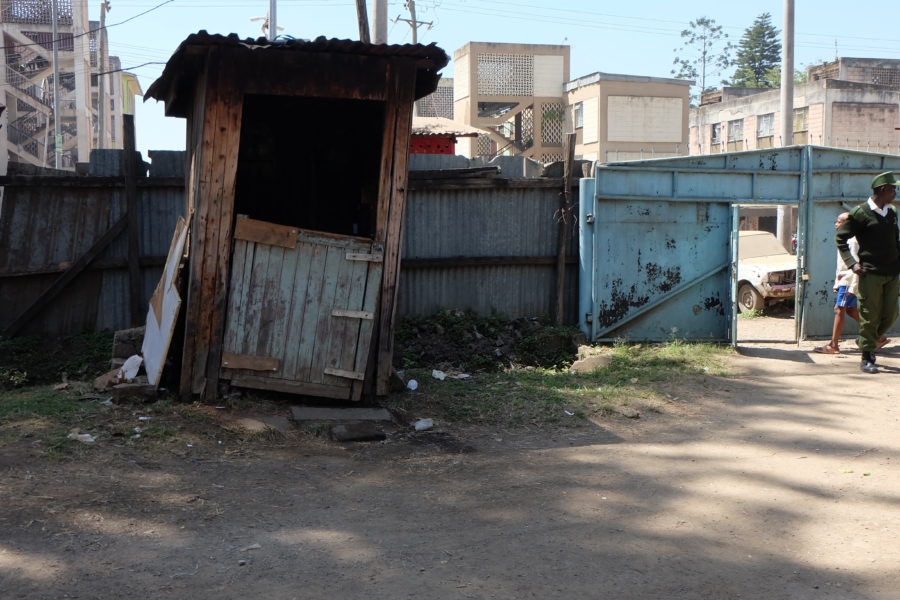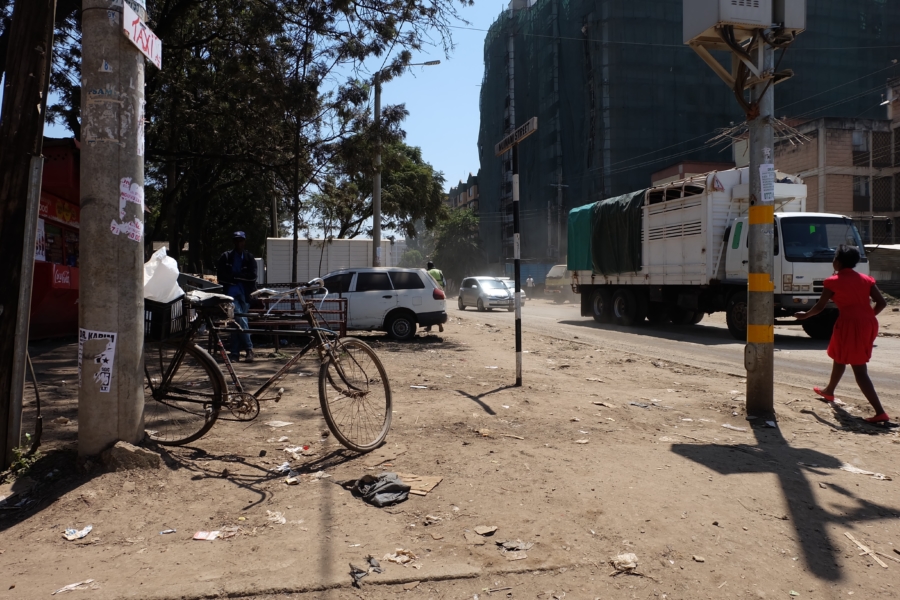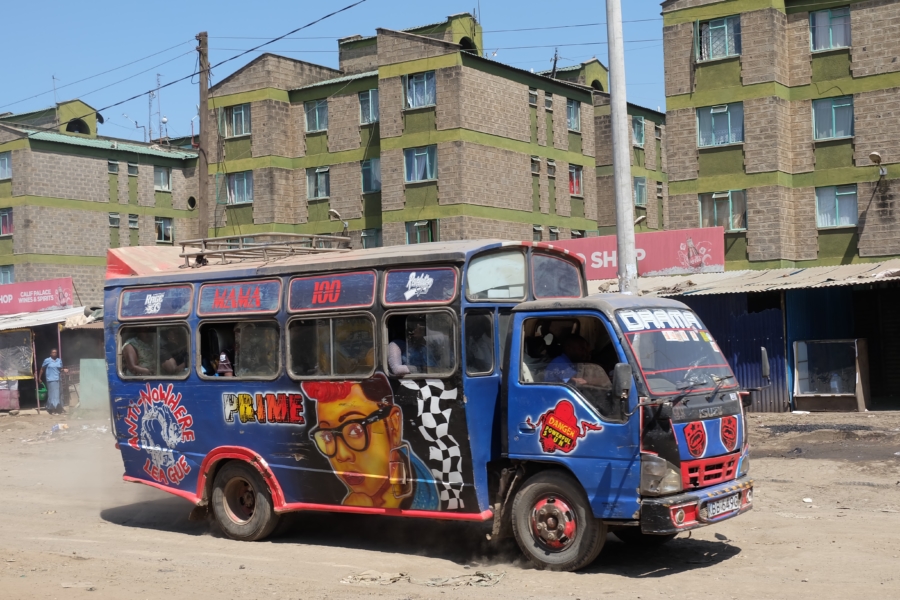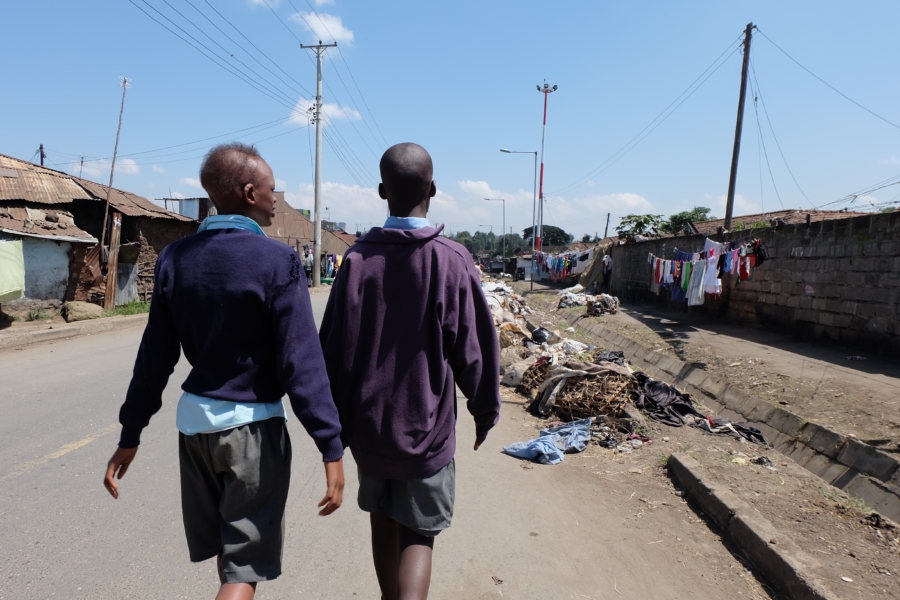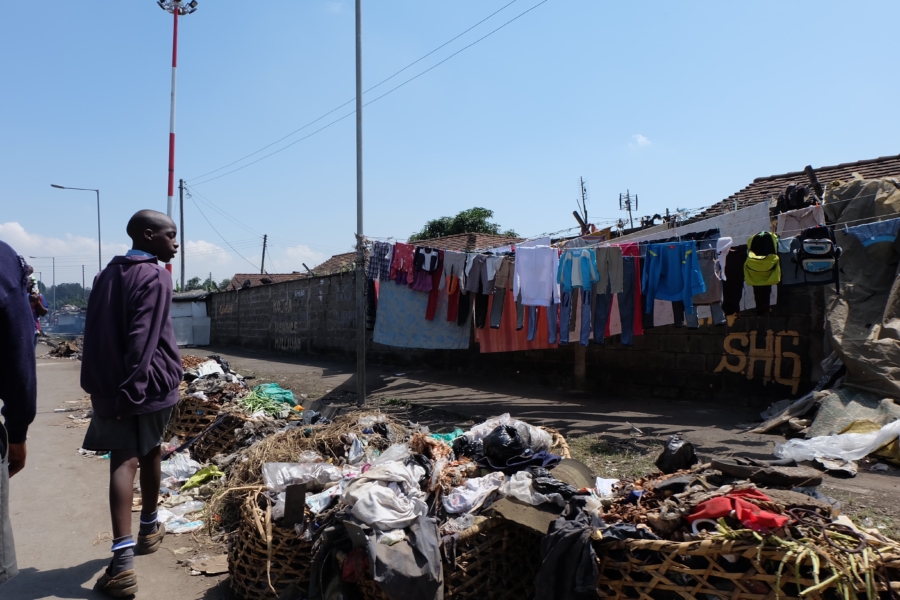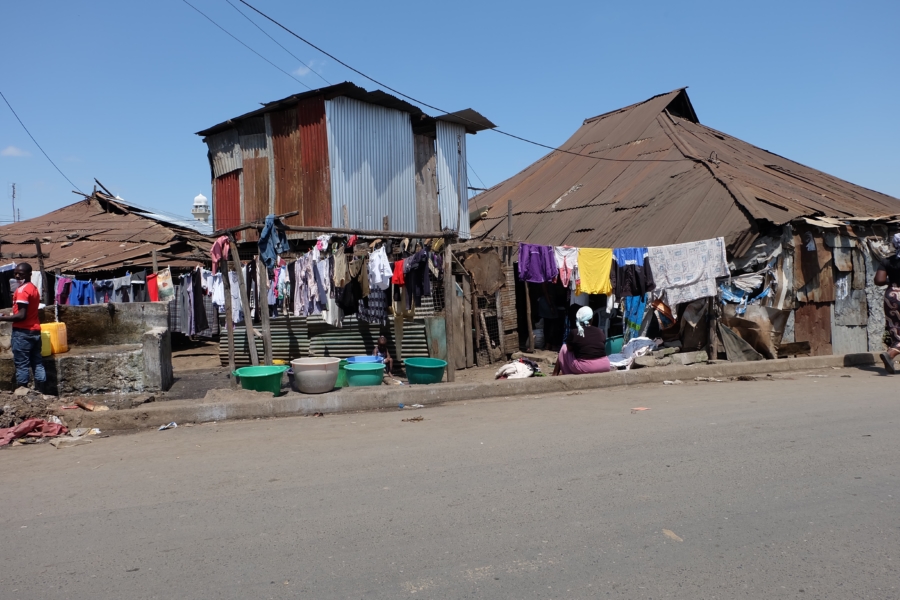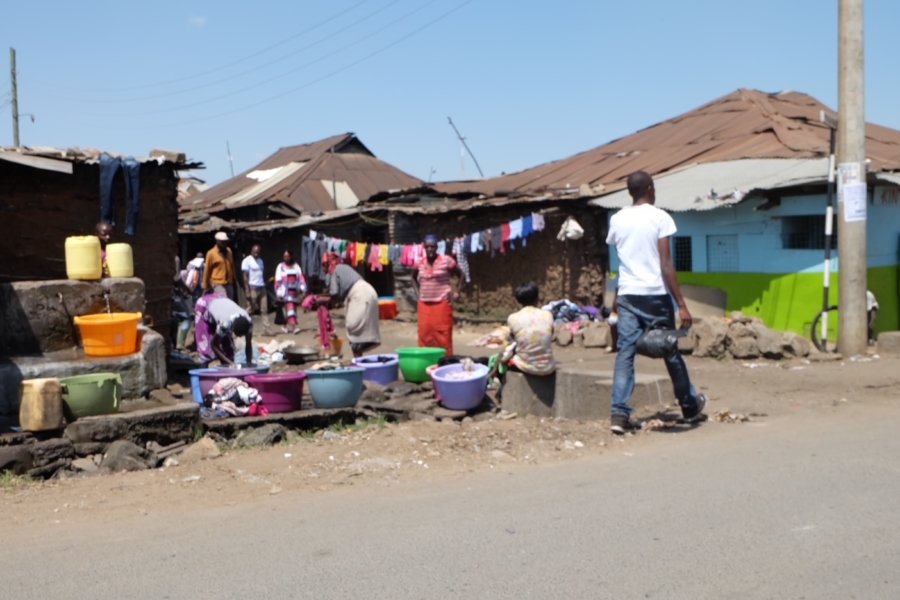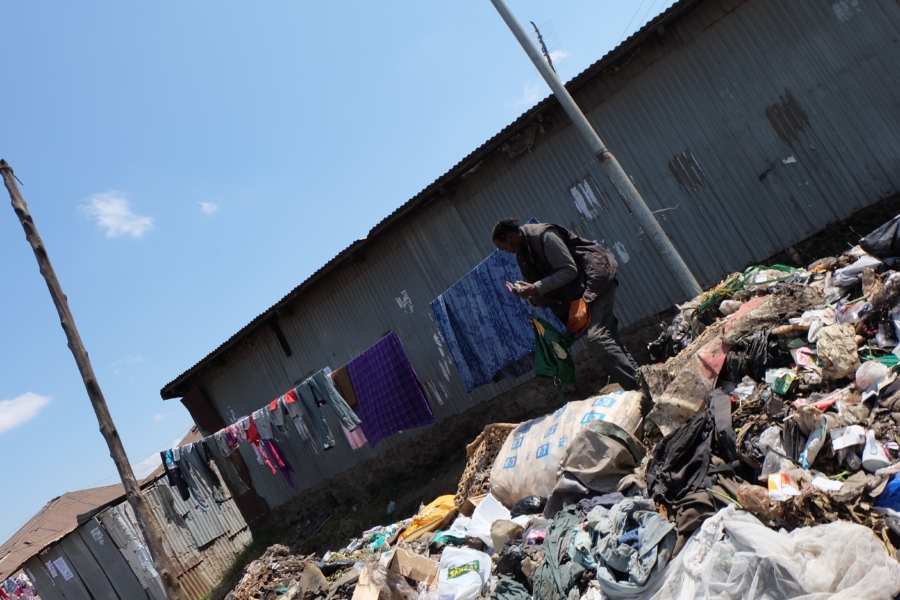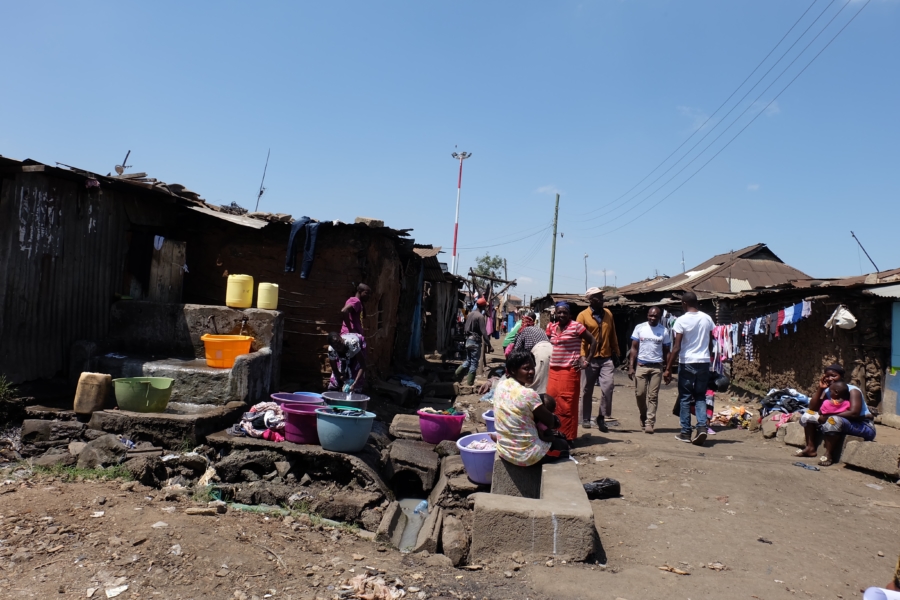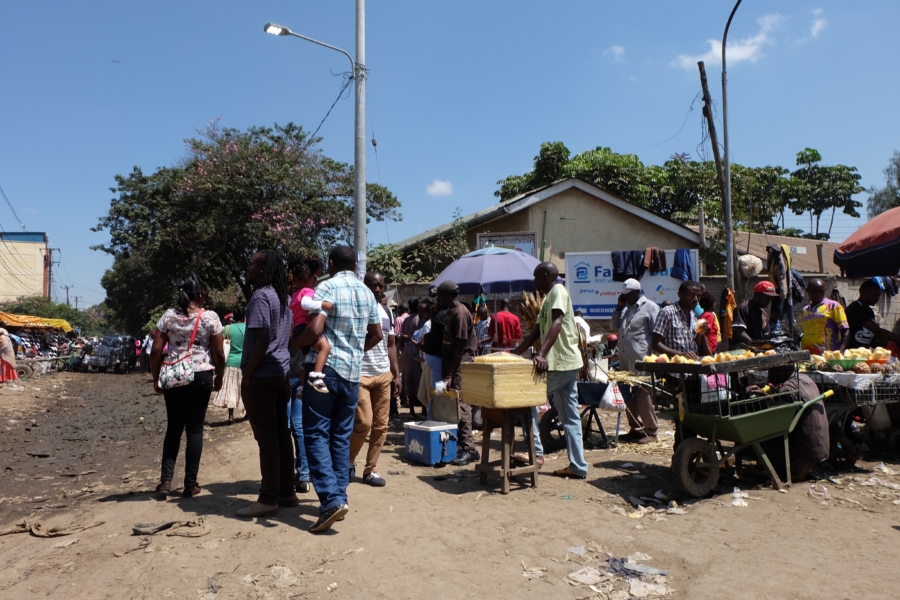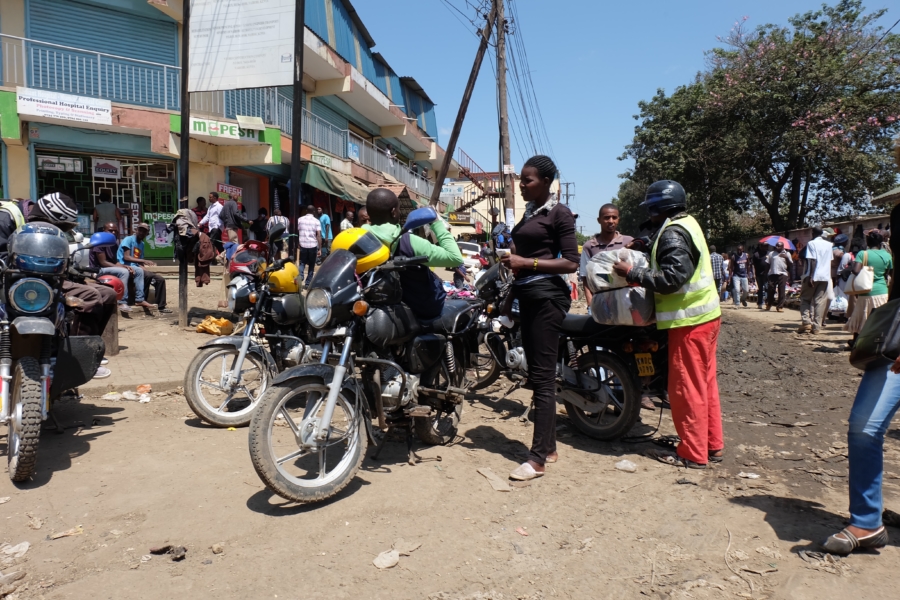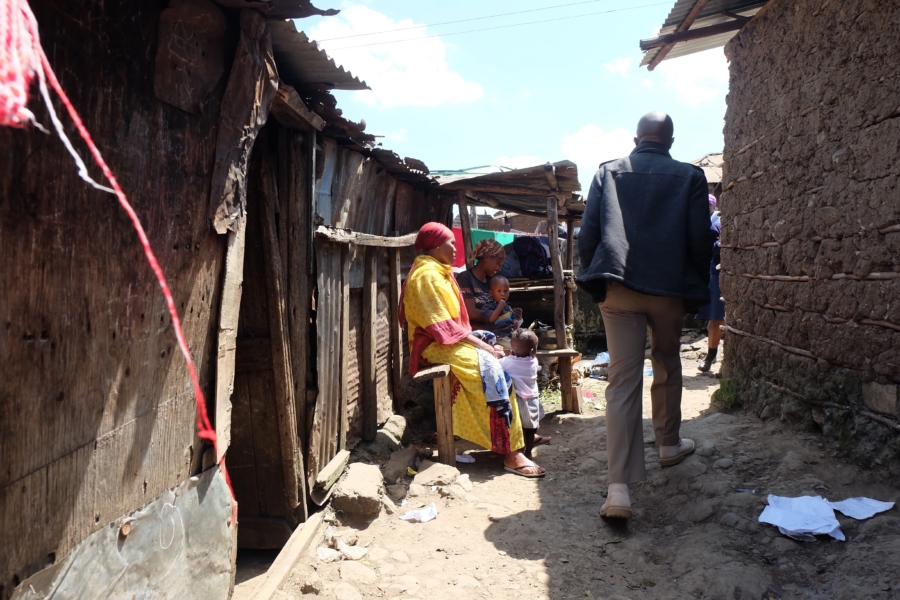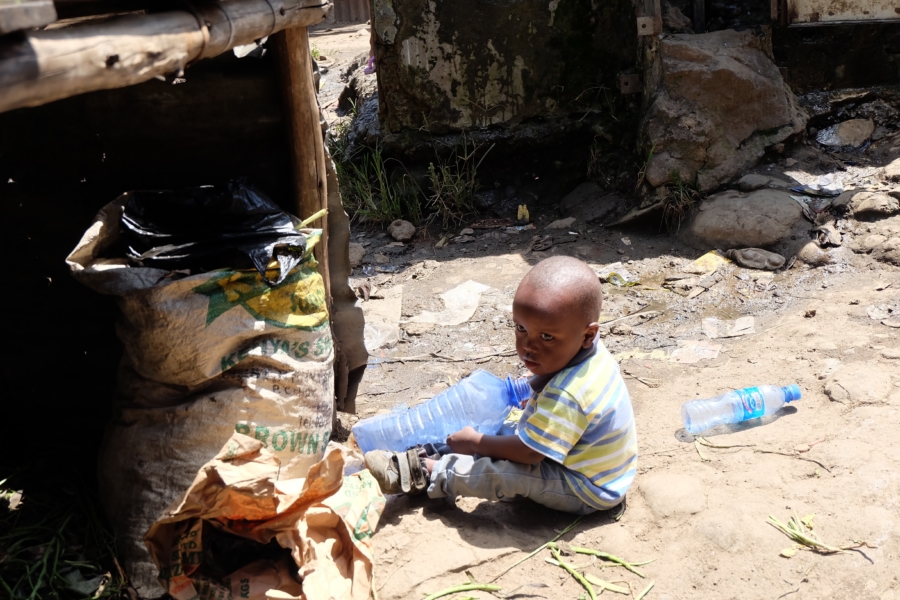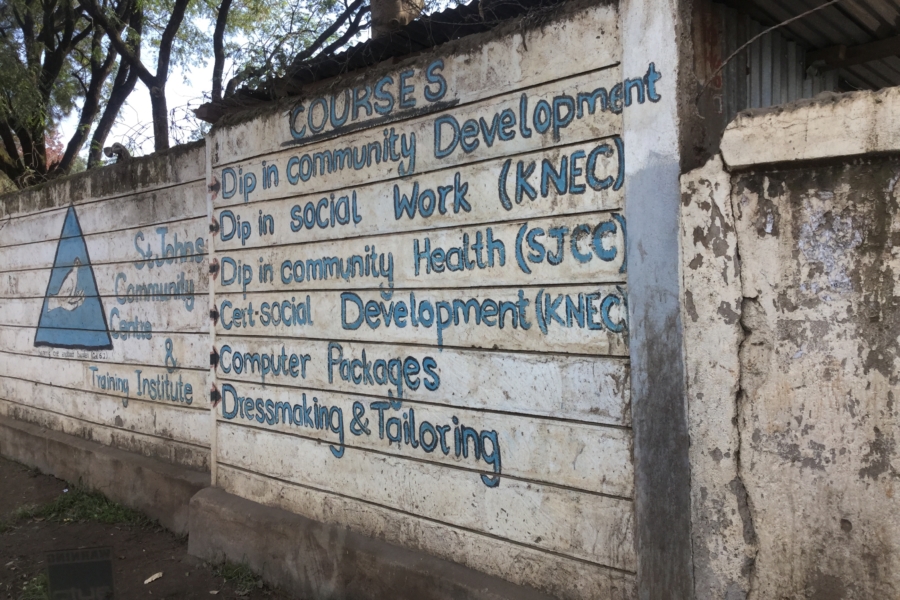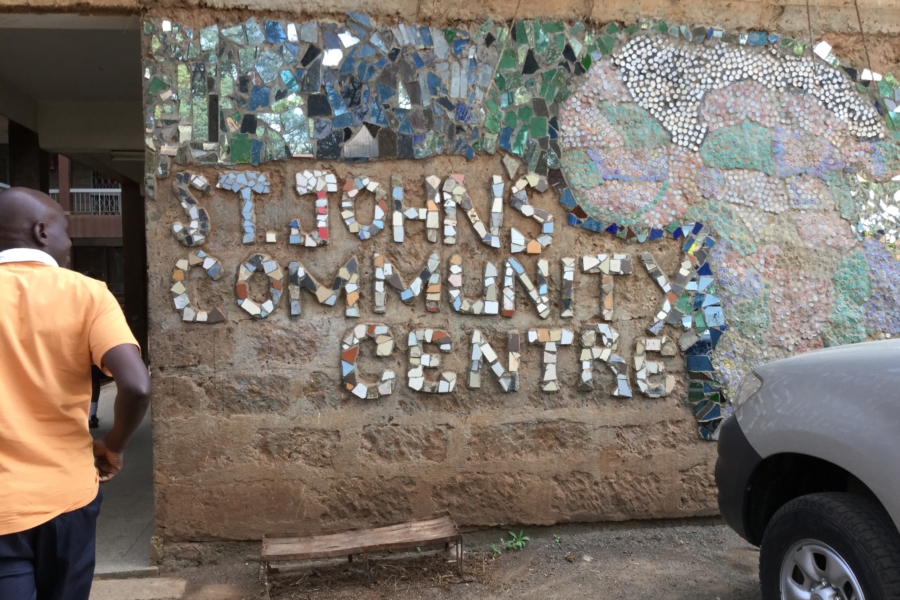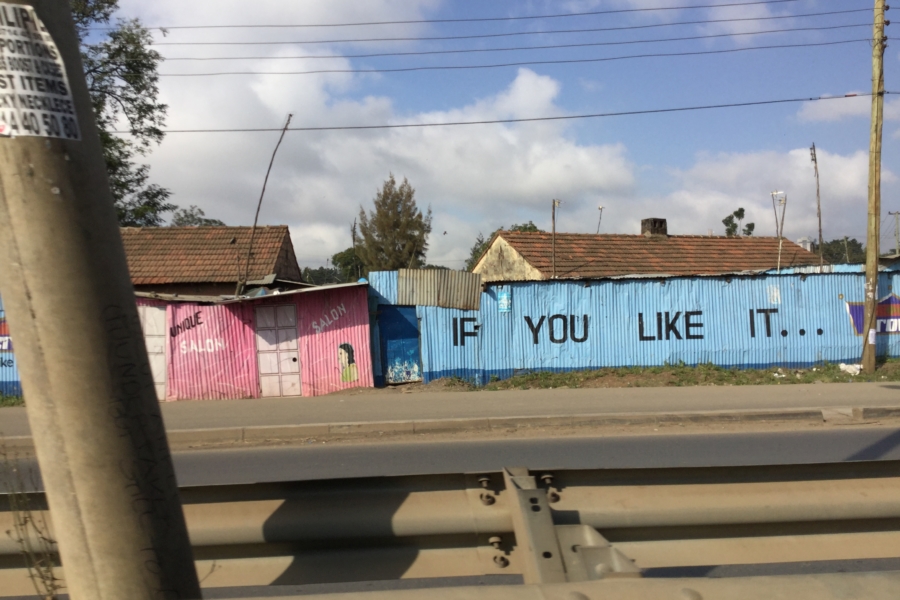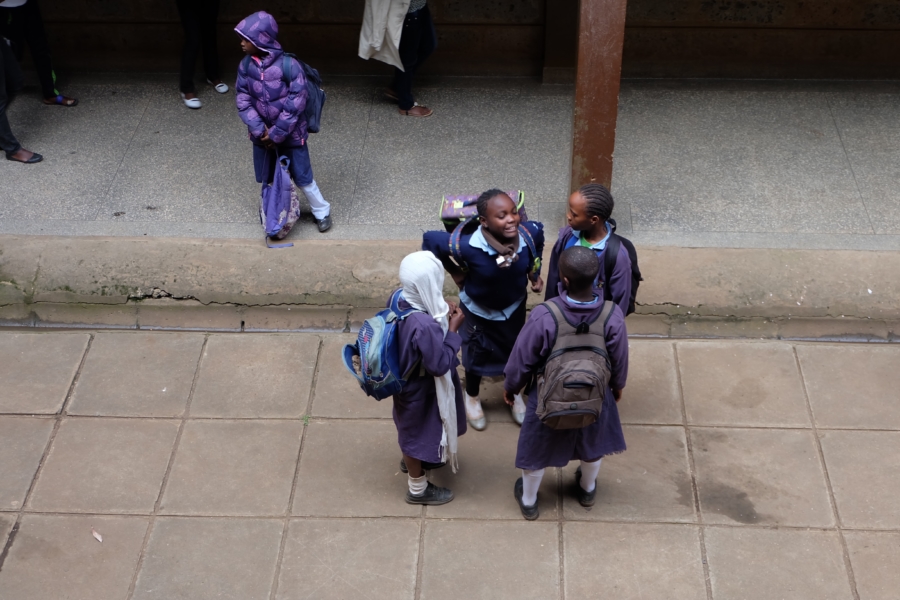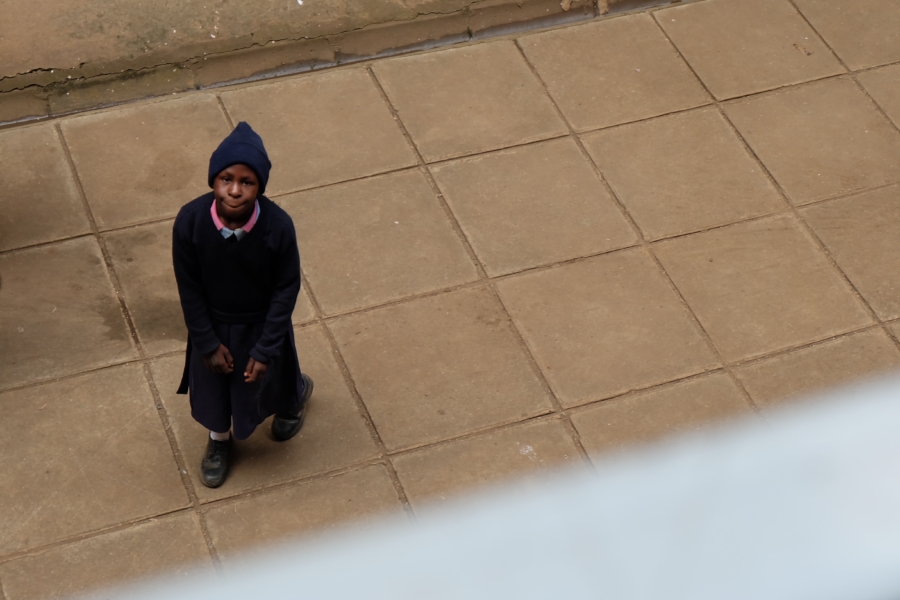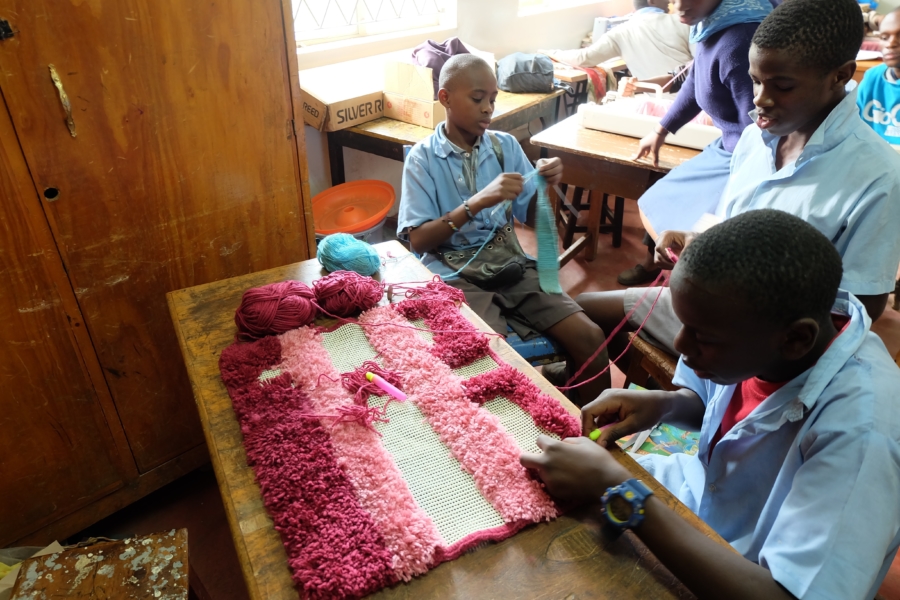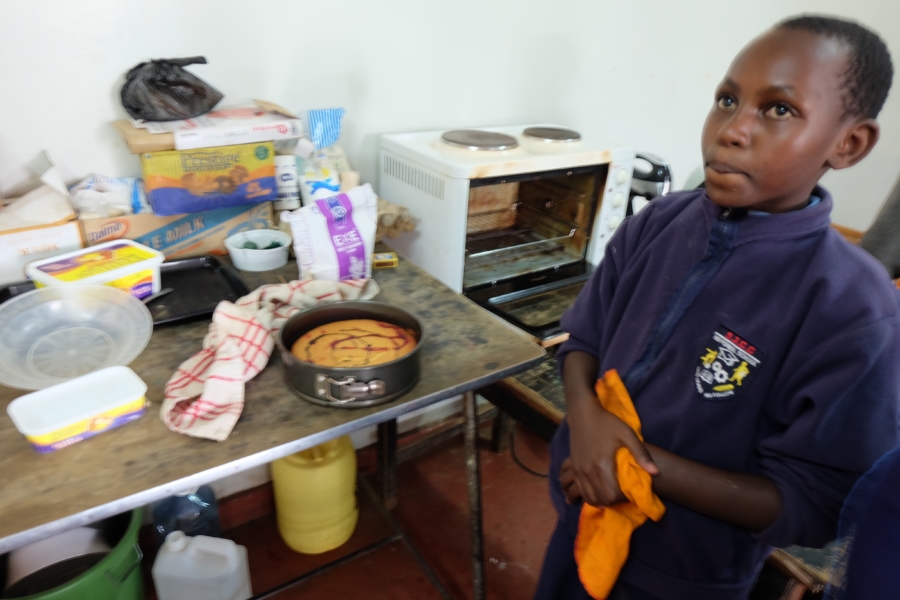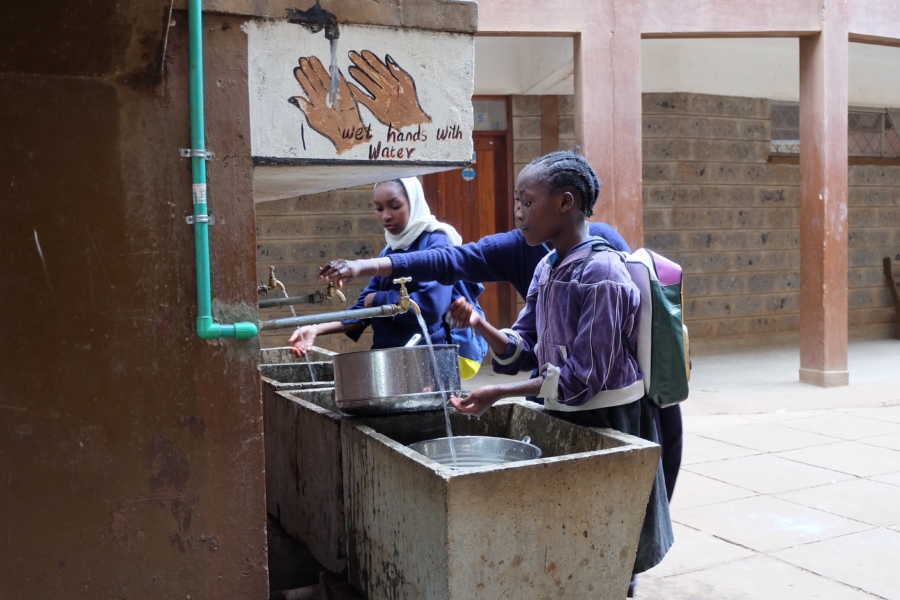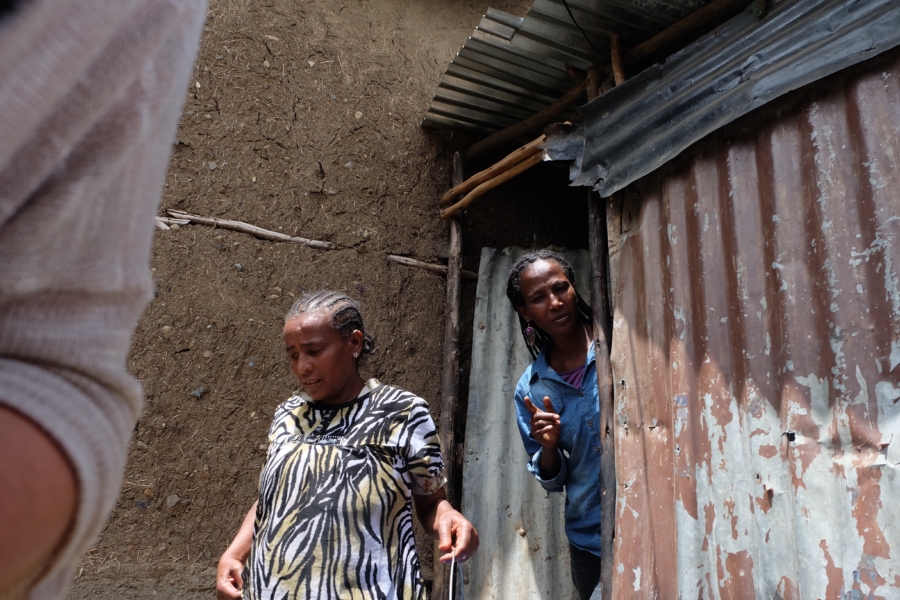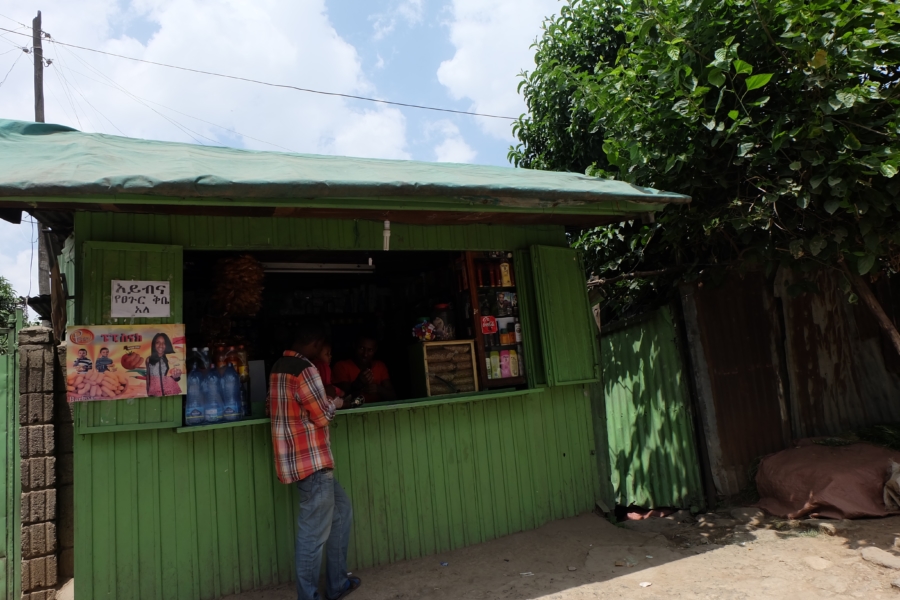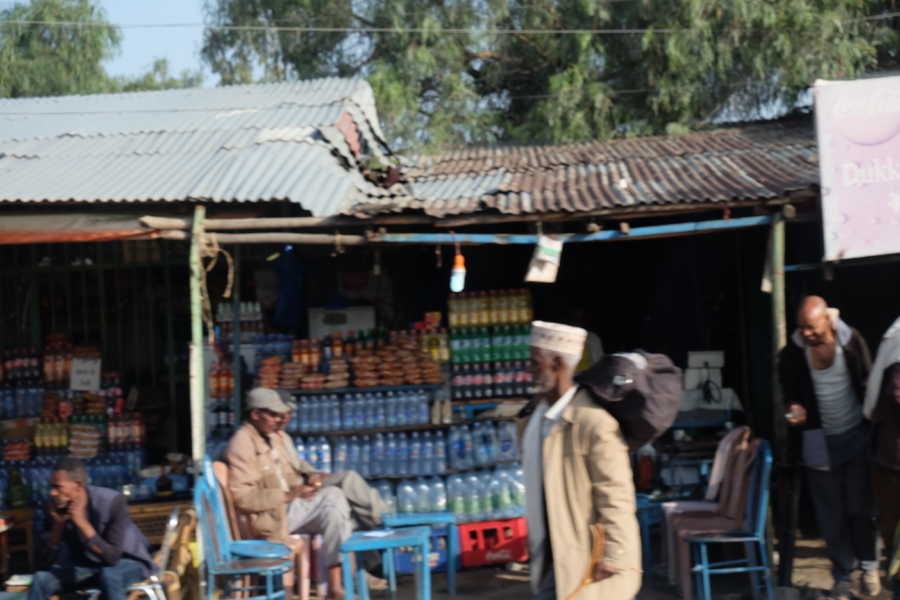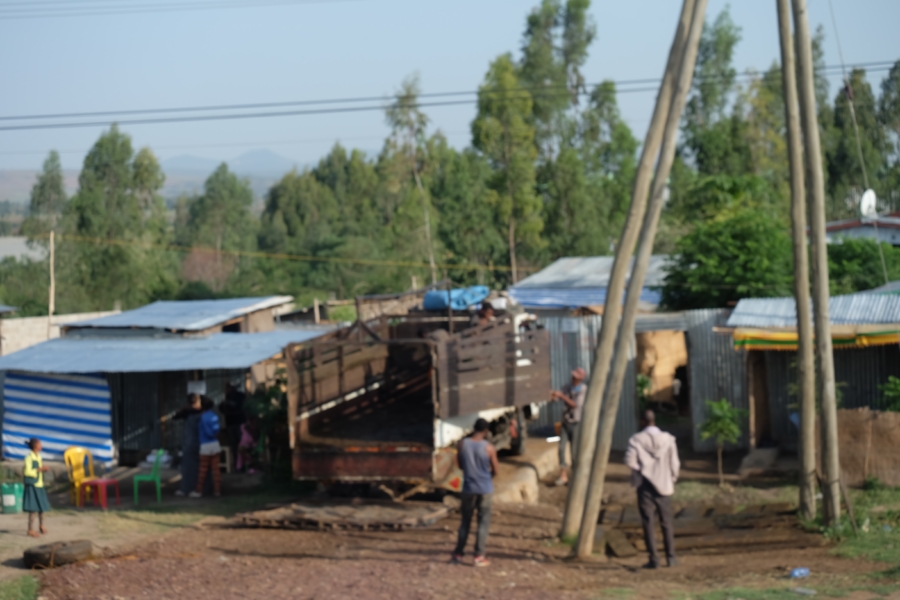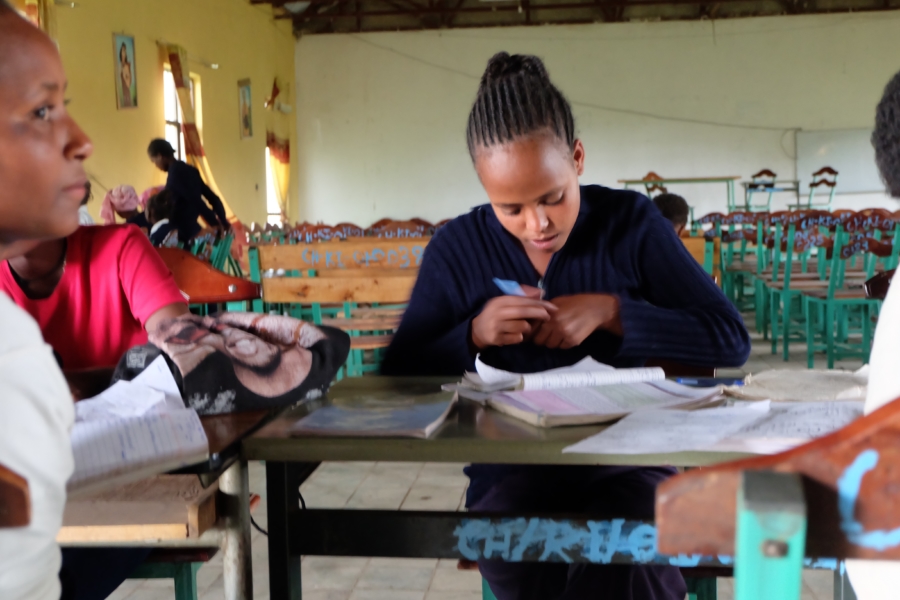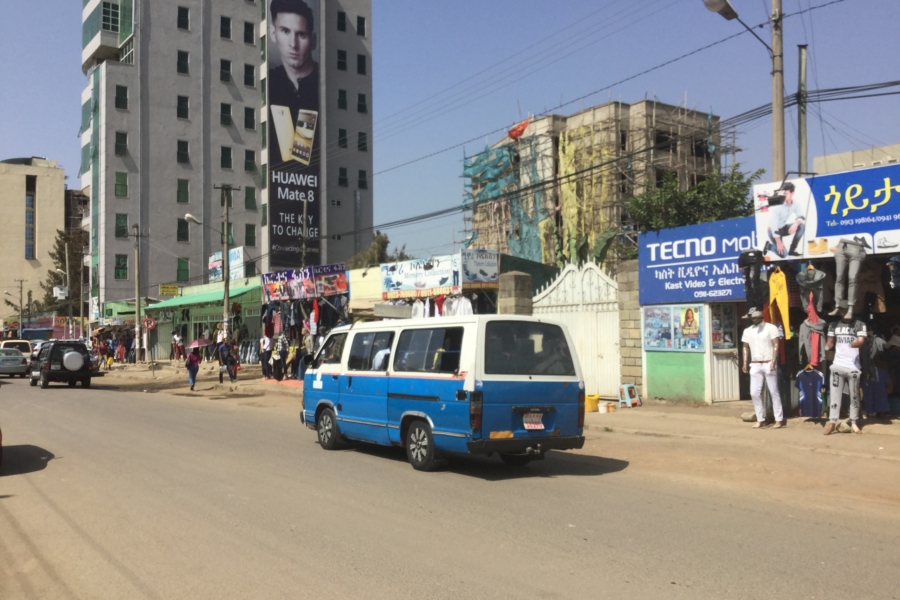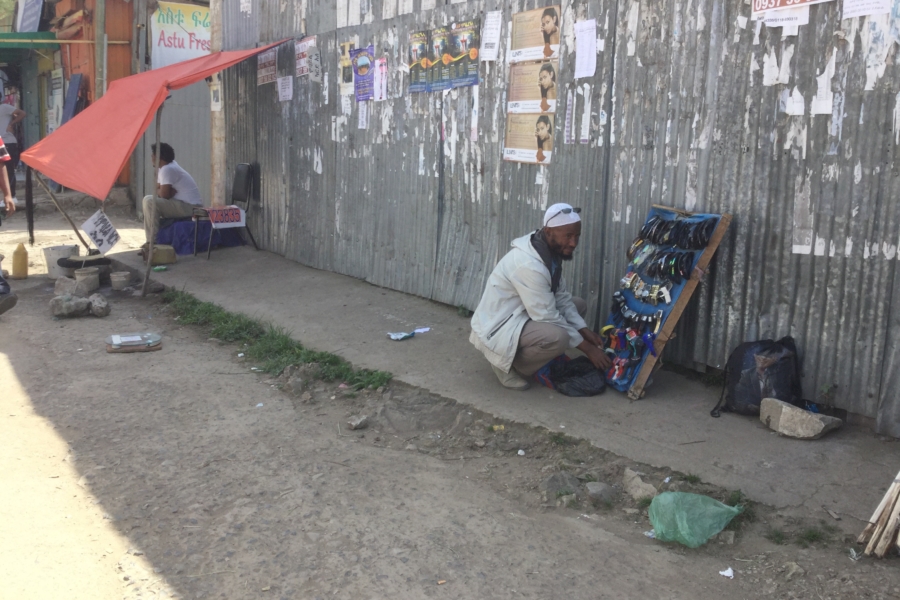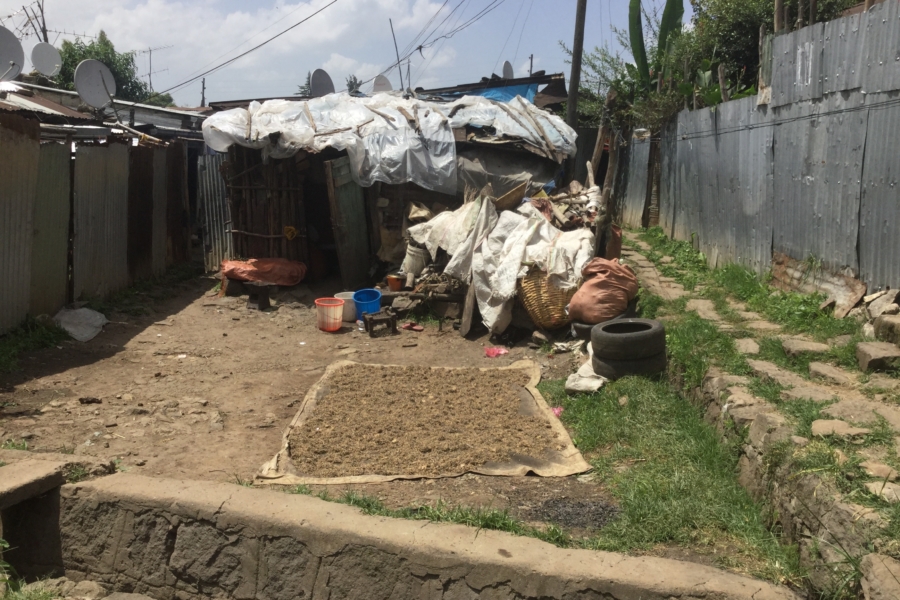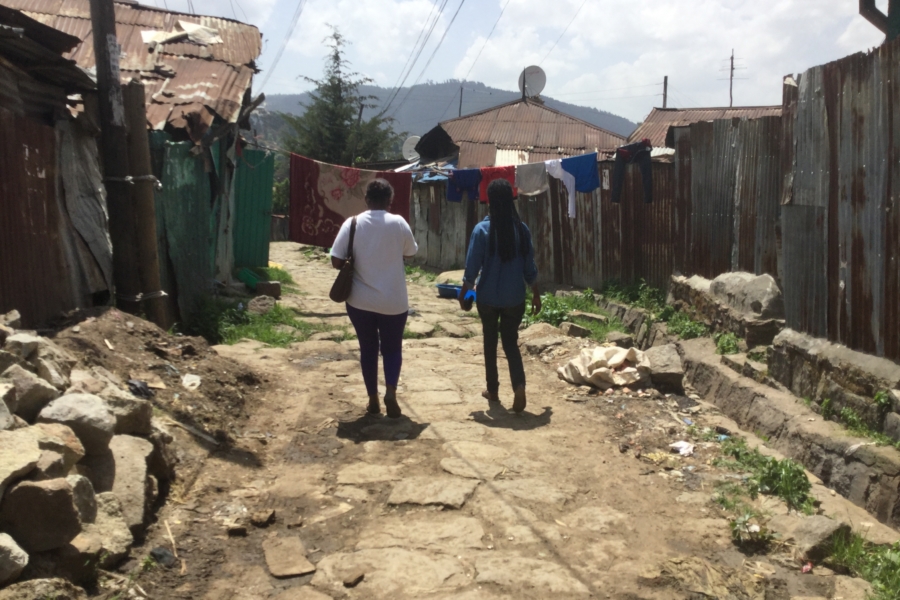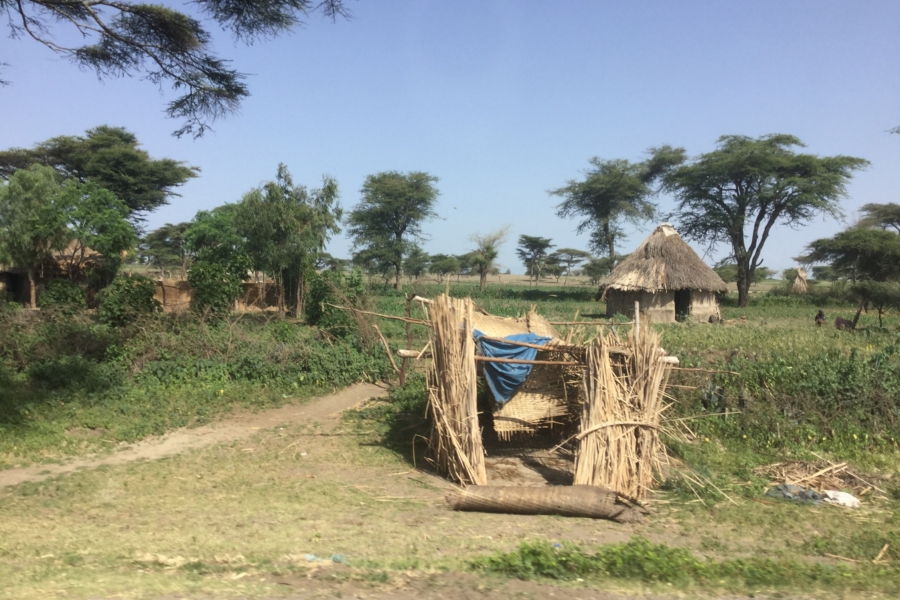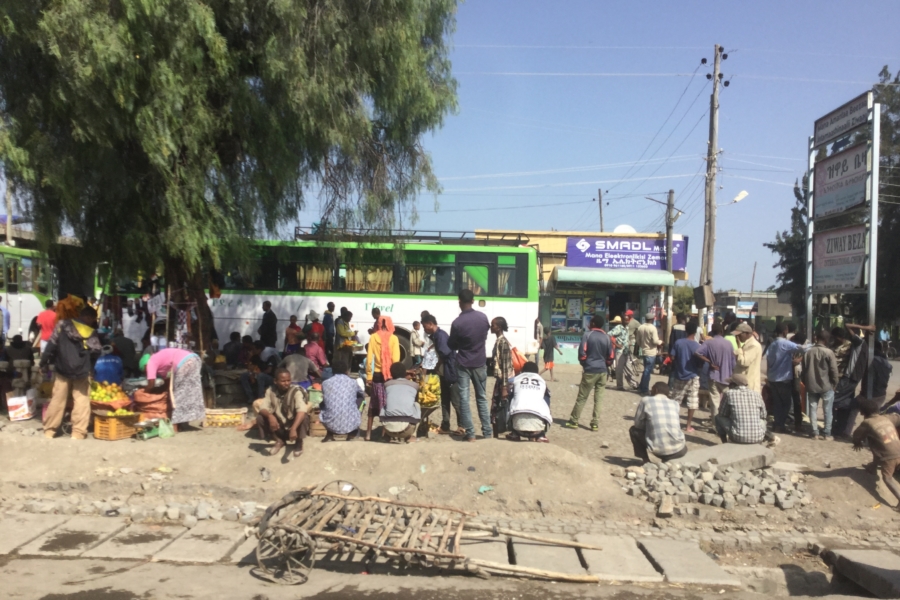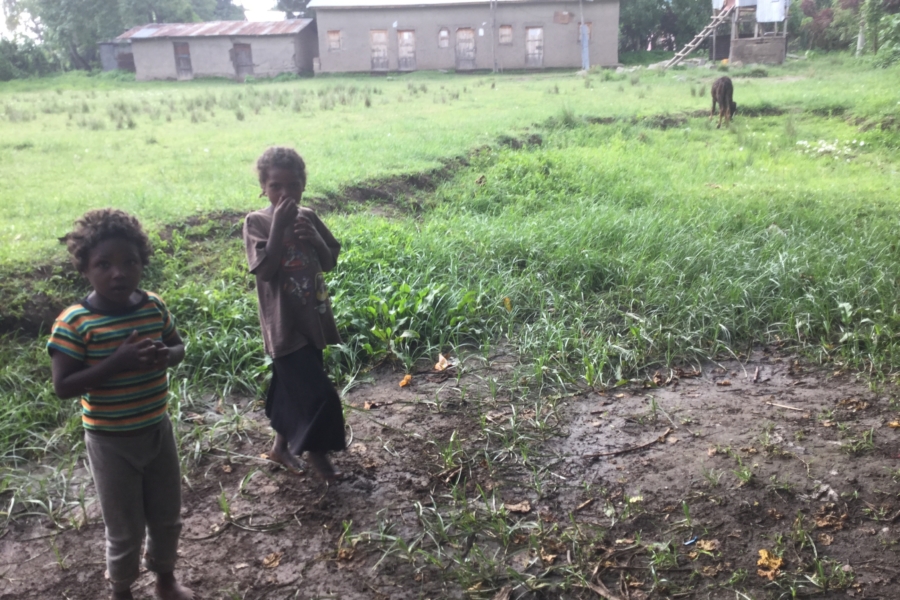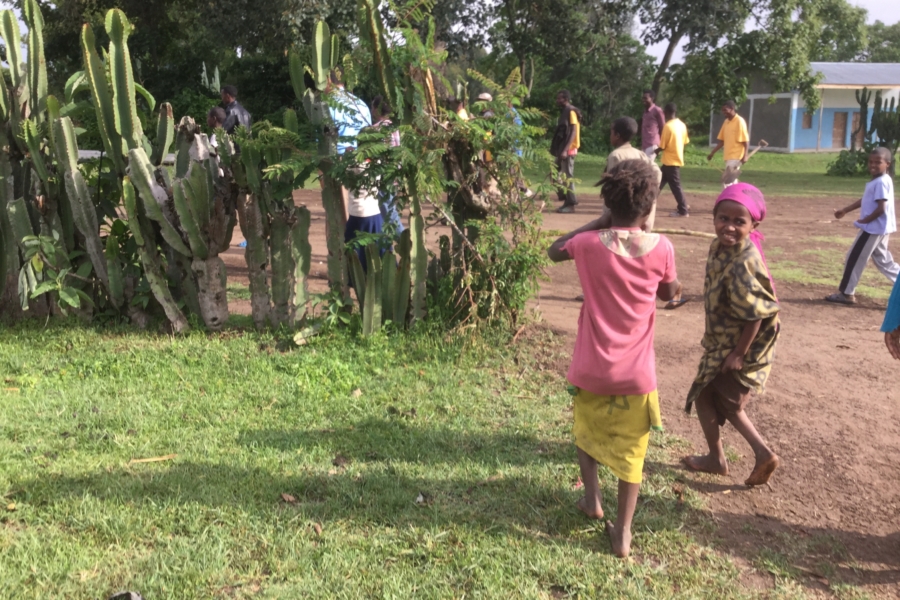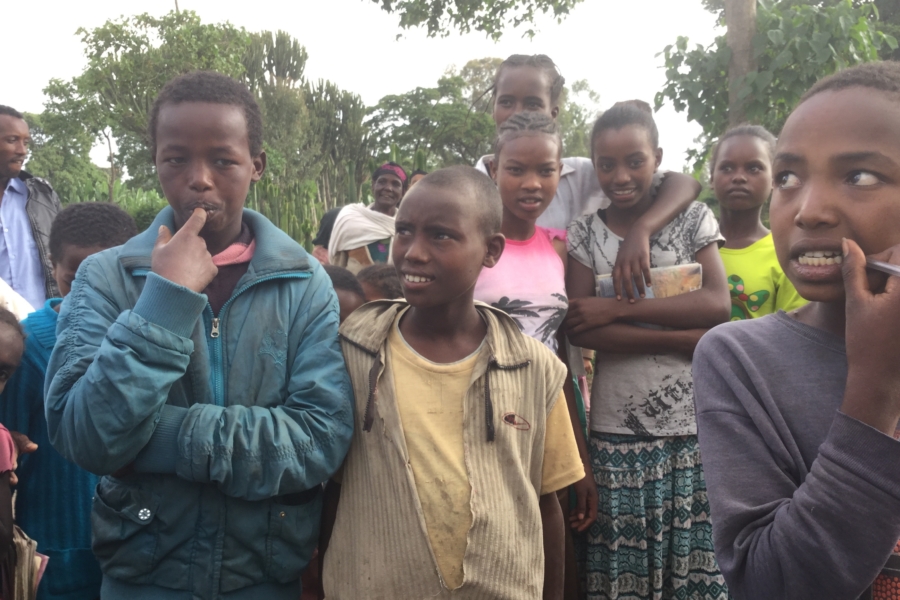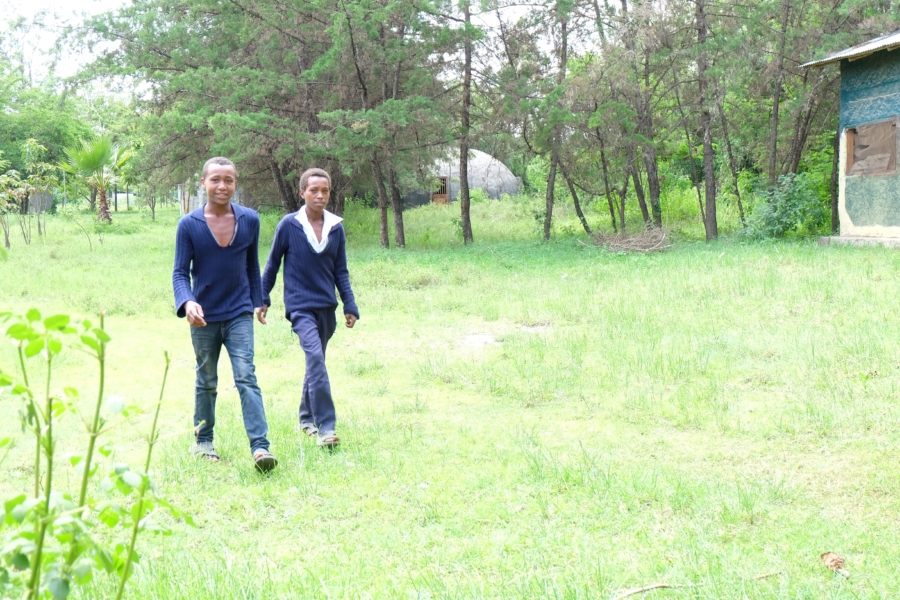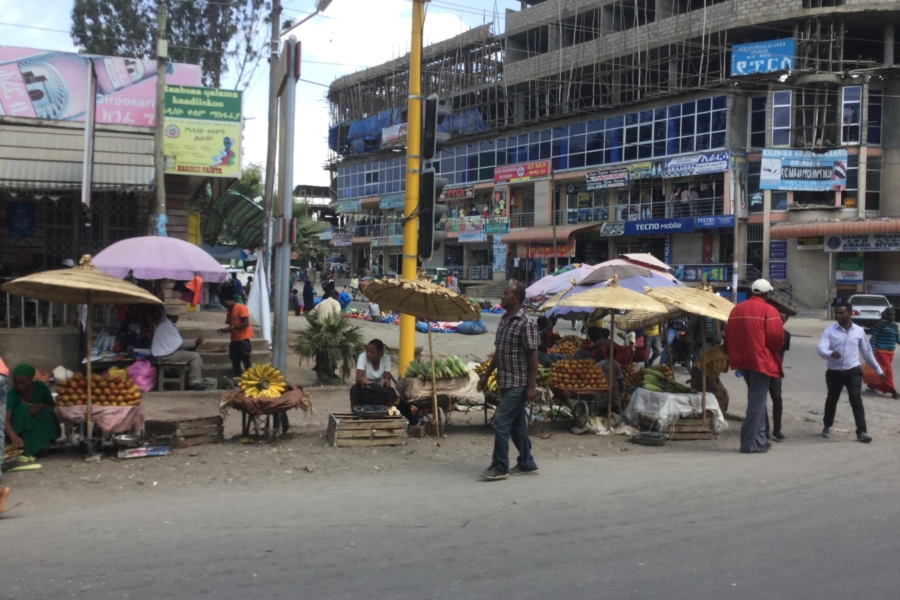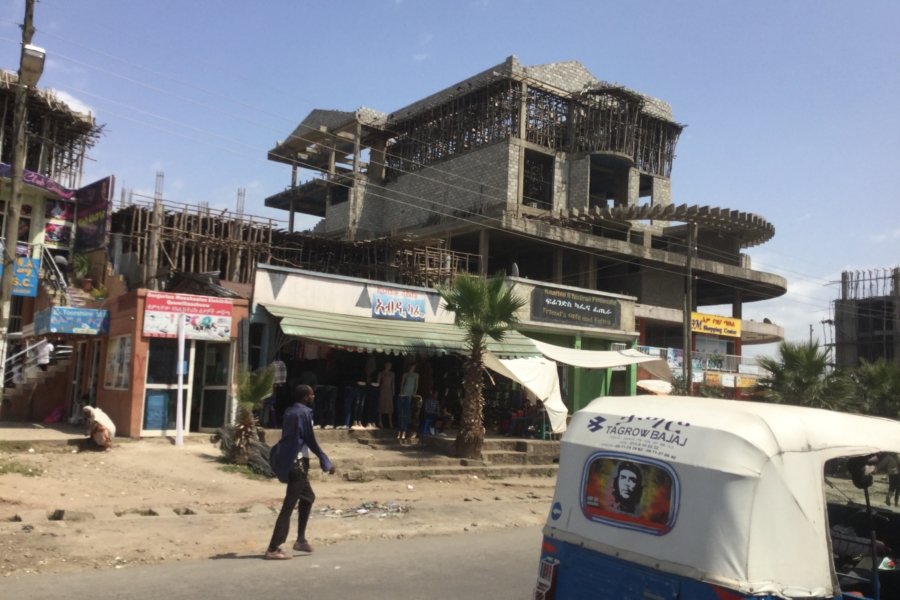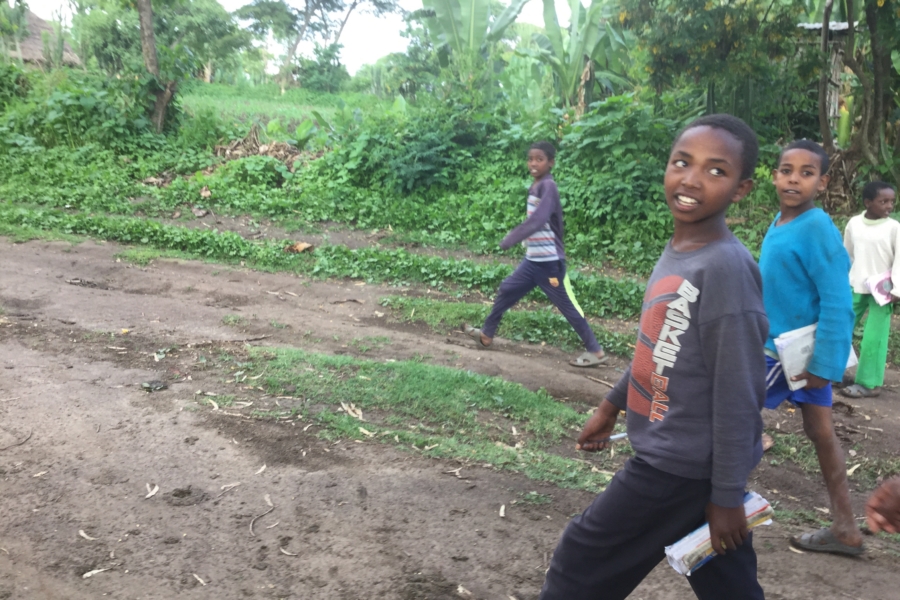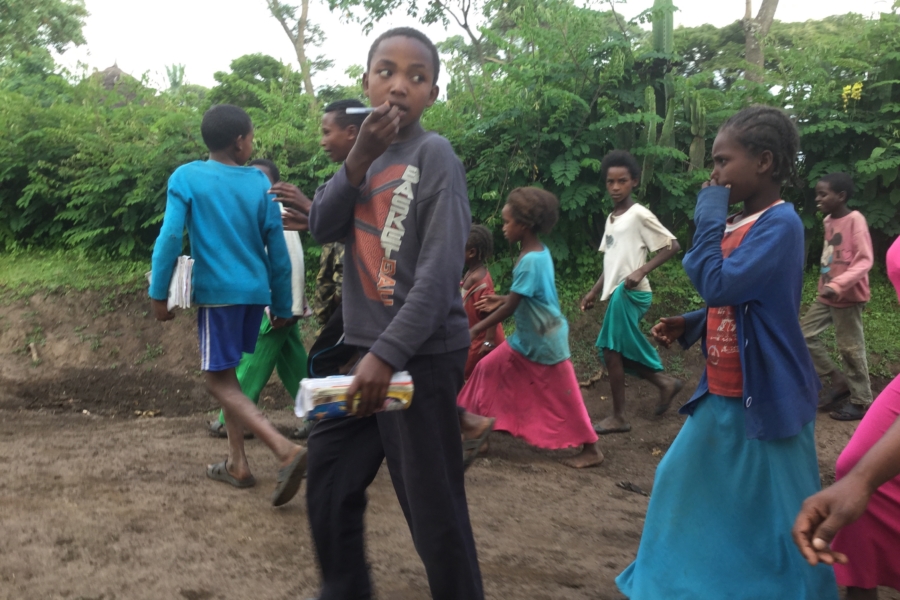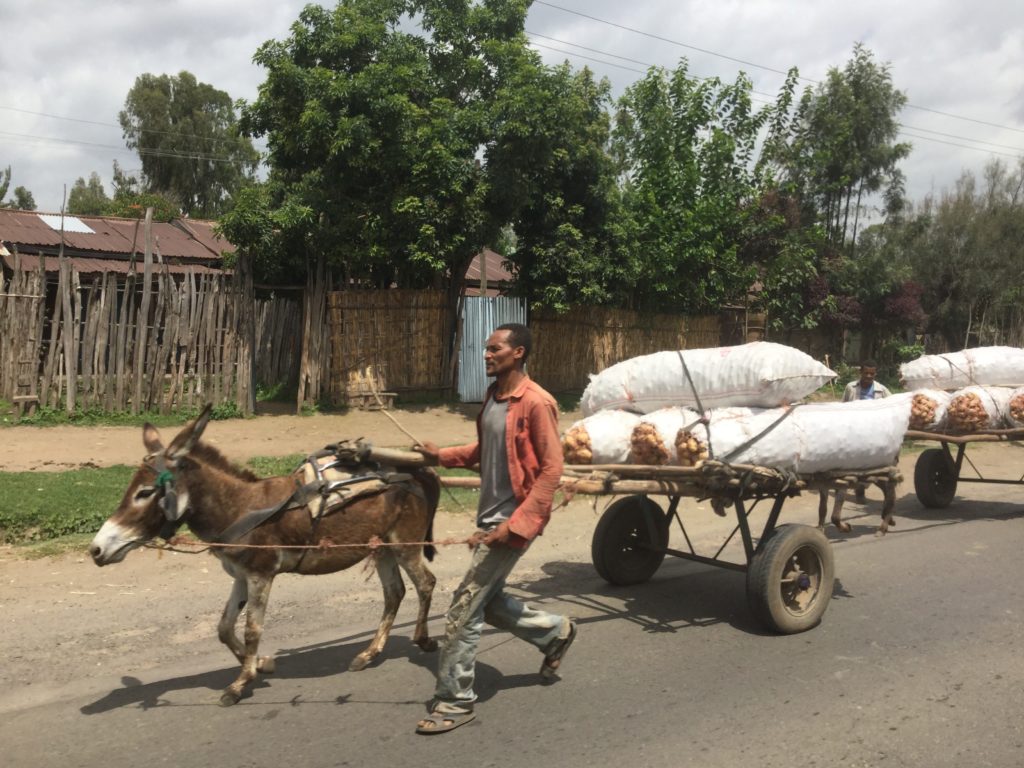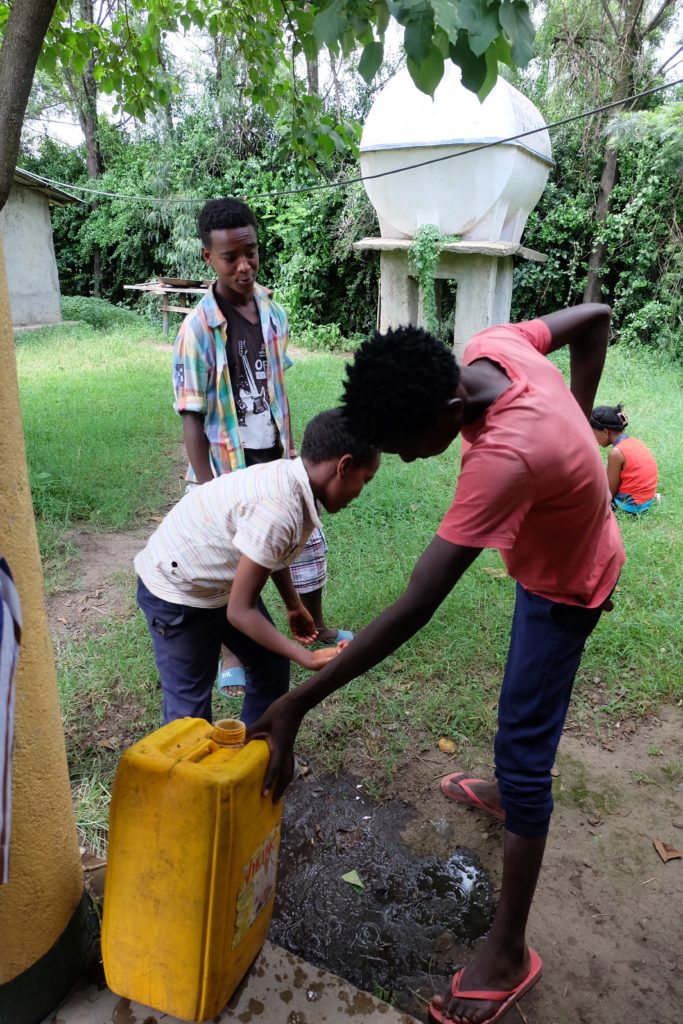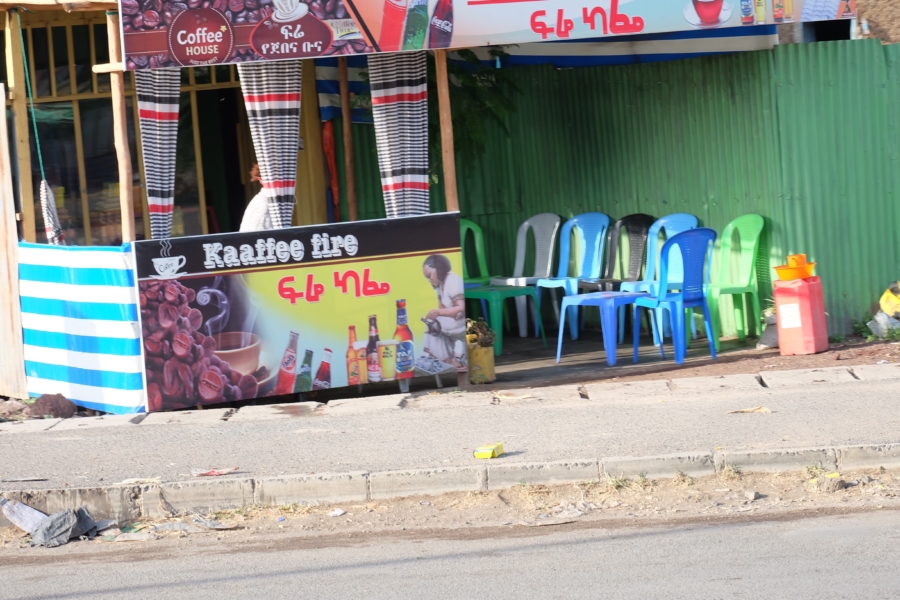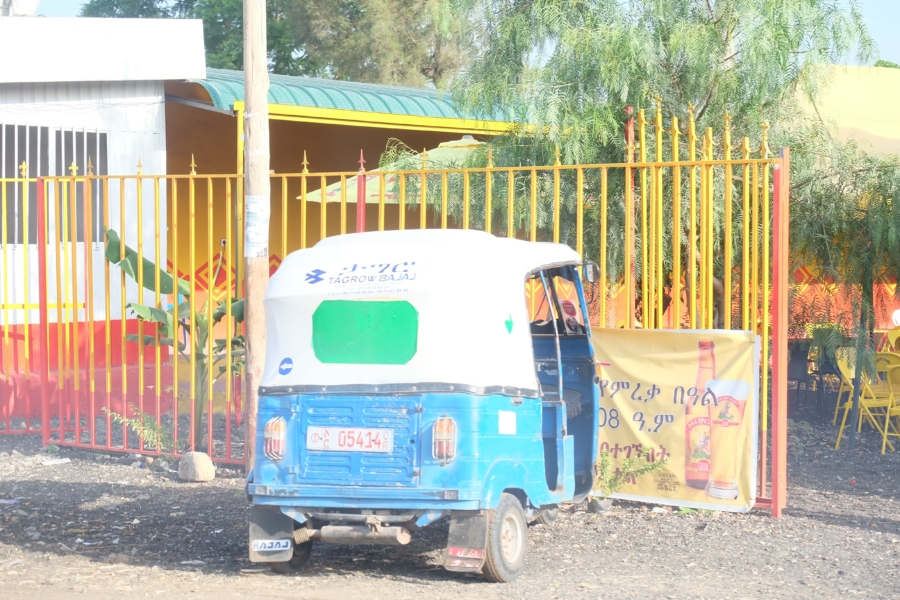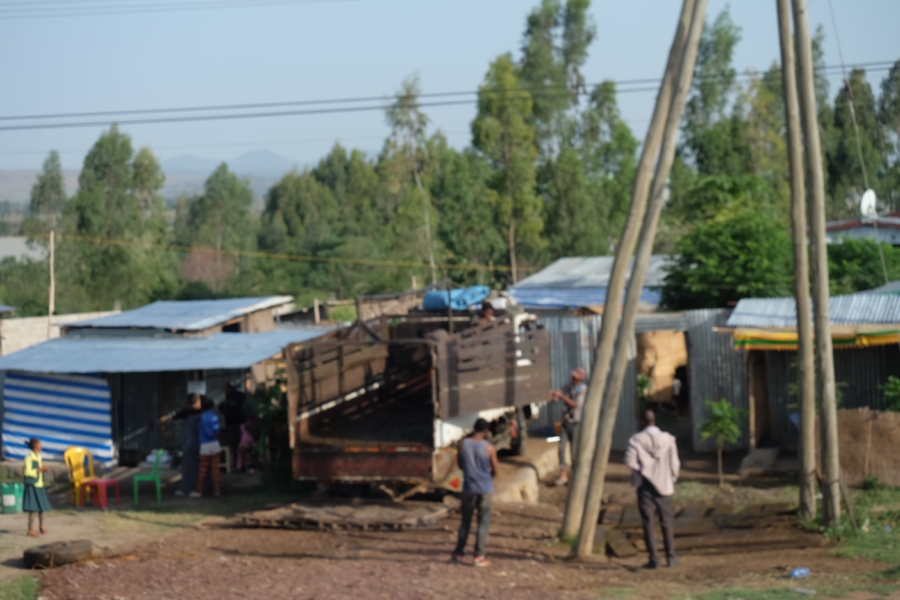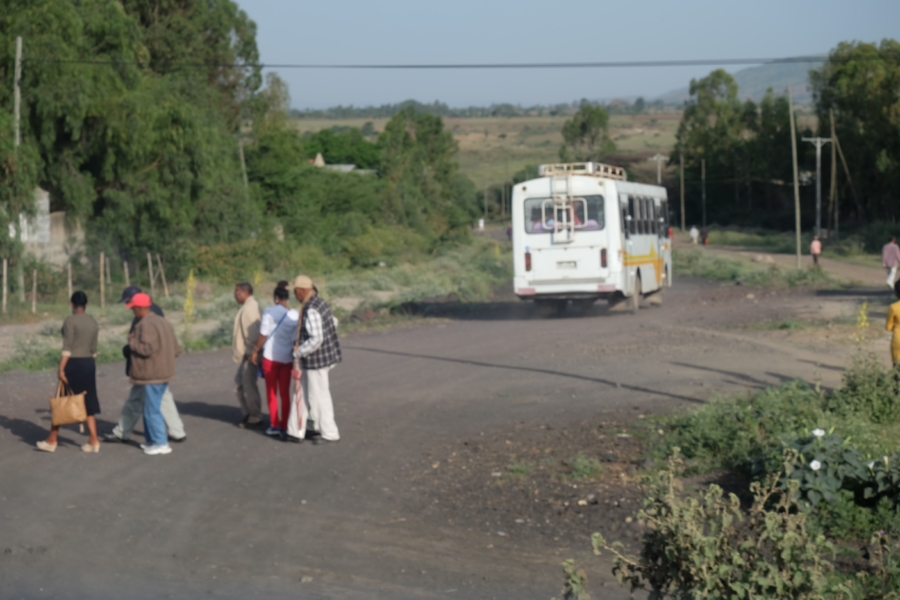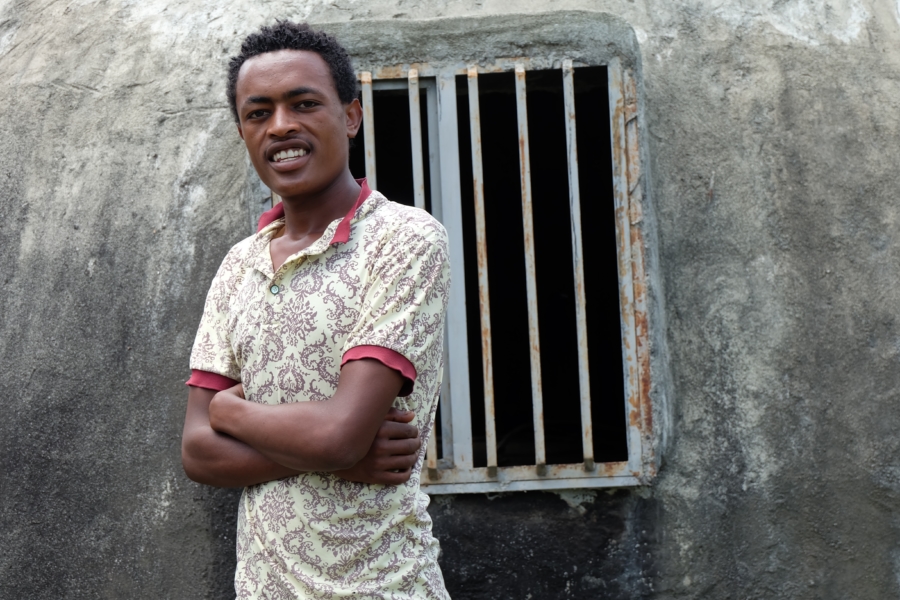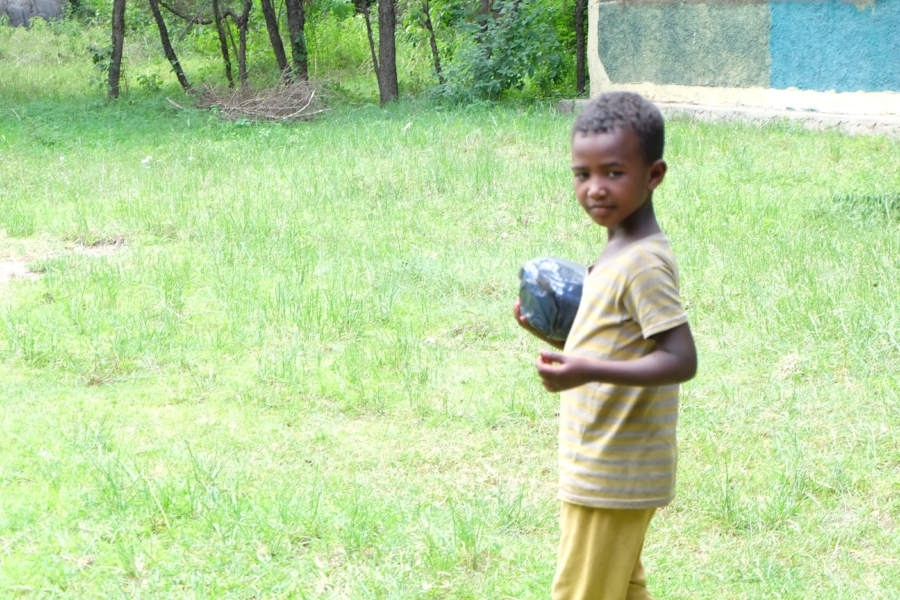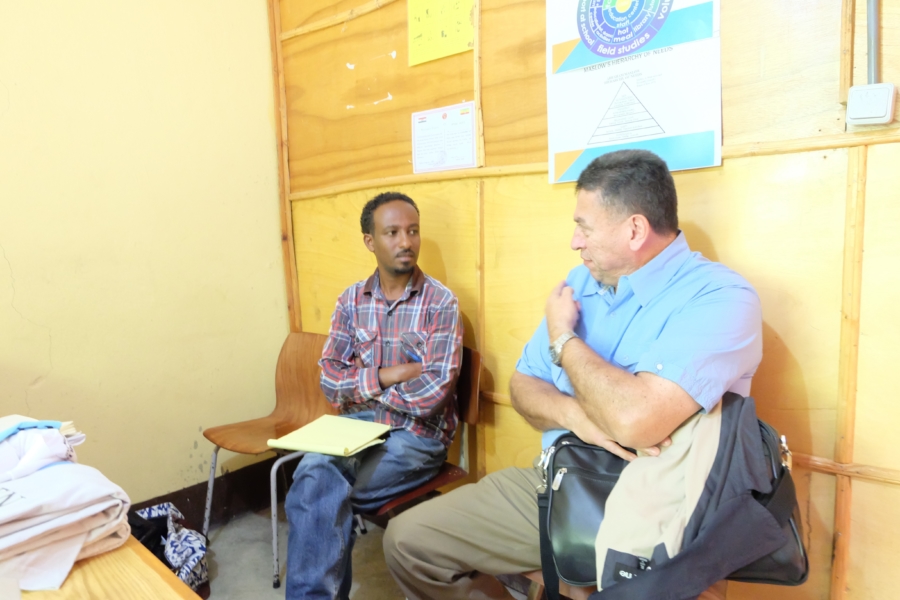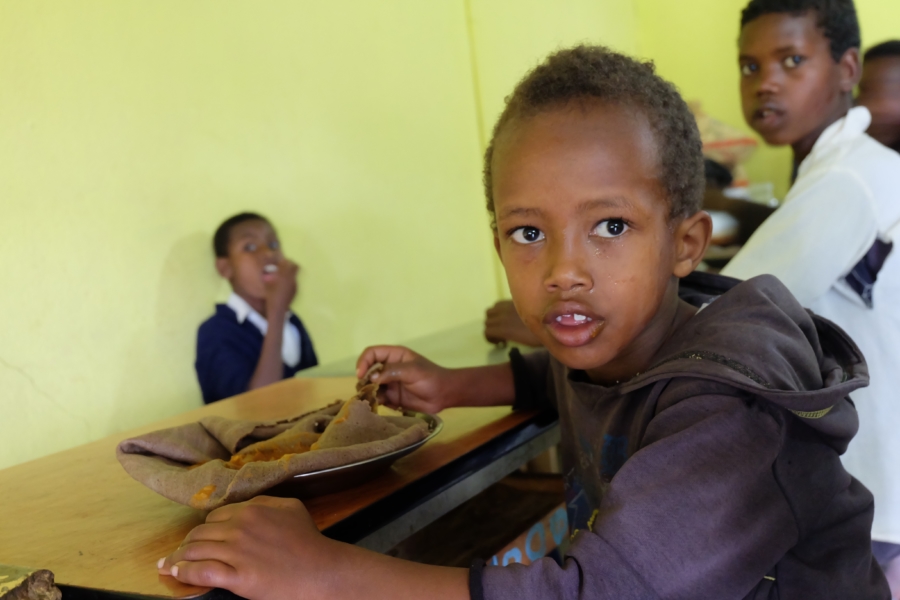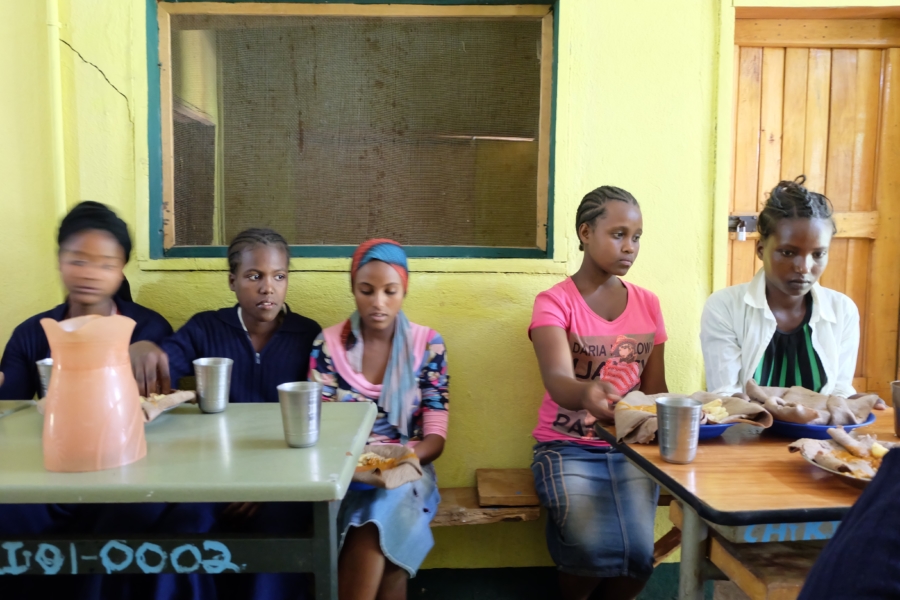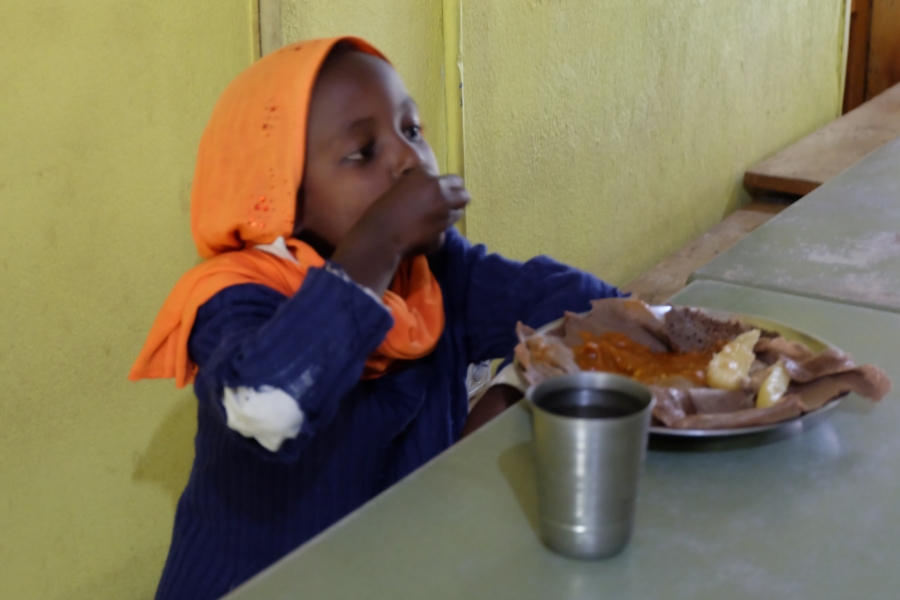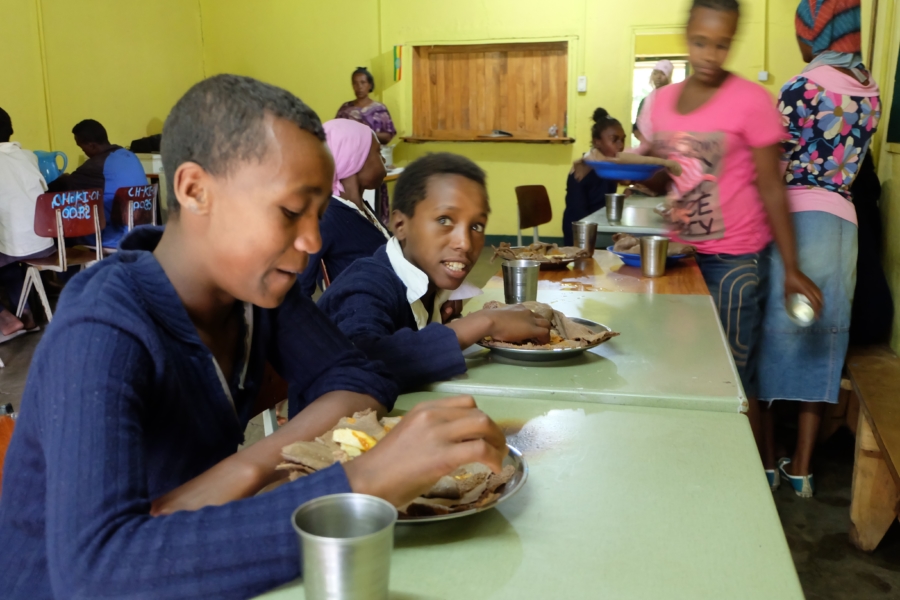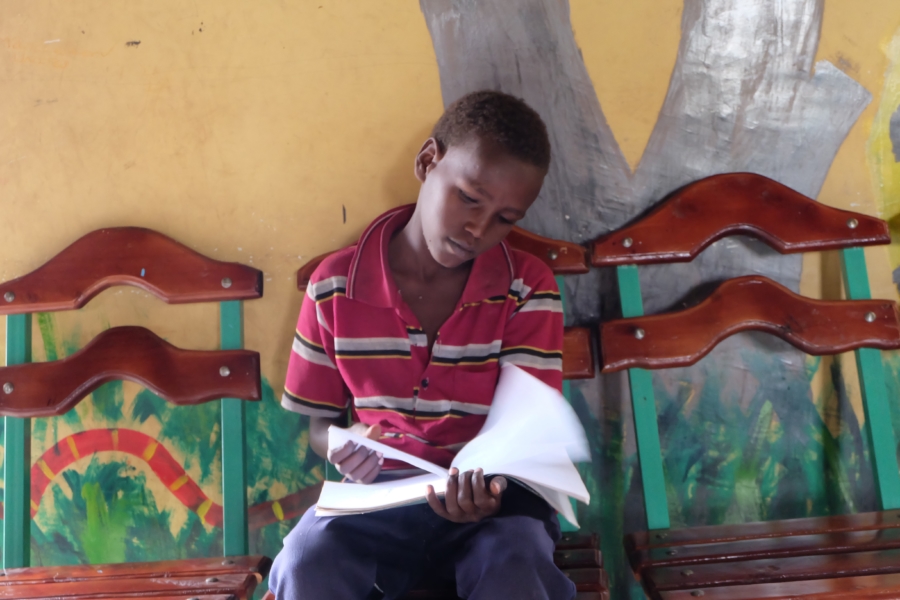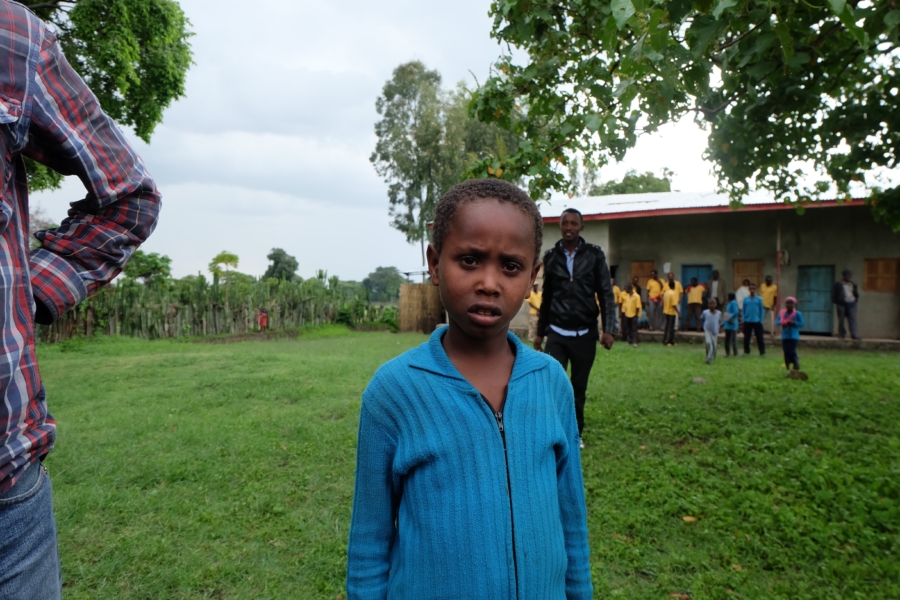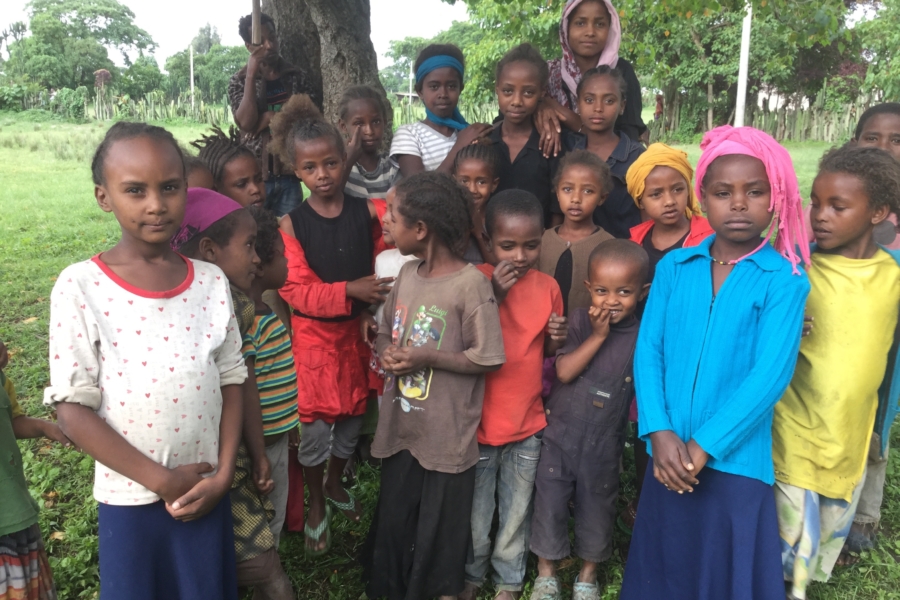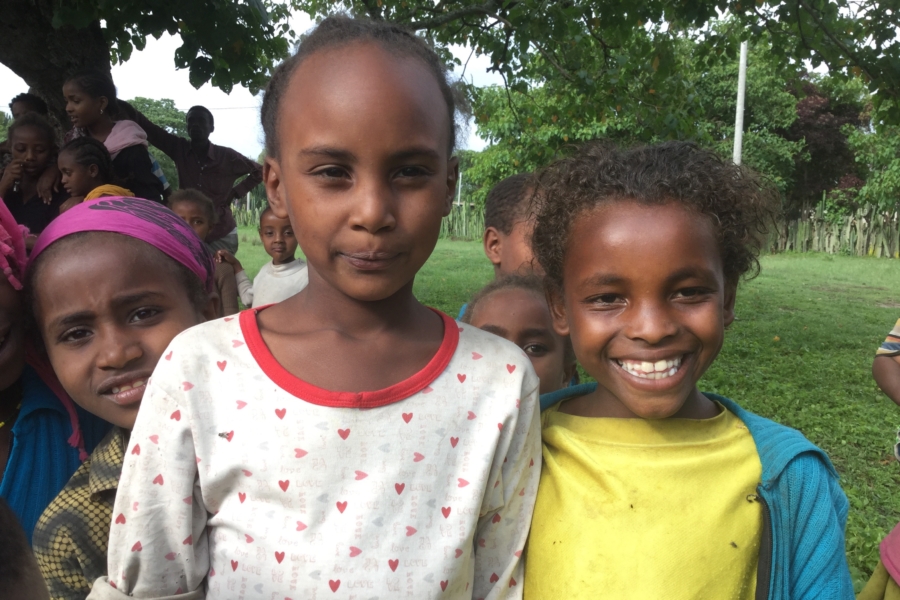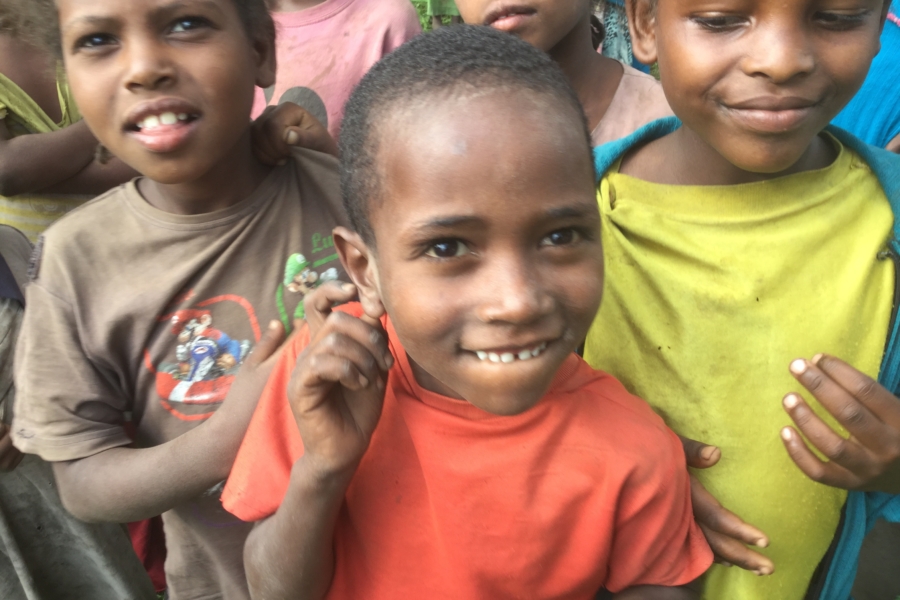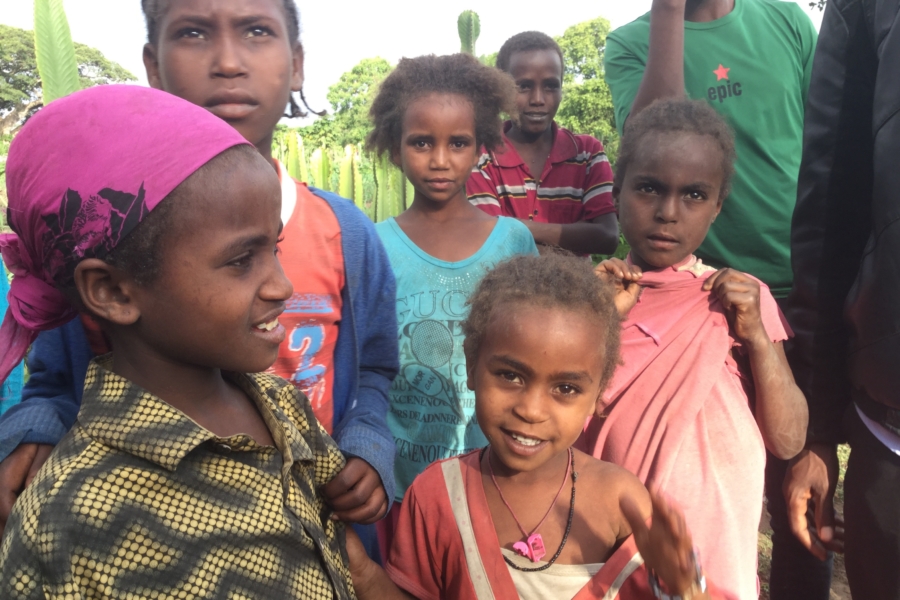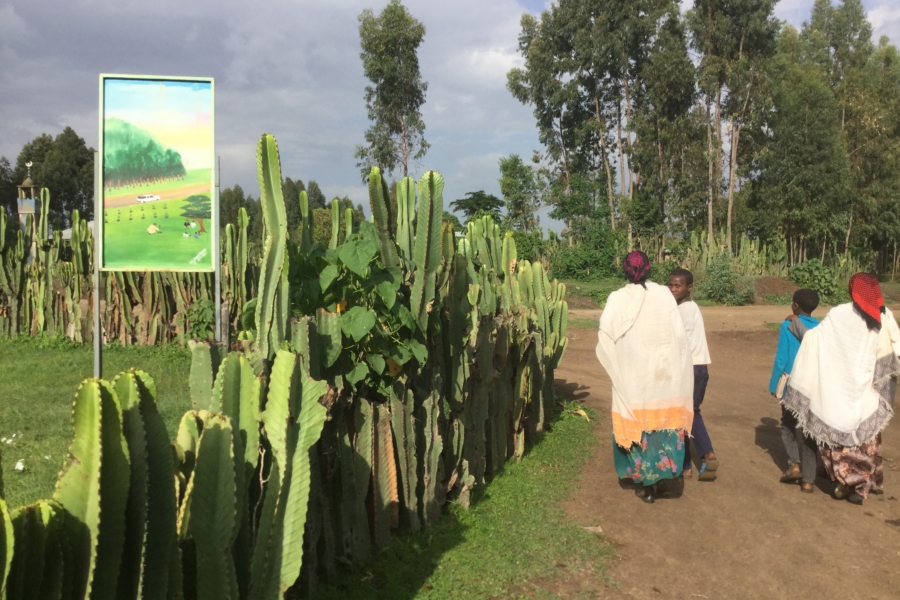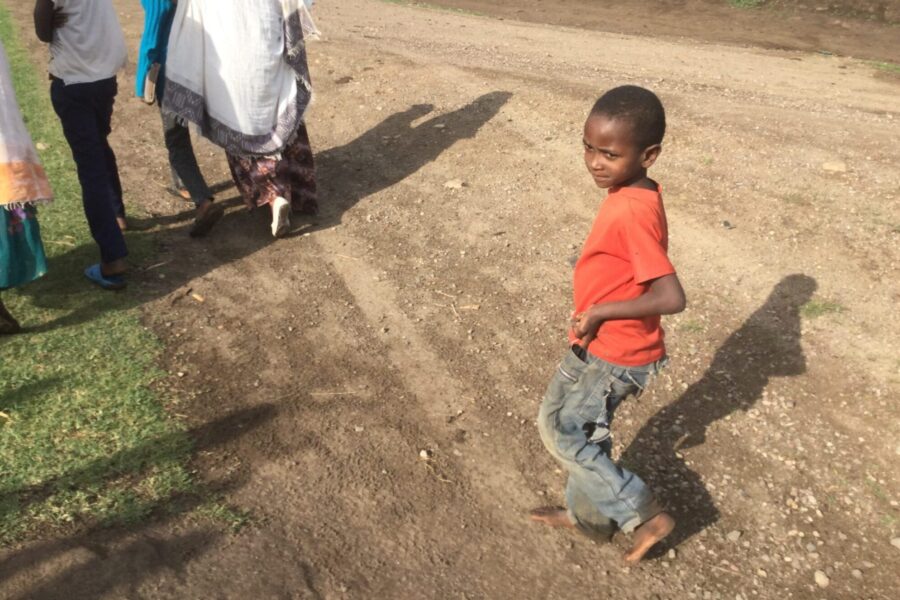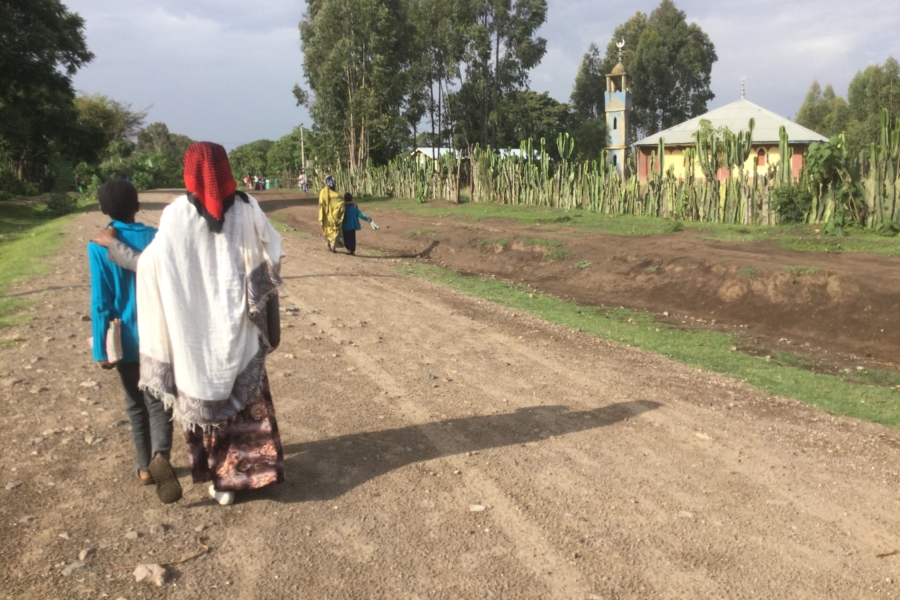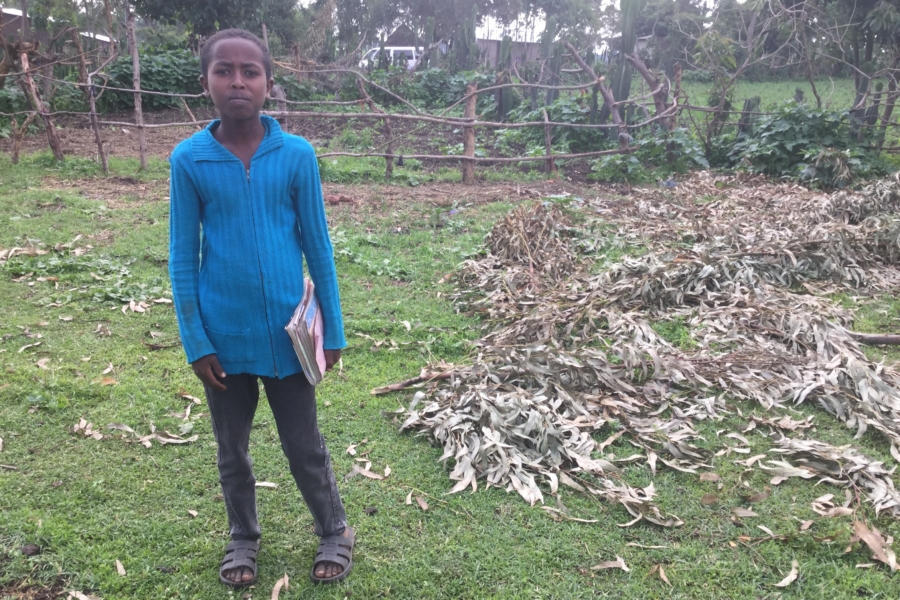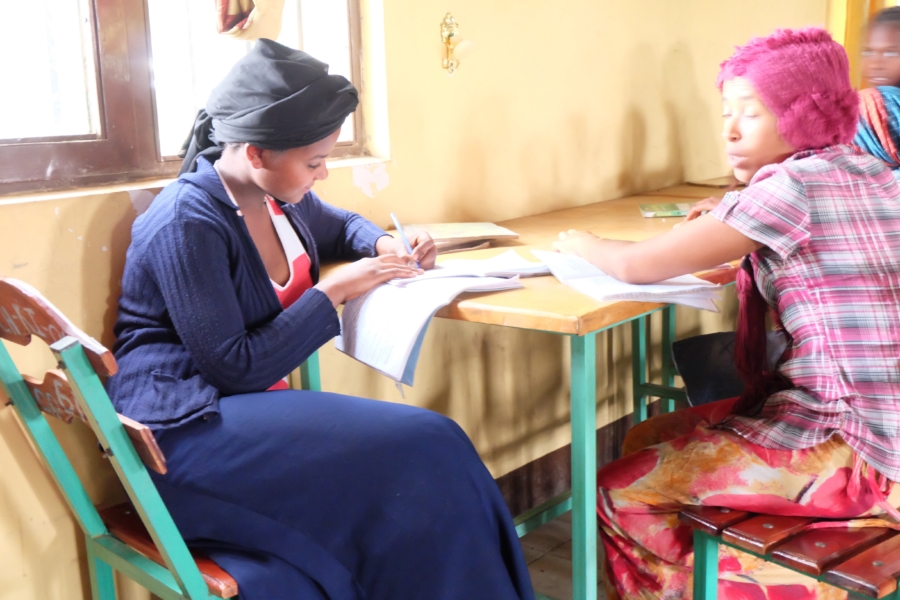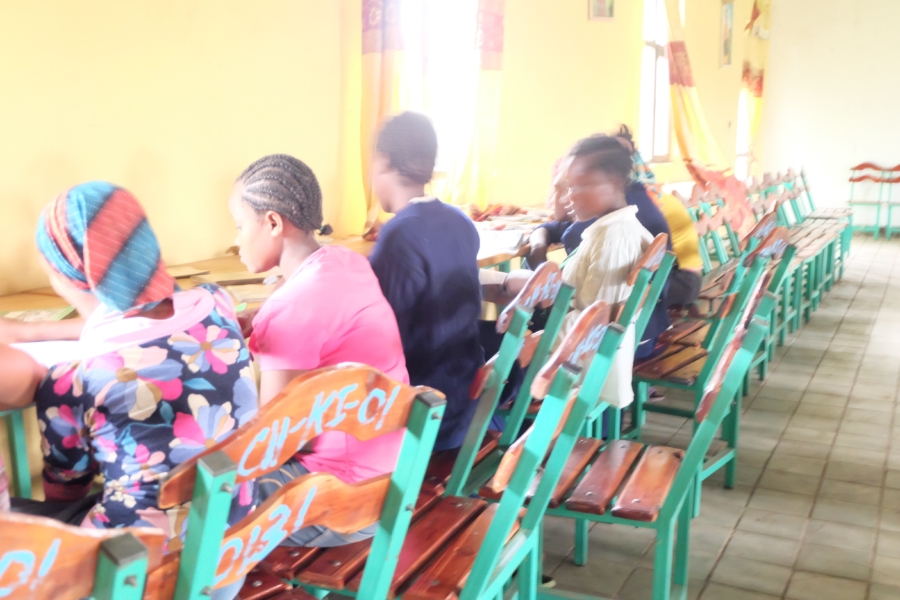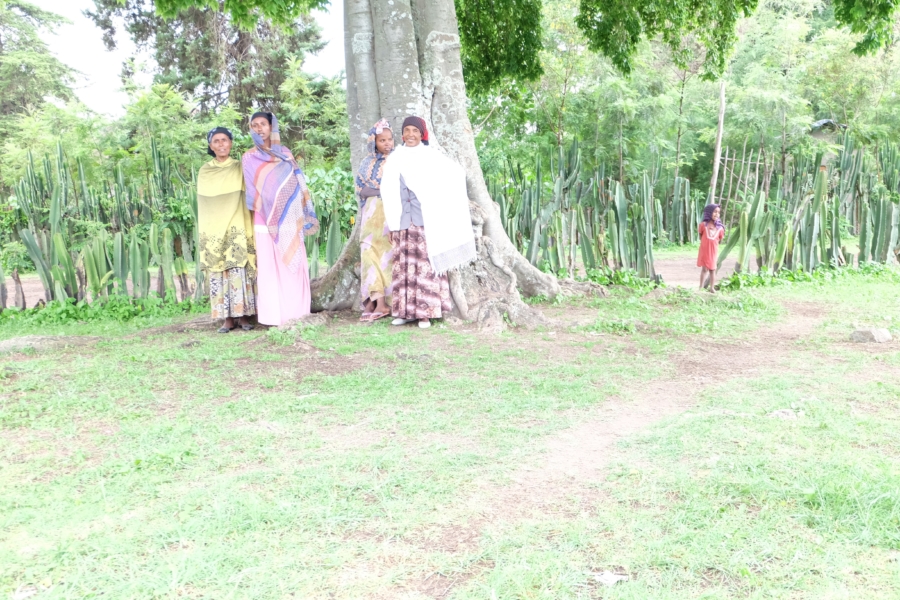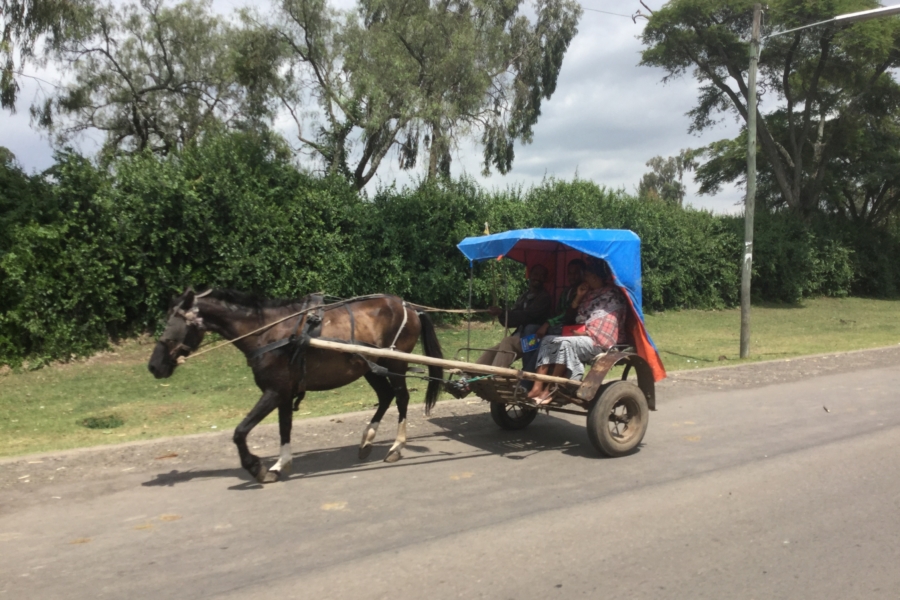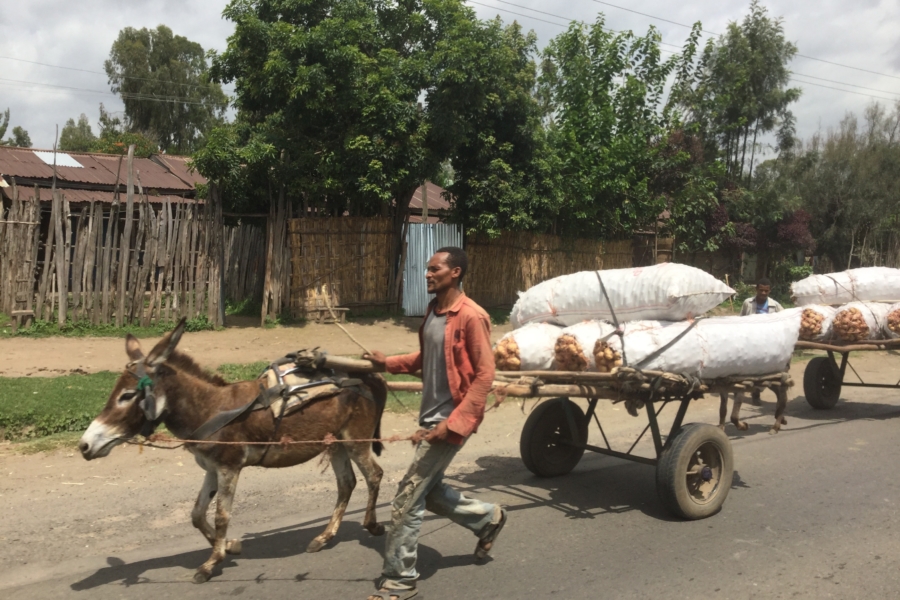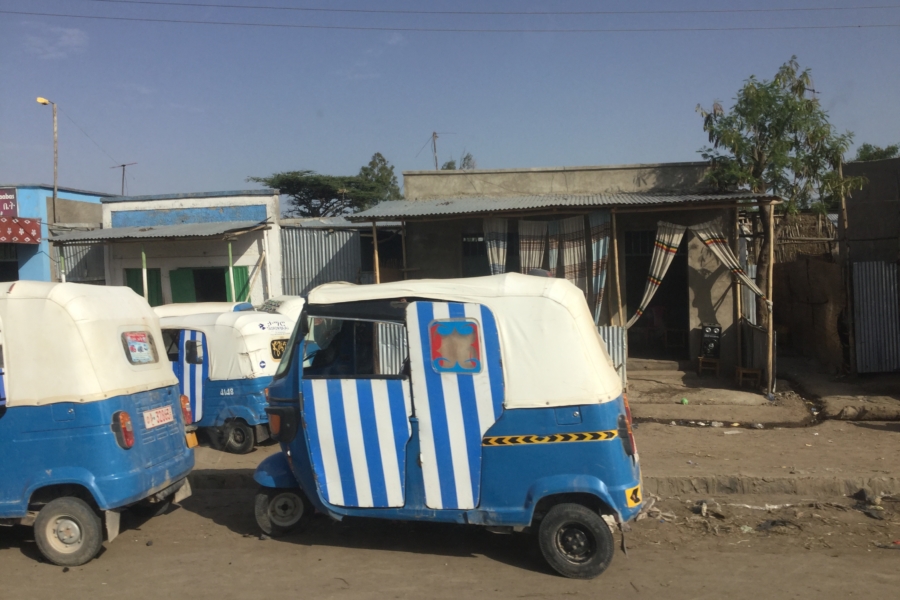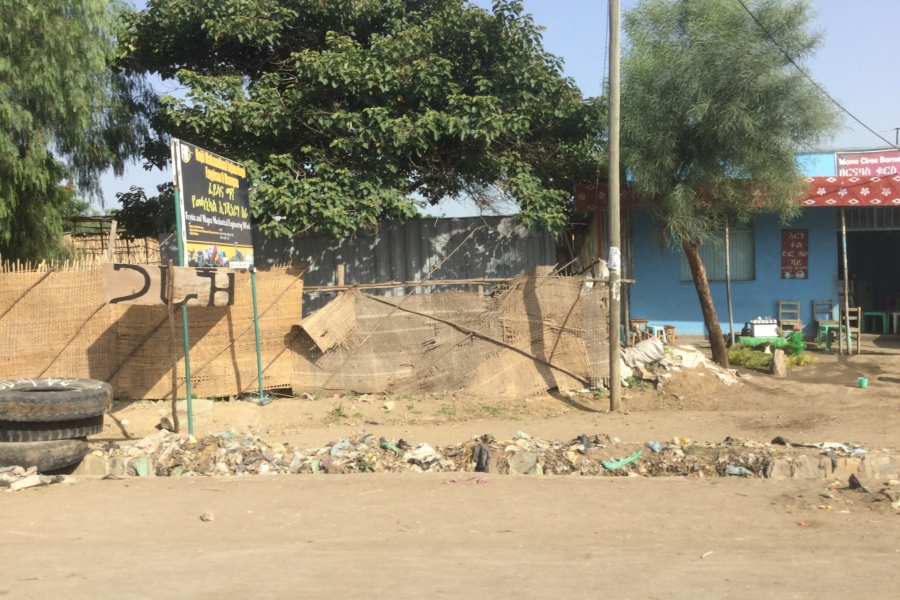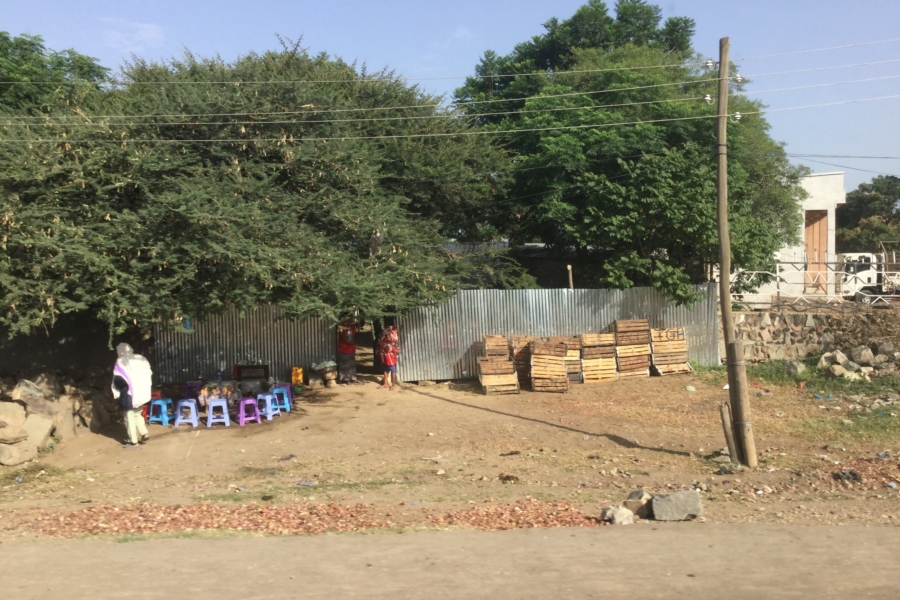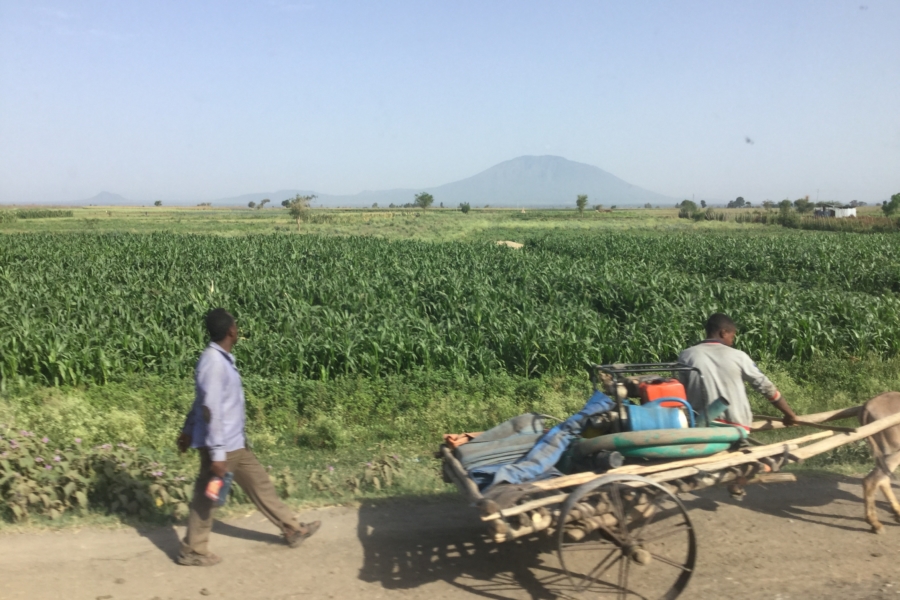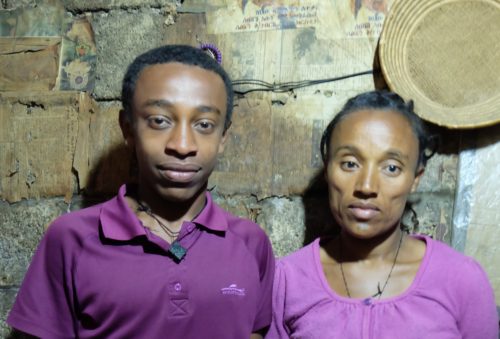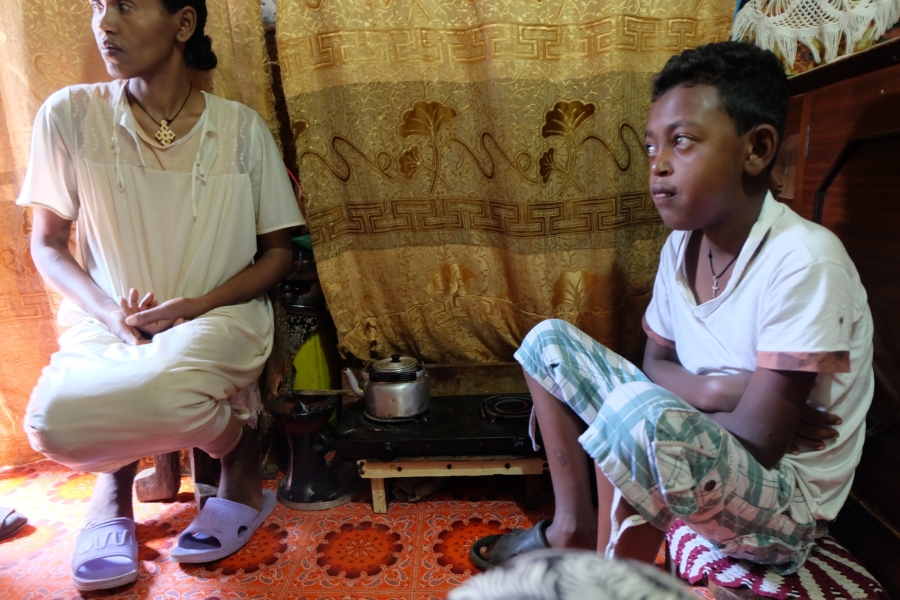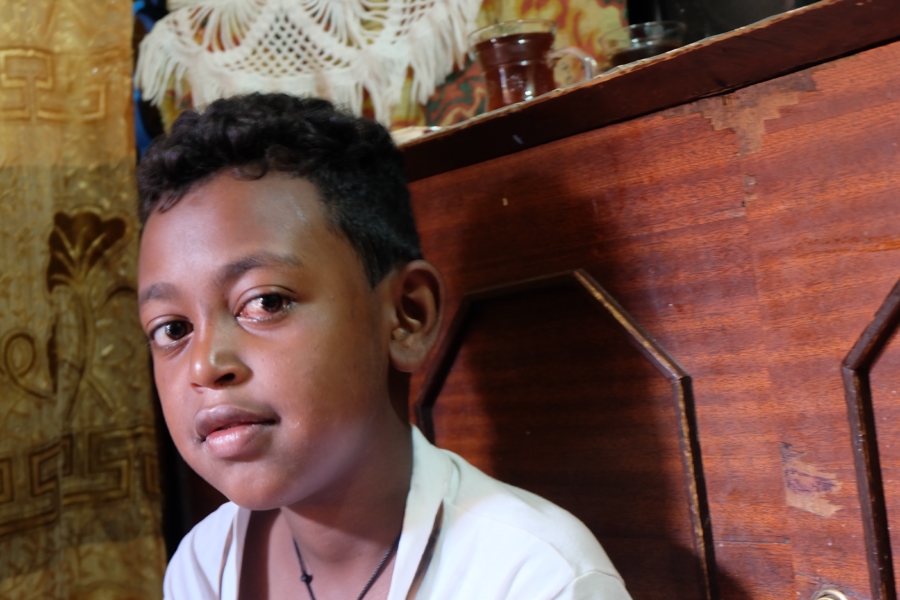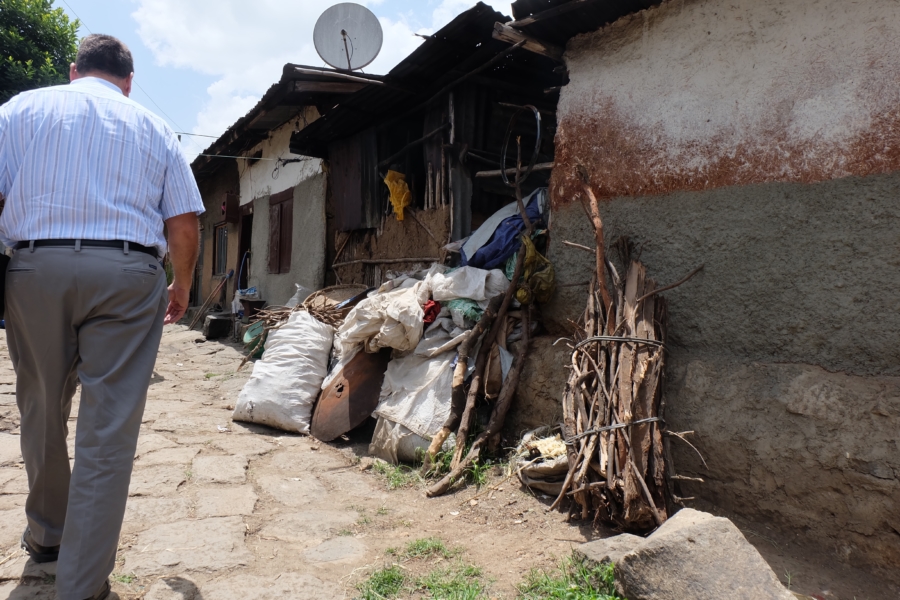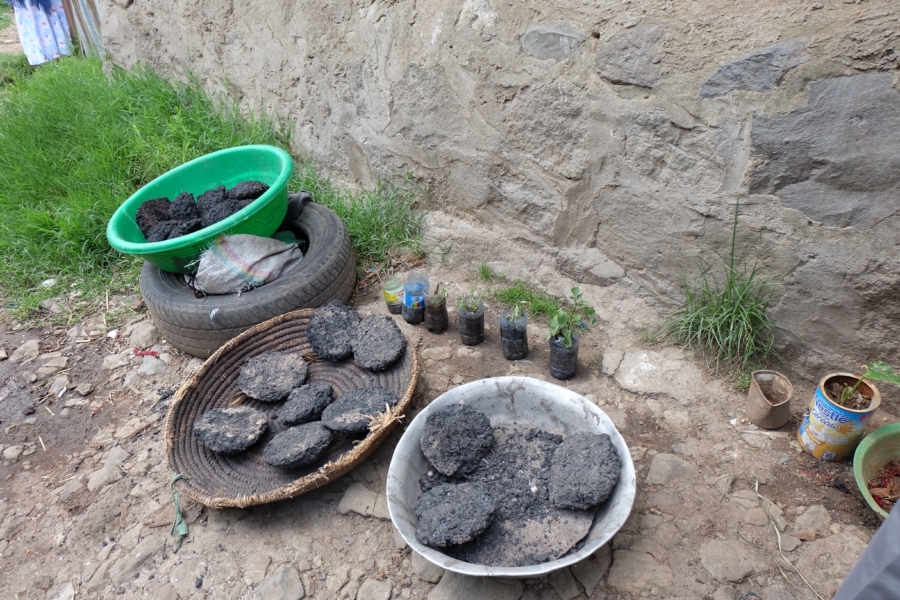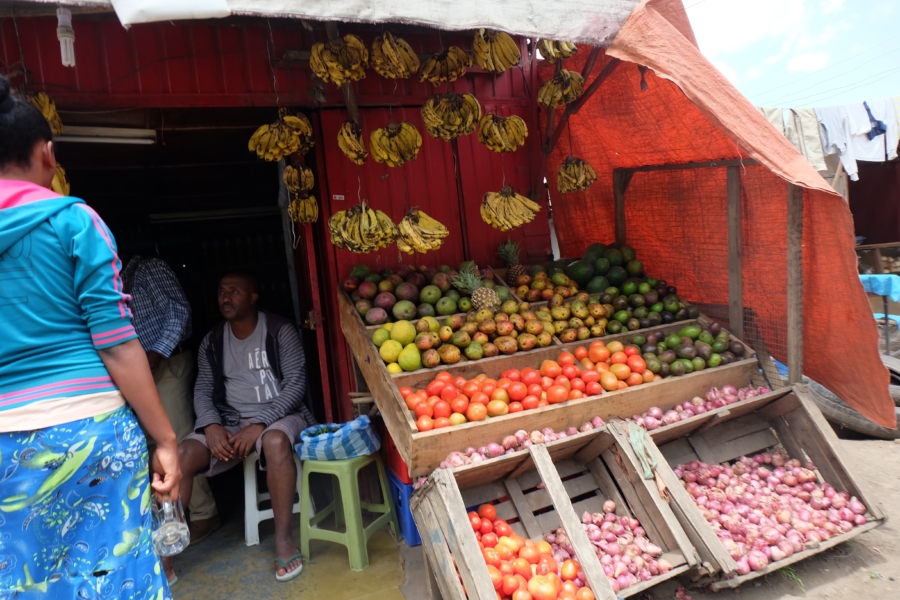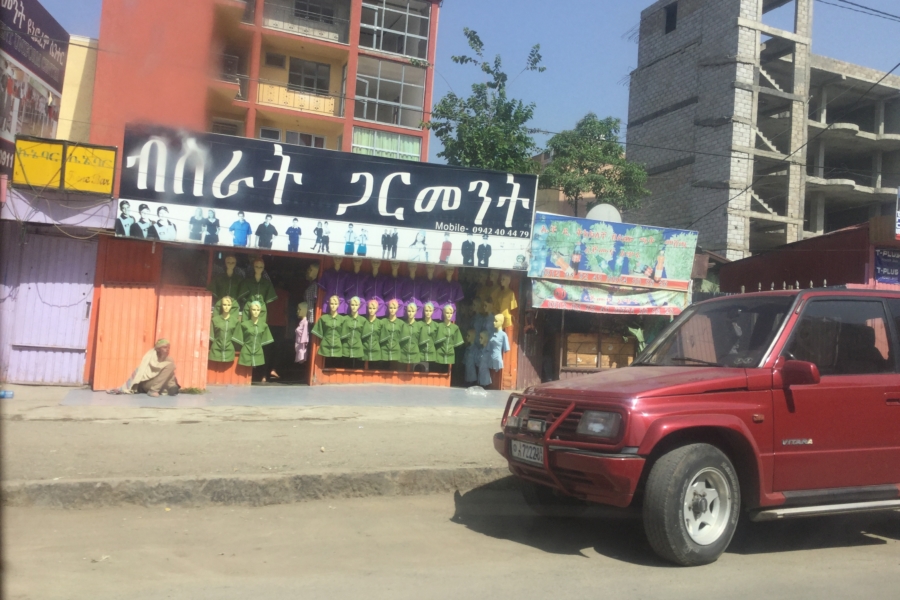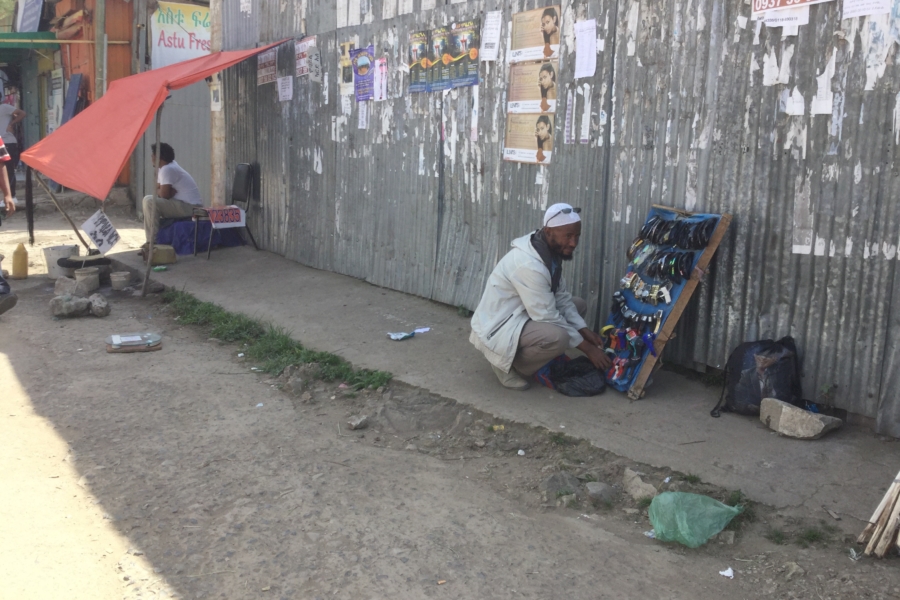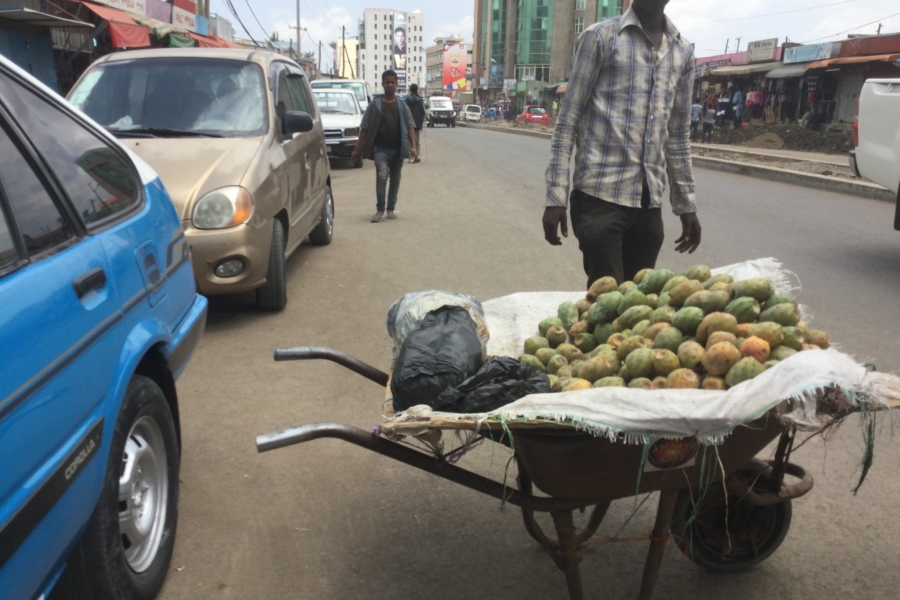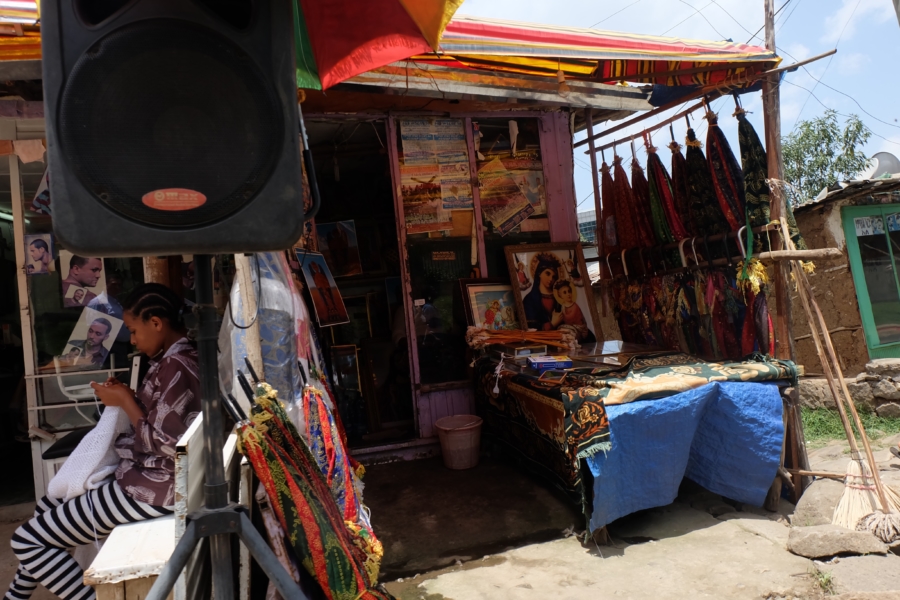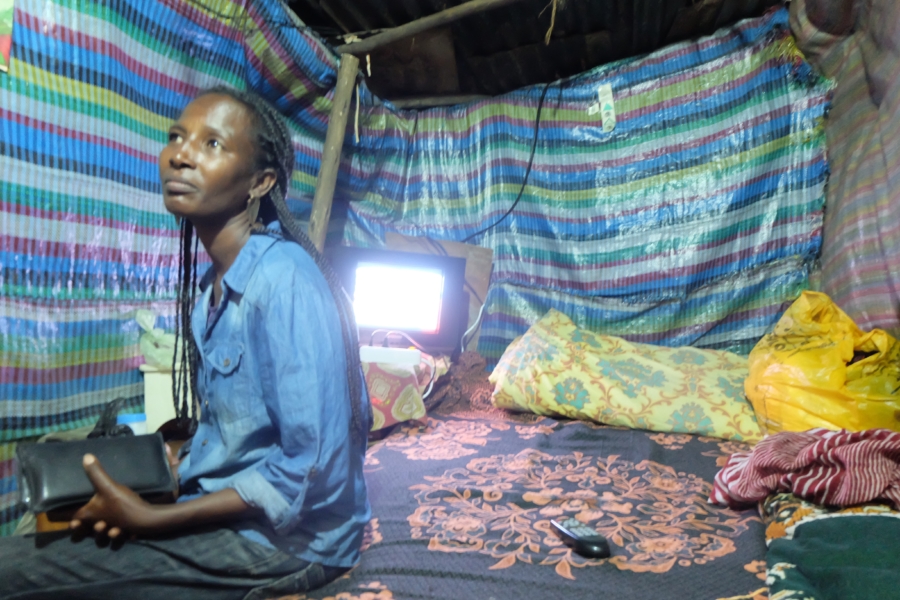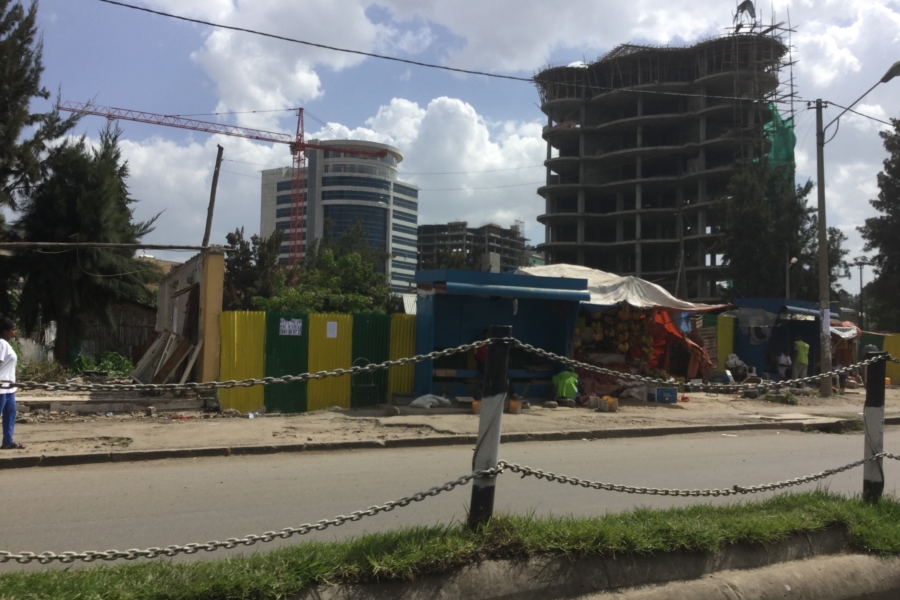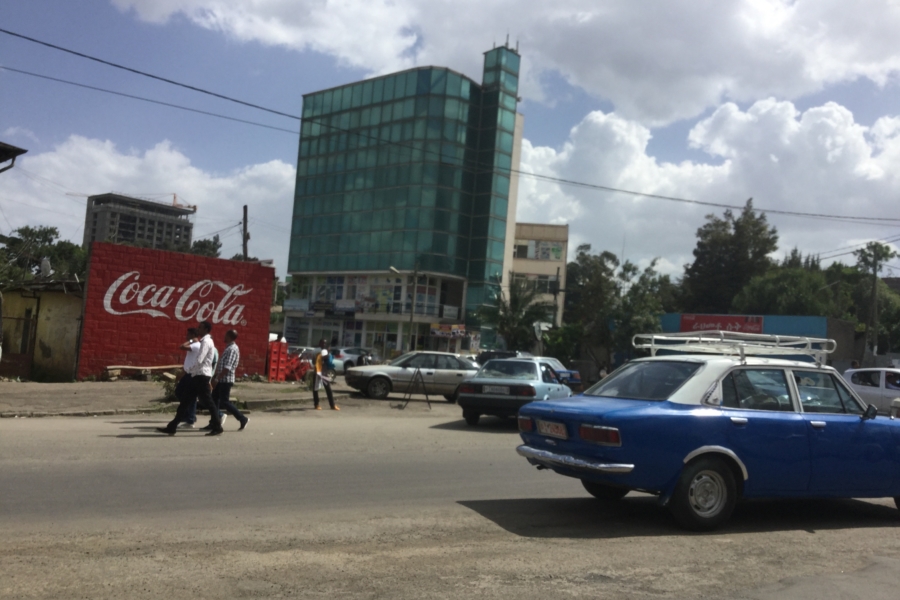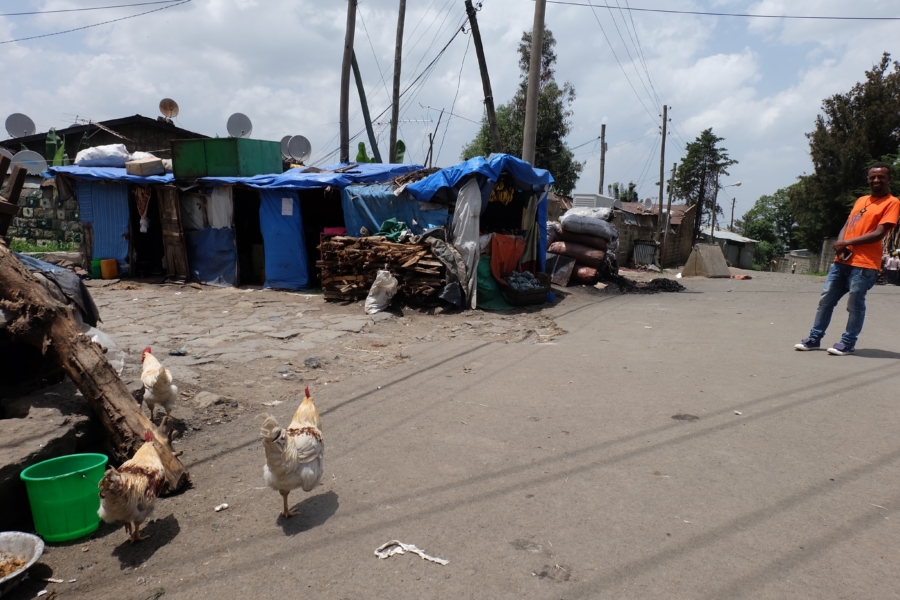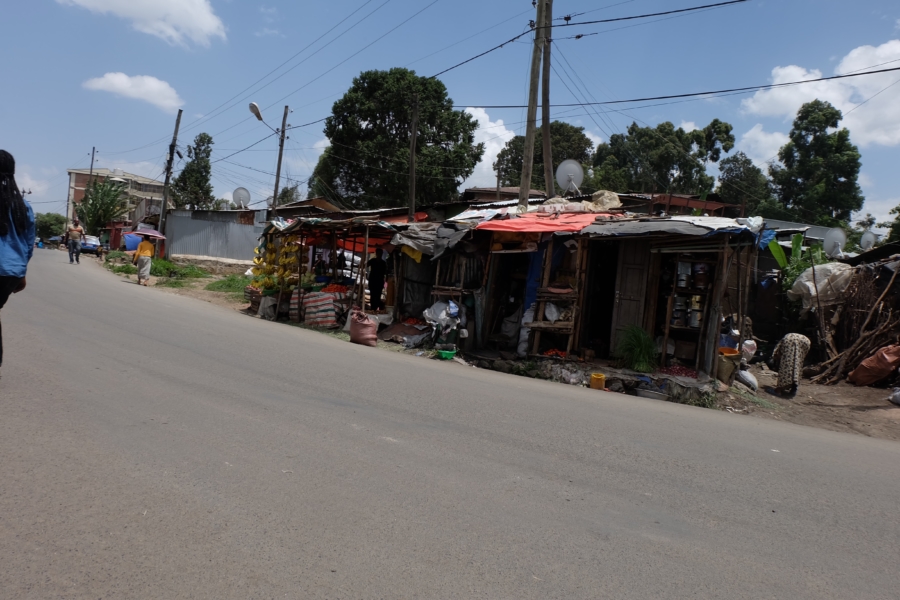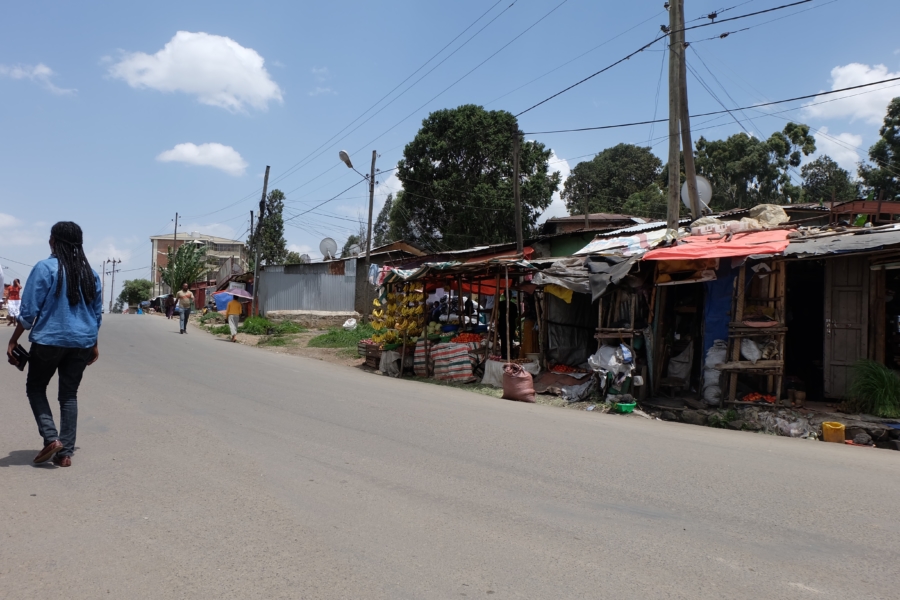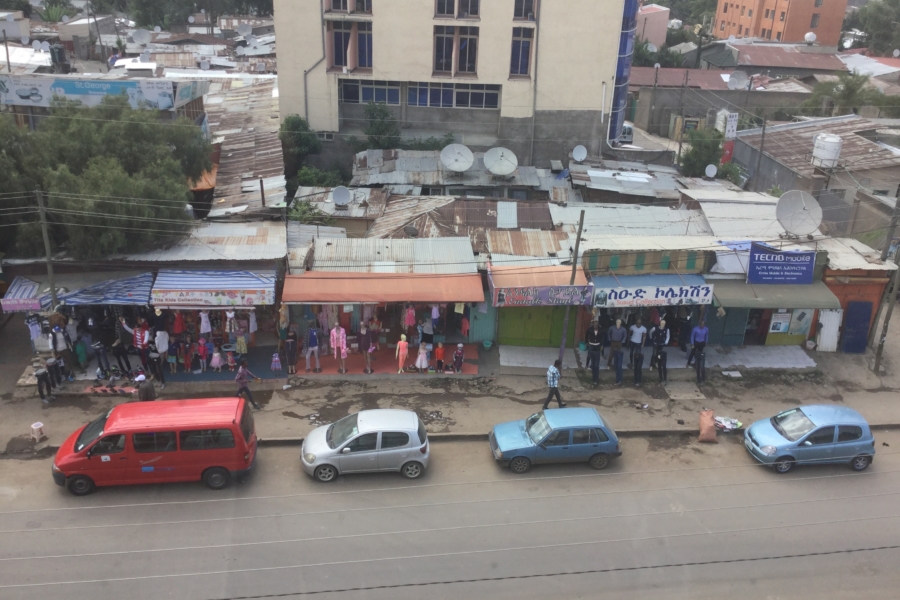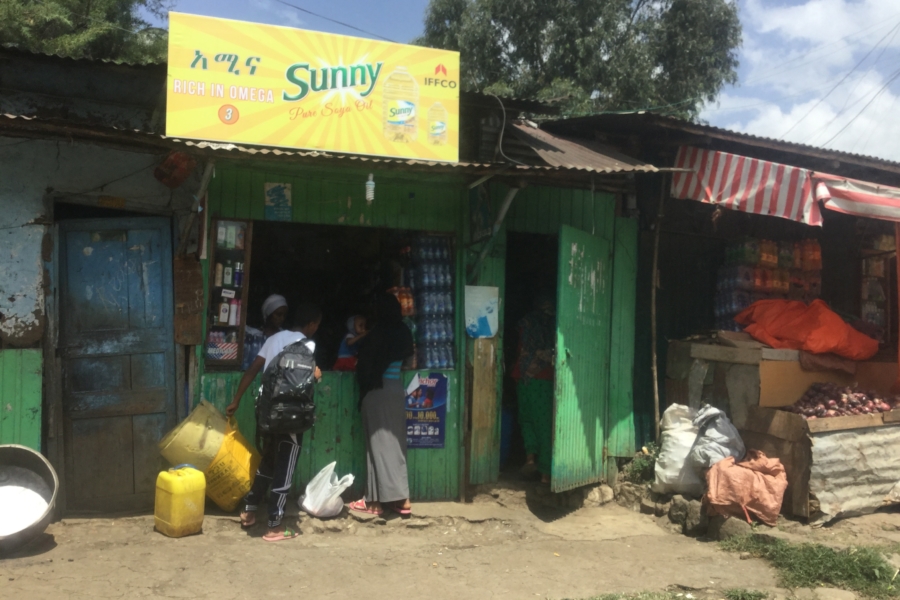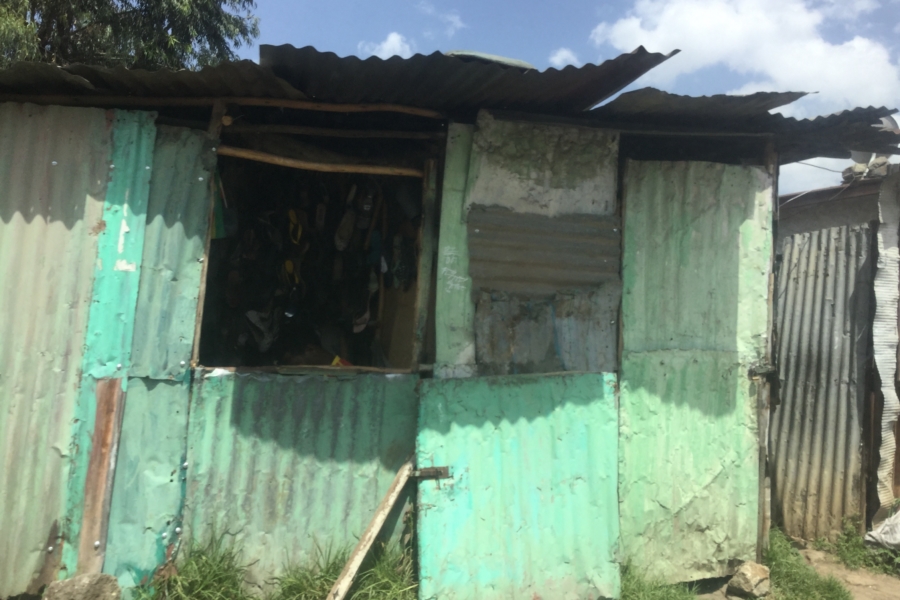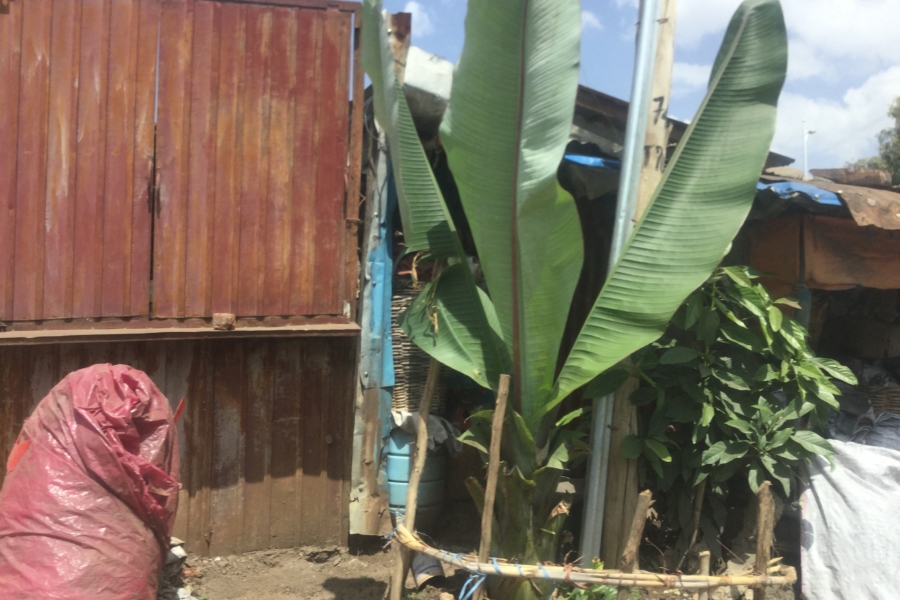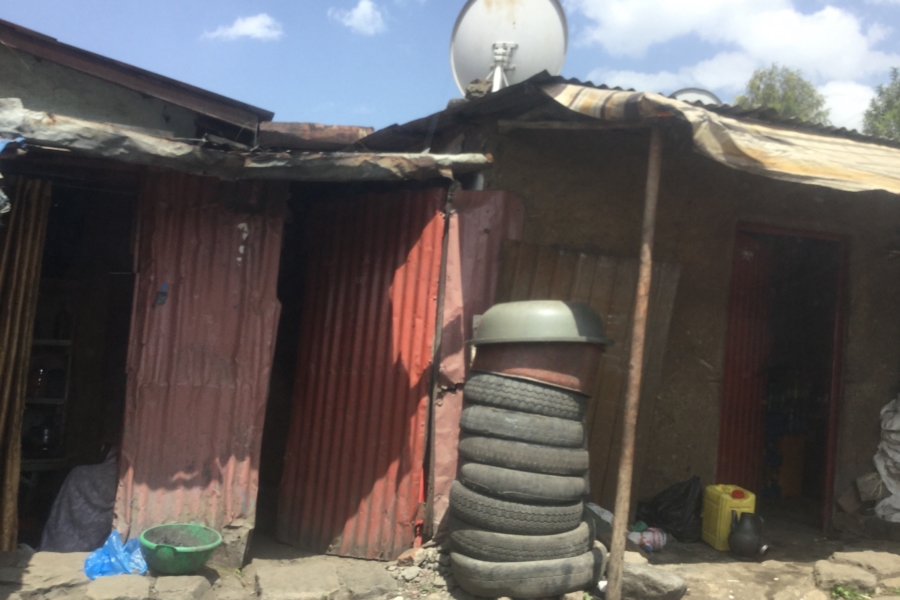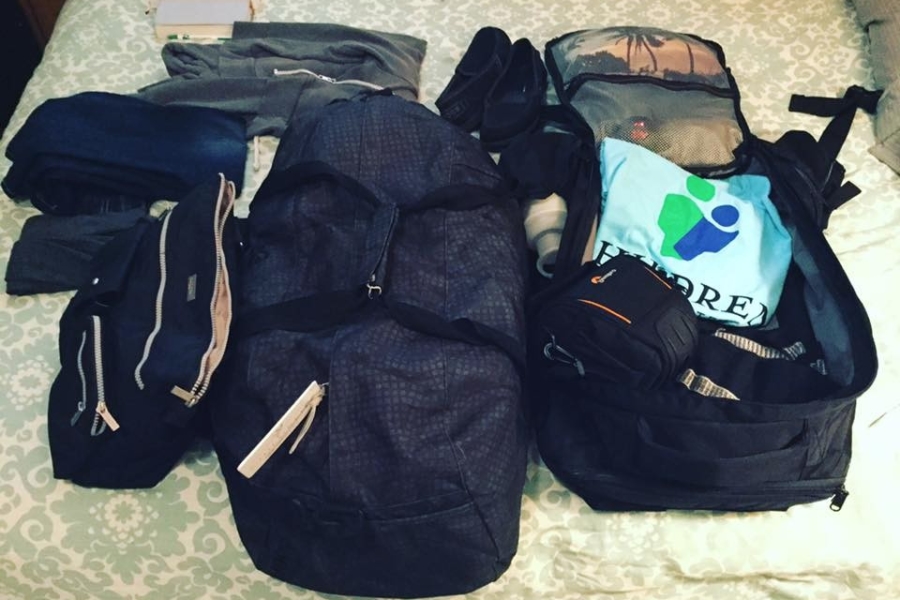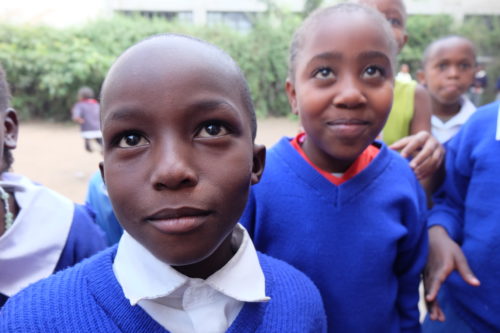School lets out every day at 4 o’clock at Dandora Community Center, but the kids tend to hang around until long after 6.
Luis pointed it out to me when we returned to the school after visiting the Dandora slum — children milled about on the property, still playing games with one another, even though school had been over for quite some time.
Sheltering the most vulnerable
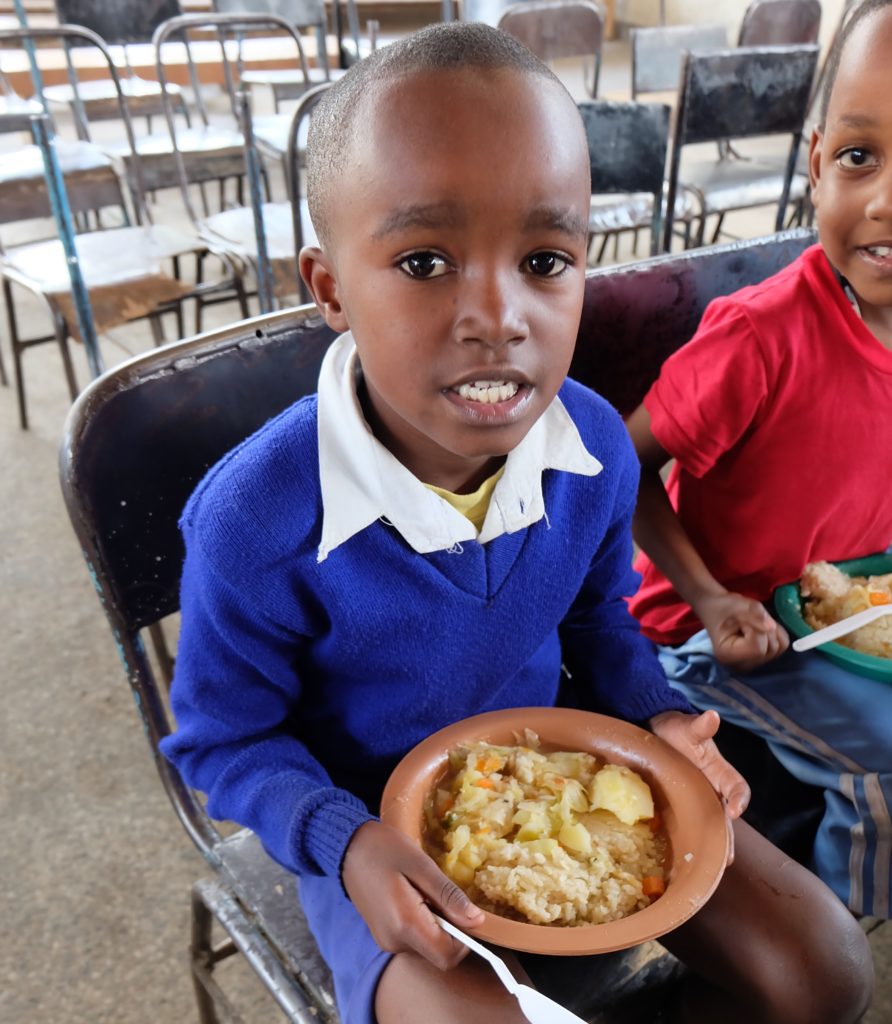
Dandora provides meals, healthcare, and an education for children in Kenya.
About 400 children attend school at the Dandora Community Center. The school serves children from primary all the way to high school, but not everyone can afford education. The cost of education is high in Kenya, and even higher if children are in need of boarding because they have no home. Forty-five children board here, all orphans with no family at all, making them among the most vulnerable in the city.
Since social services don’t exist on a government level, the administrators at schools such as St. John’s and Dandora take it upon themselves to seek out these youths. It makes you wonder what life must be like for the children who aren’t found in the slums, who wander the streets lost and alone, with no guidance in life.
It’s not hard to imagine why the children linger. Their homes, if they have them, are in the slums. It’s very dark and crowded, and there is little to do as the day turns to night. Staying at school is not only appealing, but it’s also the best option. At school, your friends are there to make you laugh, and your teachers motivate you. It’s a safe place to escape the crushing weight and real physical danger of the slums. I wouldn’t run home after school either.
Healthcare for everyone
Luis and I are at the Dandora Community Center to check out recent renovations to the clinic that Children Incorporated funded back in March. The clinic has been under renovation ever since, so the children and the community have not had access to it, but it will be up and running soon. Getting the doors open again is important because the children have nowhere else to go for the treatment of colds, stomach issues, or wounds. Left untreated, very common illnesses could cause major complications or even death. In the slums, there are no other options for treatment — the few clinics like this one are the only way anyone will ever get medical help.
And it’s not just minor ailments and injuries — Kenyans have to worry about diseases, like dengue and malaria, that most Westerners never have to think about at home. It is a major public health problem in this region — and it is scary to think about.
It’s the only place they can get help — and get away from the weight of poverty and hopelessness.
Simple items like mosquito nets can make the difference between getting an education or fighting for your life. Children who are healthy can go to school — if they can afford it. Those who are stricken with malaria or dengue simply lie on cots and hope just to survive.
Those nets keep the mosquitoes — and thus the diseases — at bay, but they are hard to come by in the slum. Each year, Children Incorporated sends funds to Dandora to provide mosquito nets. They have a major impact at a minor cost; each net costs less than $10. Our goal is to purchase 1,200 of them this year.
Filling in the cracks
Throughout the day as we visit the Dandora Center, we speak with James Ngura, our volunteer coordinator, about the challenges he faces. James explains to us that his biggest obstacle is the workload — keeping up the finances and raising more funds at the same time is a major undertaking. I am not surprised to hear this — James and the staff at Dandora work tirelessly to grow their programs — especially those services provided at the clinic.
As we enter the clinic, it’s easy to see how hard they’ve been working. The building is beautiful. It looks almost new with a fresh coat of paint and new tiles on the floors. I’m reminded of the renovations at the Montero school we visited in Bolivia. The upgrades aren’t just cosmetic — they make it possible for our volunteer partners to help more children. If funding continues, the renovations at Dandora will allow James and his team to double the number of patients the clinic can see in the next year.
The clinic building and Dandora as a whole are almost a respite site for the children here. It’s the only place they can get help — and get away from the weight of poverty and hopelessness. And while the team is working to fix the cracks in the clinic walls, they’re also working to fix the cracks in children’s lives. It’s a long and difficult process, but even before it’s complete, the results are becoming clear.
***
HOW DO I SPONSOR A CHILD IN KENYA?
You can sponsor a child in Kenya in one of three ways – call our office and speak with one of our sponsorship specialists at 1-800-538-5381, email us at sponsorship@children-inc.org, or go online to our donation portal, create an account, and search for a child in Kenya that is available for sponsorship.

